
GEREMEW TASSEWCOUNTRY PROGRAM MANAGER OF AINFP
SUGAR REDUCTION
PRIORITIZING WORKPLACE SAFETY
CIDER IN AFRICA
COCOA SHORTAGE

Food Africa Business AFRICA’S NO.1 FOOD MANUFACTURING & RETAIL INDUSTRY MAGAZINE WWW.FOODBUSINESSAFRICA.COM YEAR 11 | ISSUE NO. 61 MAR/APR 2024 SABS Acting CEO Lungelo Ntobongwana on SABS’ approach to standardization
SCAN ME



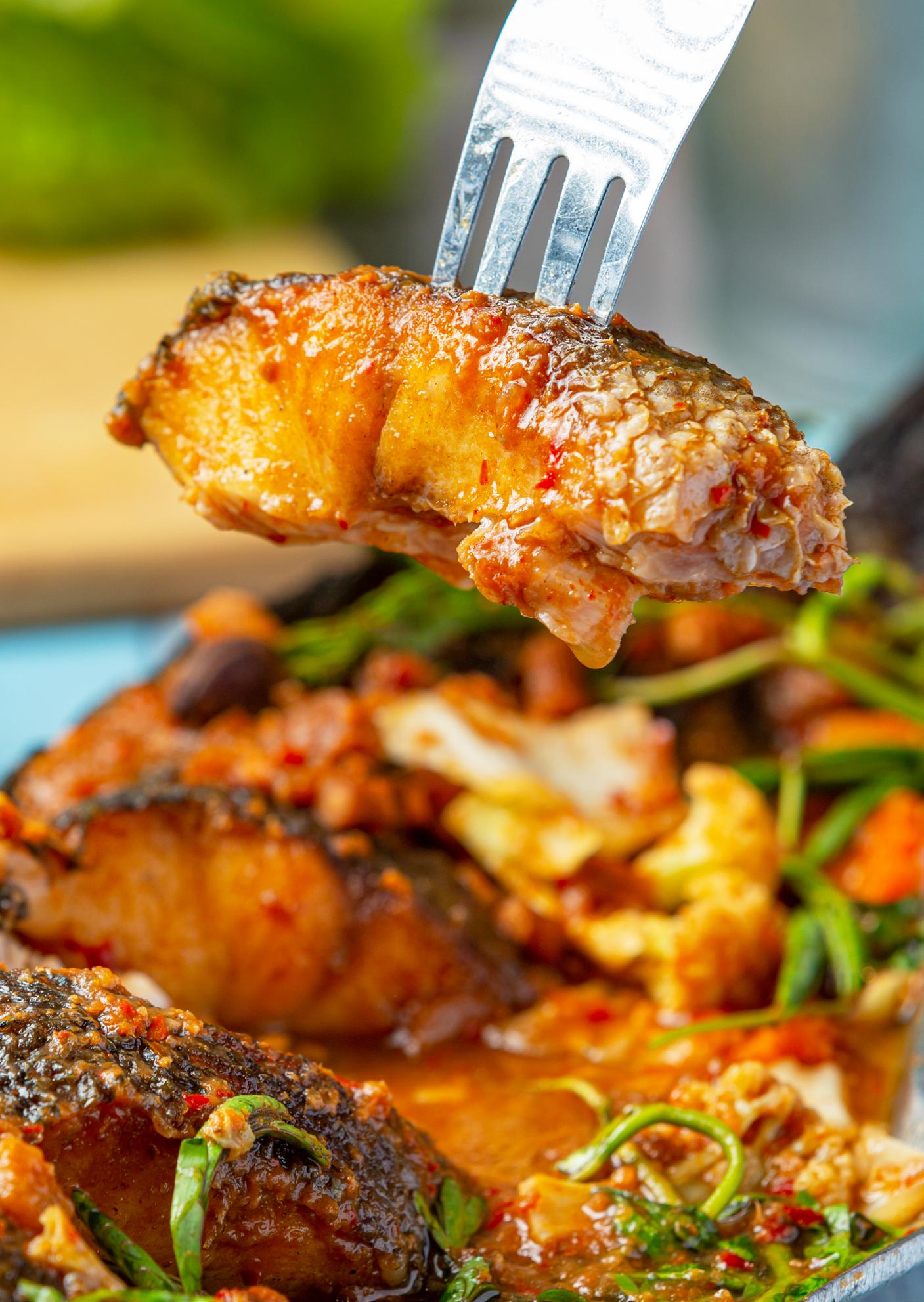


THE CEO SUMMIT ON THE FUTURE OF SUSTAINABLE FOOD SYSTEMS IN AFRICA AFRICA FUTURE FOOD SUMMIT Nairobi, Kenya OCTOBER 24-25, 2024 info@fwafrica.net +254 725 343 932 www.africafuturefoodsummit.com INVESTING IN & FUNDING FOOD ENTERPRISES FOOD INNOVATION FOOD NUTRITION & SUSTAINABILITY FOOD MARKETS, TRADE & LOGISTICS FOOD TECHNOLOGY KEY AGENDA ISSUES WELCOME TO REGENERATIVE AGRICULTURE SCAN ME
CONTENTS
REGULARS
4 Editorial
6 Events Calendar
10 News Update
30 Appointments Update
68 Supplier News & Innovations
32 New Product Innovations: African Originals Ltd: Mara Gin | Premier Nut: Value-added macadamia products | Starbucks: Salted Caramel Cream Cold Brew | Crown Beverages: 7UP soda | Macallan: The Reach | Delta Corporation: Chibuku Pineapple and Ginger

BEVERAGE TECH AFRICA
47 Cider in Africa: the next big opportunity for growth

YEAR 10 | ISSUE NO. 61 MAR/APR 2024

FOOD INGREDIENTS AFRICA
53 Sugar Reduction: Sweetness’ Role in Health, the Environment, and Taste

TOPICAL FOCUS
59 Prioritizing Workplace Safety: The Significance of Hazard Identification and Risk Assessment
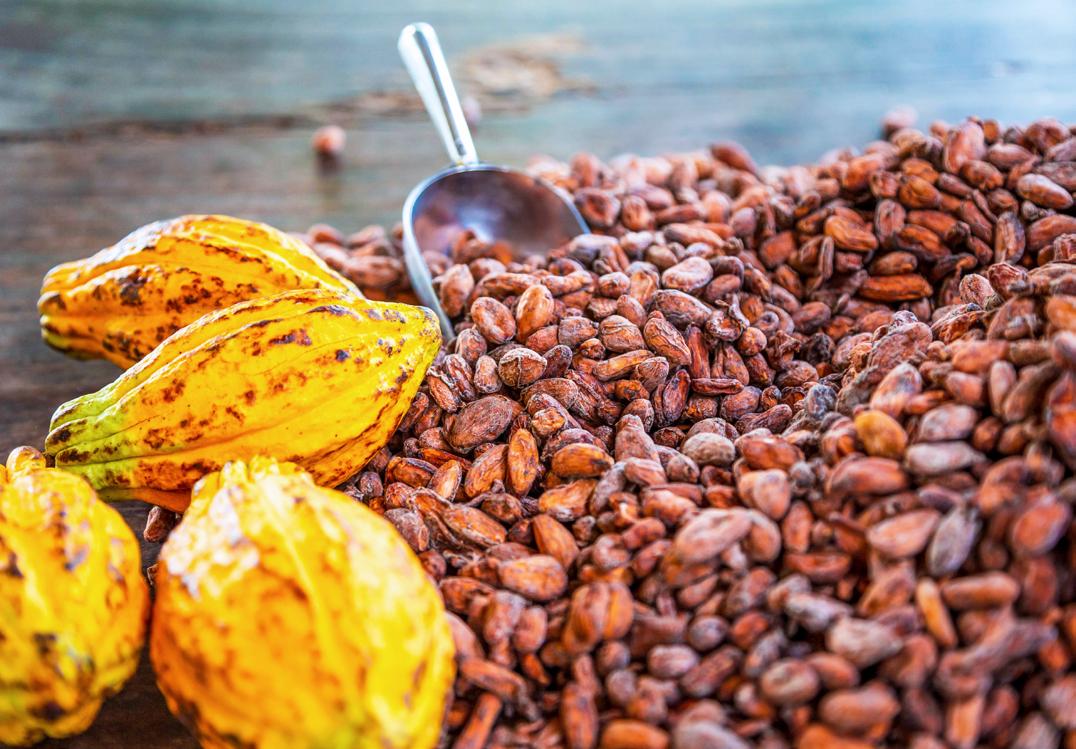
INDUSTRY REPORT
63 Cocoa shortage and rising prices continue to challenge chocolatiers worldwide
FOODBUSINESSAFRICA.COM MAR/APR 2024 | FOOD BUSINESS AFRICA 1

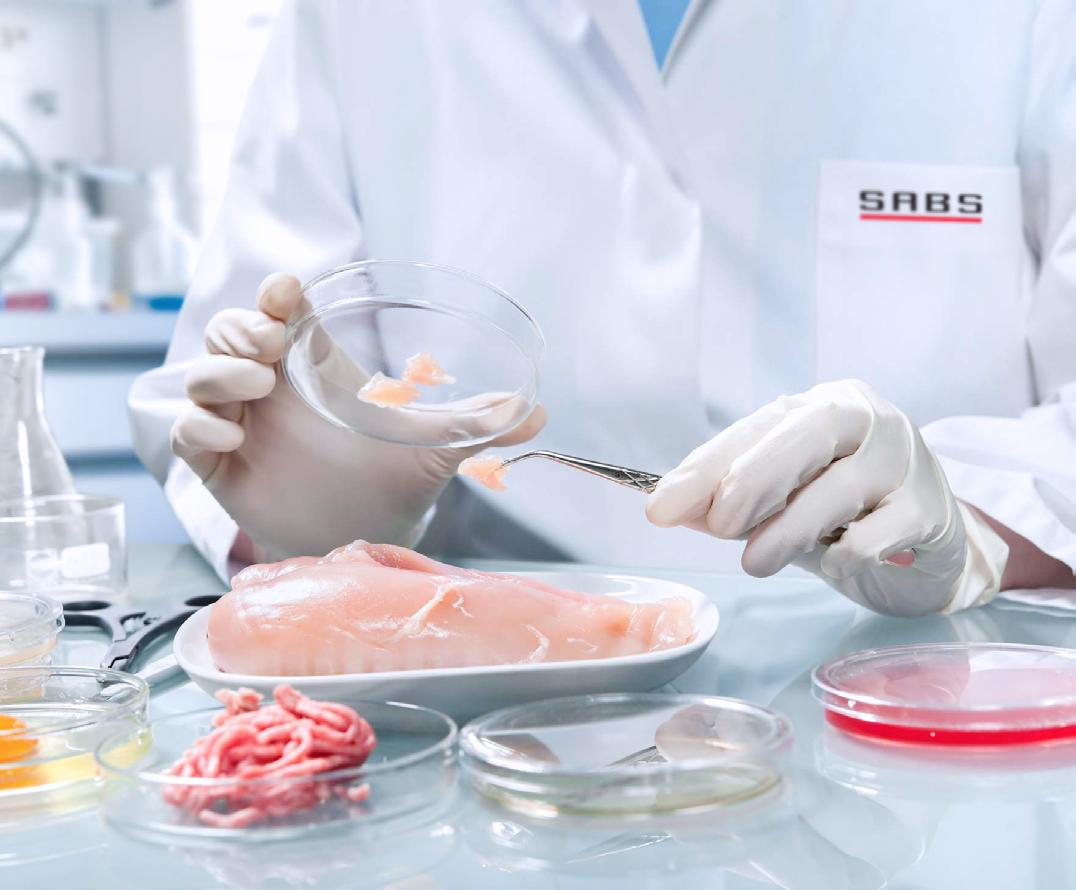
My Company Profile: SABS
Executive Interview: Geremew Tassew - Country Program Manager of AINFP

MAR/APR 2024 | FOOD BUSINESS AFRICA FOODBUSINESSAFRICA.COM 2 CONTENTS
YEAR 10 | ISSUE NO. 61 MAR/APR 2024
34 42 South African Bureau of standards’ non-regulatory role unveiled ON THE COVER - Lungelo Ntobongwana, CEO, SABS

PERFECT SOLUTIONS




DO NOT STOP US FROM CONTINUING TO WORK ON OUR IDEAS.




As a leading innovator, we have one prime characteristic: We are never satisfied.










At KHS, we are thus always proud of what we have achieved – but we also immediately start to question it and think ahead. With the aim of constantly advancing and always improving – and of providing our customers with new, intelligent systems time and again. Which we then, of course, develop further. khs.com/products




Booth B070 C089 Hall 5.1,
Food Africa Business
Year 11 | Issue No.61 • ISSN2307-3535
FOUNDER & PUBLISHER
Francis Juma
SENIOR EDITOR
Catherine Odhiambo
EDITOR
Francis Watari
Nicholas Ng'ang'a
BUSINESS DEVELOPMENT DIRECTOR
Virginia Nyoro
BUSINESS DEVELOPMENT ASSOCIATE
Vivian Kebabe
HEAD OF DESIGN
Clare Ngode
ACCOUNTS
Jonah Sambai
PUBLISHED BY: FW Africa
P.O. Box 1874-00621, Nairobi Kenya
Tel: +254 20 8155022, +254725 343932
Email: info@fwafrica.net
Company Website: www.fwafrica.net
Navigating turbulent waters in the snacks and confectionery sector
As we explore the 61st edition of Food Business Africa Magazine, we find ourselves amid challenging times in the food industry, particularly in the snacks and confectionery sector. The sector, recognized as the largest in the food market with a market volume of US$204.10 billion in 2024, is currently grappling with the repercussions of soaring cocoa and sugar prices.
According to Statista, cocoa prices have surged nearly 65% in the past year, reaching a 46-year high in New York futures prices. This unprecedented increase threatens to disrupt the delicate balance of supply and demand within the snacks and confectionery segment. While consumer demand remains robust, the inevitable rise in retail prices is poised to impact volume sales and potentially impede category growth throughout much of 2024.
In this edition, we explore the ramifications of the cocoa shortage and rising prices on chocolatiers worldwide. Our comprehensive coverage delves into the strategies adopted by industry players to navigate these turbulent waters and maintain their competitive edge in an increasingly challenging landscape.
segment.
Furthermore, we address the pressing issue of sugar reduction, examining its multifaceted impact on health, the environment, and taste. As regulatory scrutiny intensifies and consumer awareness grows, we examine the strategies employed by manufacturers to meet the evolving demands of today's health-conscious consumers without compromising on flavor or quality.
In a noteworthy development, we announce the merger of Food Safety Africa Magazine with Food Business Africa Magazine. This strategic consolidation aims to provide our readers with a more comprehensive and integrated platform for industry insights and information. In this issue, we feature essential food safety elements, including an in-depth look at the South African Bureau of Standards and expert perspectives on prioritizing workplace safety.
As the leading source of information for investors, managers, and professionals in the food, beverage, and milling industry in Africa, Food Business Africa Magazine remains committed to empowering industry stakeholders with timely, relevant, and insightful content.
Food Business Africa (ISSN 2307-3535) is published 6 times a year by FW Africa. Reproduction of the whole or any part of the contents without written permission from the editor is prohibited. All information is published in good faith. While care is taken to prevent inaccuracies, the publishers accept no liability for any errors or omissions or for the consequences of any action taken on the basis of information published.
But the challenges faced by the food industry extend beyond cocoa and sugar. With our commitment to providing holistic coverage of the sector, we shine a spotlight on the burgeoning opportunity presented by cider in Africa. As consumer preferences evolve and diversify, we explore the potential for growth and innovation in this market


Thank you for your continued support and trust in Food Business Africa Magazine. We look forward to embarking on this journey of exploration and discovery with you.
Catherine Odhiambo, Lead Editor Food Business Africa



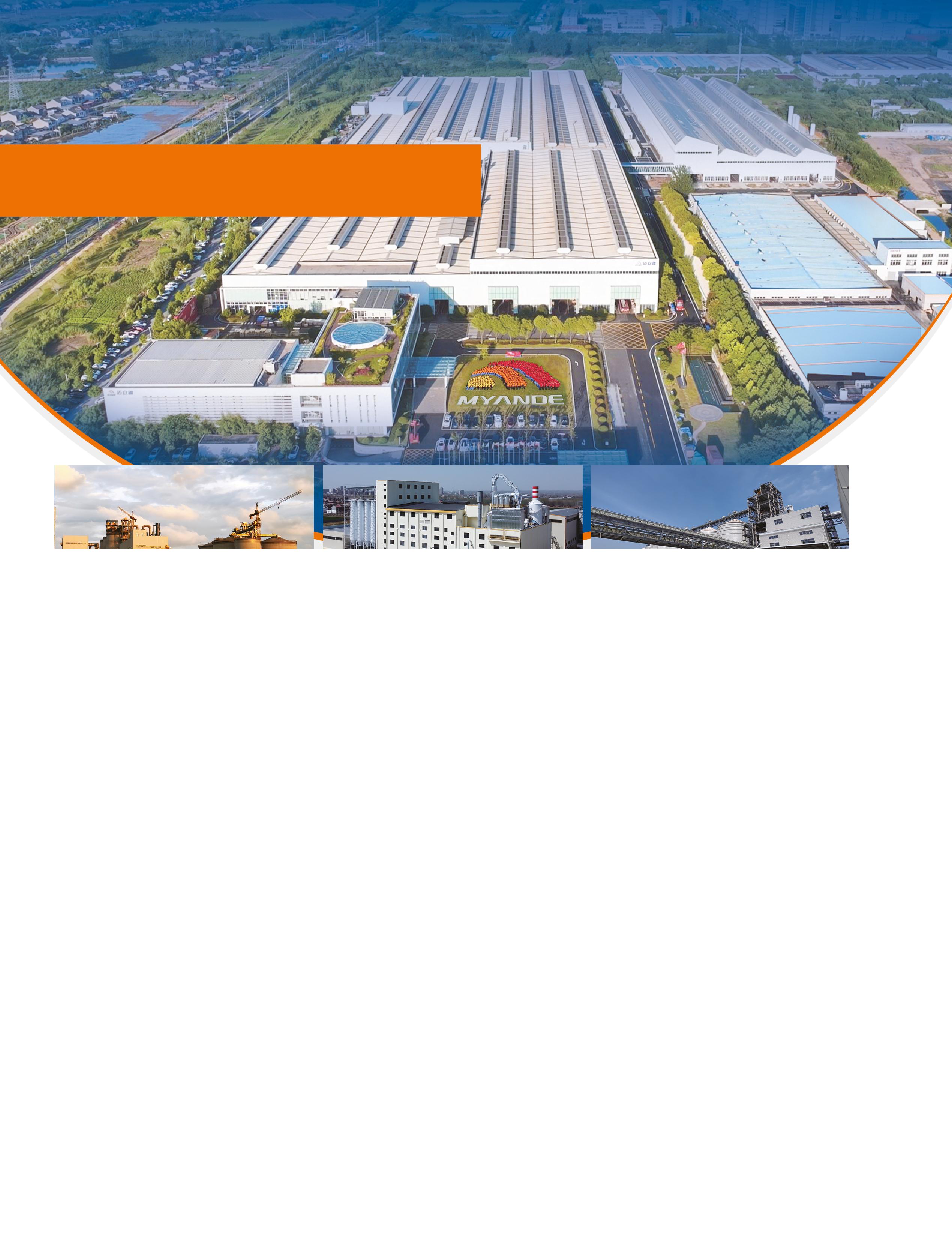

MAR/APR 2024 | FOOD BUSINESS AFRICA FOODBUSINESSAFRICA.COM 4
EDITORIAL
OUR PUBLICATIONS WWW.FWAFRICA.NET MILLING MIDDLE EAST & AFRICA Food Africa Business HealthCare MIDDLE EAST & AFRICA www.foodsafetyafrica.net www.healthcaremea.com www.ceobusinessafrica.com www.freshproducemea.com www.dairybusinessafrica.com www.foodbusinessafrica.com www.millingmea.com www.sustainabilitymea.com Packag ng AFRICA SUSTAINABLE


East Africa Food & Beverage Exhibition 2024

East Africa Food and Beverage Exhibition event is designed to create substantial value by reaching target markets in East Africa and fostering connections with discerning industry buyers.
02 - 04 May 2024
The Sarit Expo Centre, Nairobi, Kenya
www.eastafricafoodshow.com
Halal Trade, Logistics & Manufacturing Expo 2024
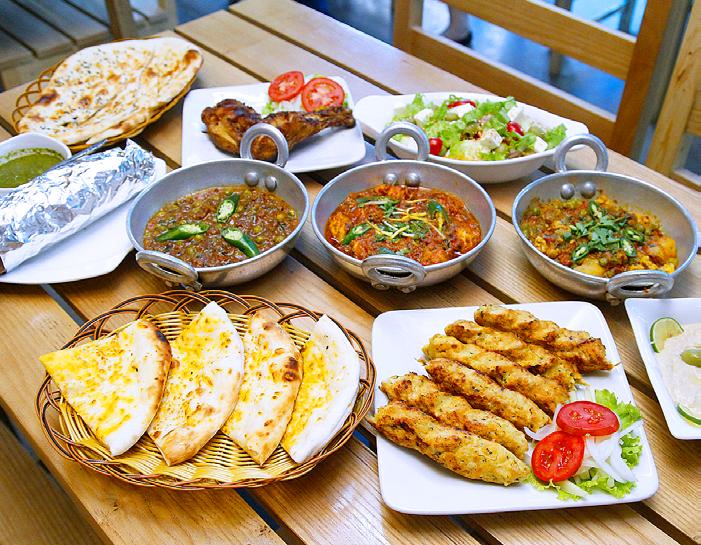
Africa's number 1 gateway for halal businesses bringing together a wide swarm of industry professionals from Trade commissions and the Islamic Chamber of Commerce, Certification, Regulatory bodies, and halal trade services, buyers and sellers.
06 - 08 May 2024
Gallagher Convention Centre, Johannesburg, South Africa
www.halaltradeafrica.co.za
Middle East Poultry Expo 2024

The Middle East Poultry Expo is the largest exhibition specialized in the poultry industry organized in the Kingdom of Saudi Arabia, which is the largest poultry producer in the Middle East and Africa and the third global consumer of meat and poultry products
13 - 15 May 2024
Riyadh International Convention & Exhibition Center, Riyadh, Saudi Arabia
www.mep-expo.com
Agrofood Ethiopia 2024

Agrofood Ethiopia is Ethiopia's leading trade show & conference on agriculture, food & beverage technology, food ingredients and food.
16 - 18 May 2024
Millennium Hall, Addis Ababa, Ethiopia
www.agrofood-ethiopia.com

International Foodpack East Africa 2024 serves as a platform for networking, business development, market research, and knowledge exchange within the food industry.
16 - 18 May 2024
Uganda Manufacurers Association Main Exhibition Hall, Kampala, Uganda
www.mxmexhibitions.com/ foodpackUganda
The Saudi Food Show 2024

The Saudi Food Show is the world's biggest food show, making its debut in one of the world's fastest-growing and most exciting economies. This oneof-a-kind inaugural event will act as a powerful sourcing hub, a springboard for F&B trends, and a platform from which to inspire world-leading, industry-wide transformation.
21 - 23 May 2024
Riyadh front expo, Riyadh, Saudi Arabia
www.thesaudifoodshow.com
EVENTS CALENDAR
FoodPack East Africa 2024
MAR/APR 2024 | FOOD BUSINESS AFRICA FOODBUSINESSAFRICA.COM 6
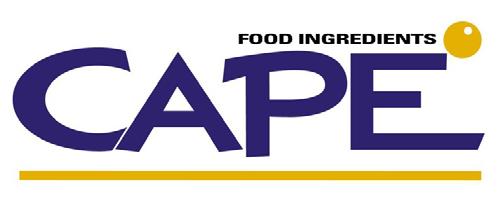

Replacing Sugar- Naturally
Cape Food Ingredients (CFI) has launched its fourth generation advance in sugar replacement technology. CFI has worked with reformulating food and beverages to lower sugar use since 1986, giving it one of the longest track records in the application technology of sweetness.
Using its formulation expertise with flavours and natural sweeteners, CFI can now replace up to 60g of sugar per litre of final product without the use of artificial sweeteners.
The most recent advance is part of the best-selling Sugar Enhance range. Sugar Enhance IV products, when used at the recommended dosage, have a clean sweetness with sugary after-notes, giving high consumer appeal.
Sectors in which sugar reduction is well-established include beverages, dairy products including ice creams, sauces and vegan products.
Examples include the reduction of sugar in yoghurts by about 35g/litre, the reduction of sugar in carbonated soft drinks by up to 60g/litre and 100% replacement of sugar in mayonnaise and many other sauces.
In unsweetened vegan milks (soya, oat, rice, almond etc), the sweetness value of Sugar Enhance IV (Dairy) reaches even
120 times the sweetness of sugar and simultaneously greatly improves the beany or cereal notes of such products.
The sugary notes of the products also make Sugar Enhance flavours the perfect complement for the use of artificial sweeteners, another area where CFI excels in formulation work.
Sugar Enhance masks the chemical notes and off-tastes sometimes found with artificial sweeteners and so achieves the end goal of all products, consumer preference.
In terms of cost in use, Sugar Enhance flavours are significantly cheaper than using sugar.
Sugar Enhance flavours come in a variety of formats designed to improve the overall flavour of the end products. For example Sugar Enhance IV (Dairy) which brings out the rich, creamy notes of dairy products and Sugar Enhance IV (Beverages & Confectionery) which besides sweetness also boosts overall flavour impact.
Contact the CFI New Product Development and Application labs in Nairobi (for East Africa), Accra (West Africa) or Cape Town for more information about your specific products, and for samples.
FOODBUSINESSAFRICA.COM MAR/APR 2024 | FOOD BUSINESS AFRICA 7 SPONSORED CONTENT

Fi Africa is Africa's top food and beverage exhibition, offering a comprehensive platform for sourcing cutting-edge ingredients, packaging, processing, and logistics solutions.
26 - 28 May 2024
Egypt International Exhibition Center, Cairo, Egypt
www.figlobal.com/africa
Cocoa,

The annual Cocoa, Coffee & Tea Fair helps the value chain players to explore the growth opportunities in the African market and learn about value addition, entrepreneurship, and technological advancements in the industry.
07 - 09 Jun 2024
Kenyatta International Convention Centre, Nairobi, Kenya
www.cct.gwijiafrica.com
Africa's Big 7 2024
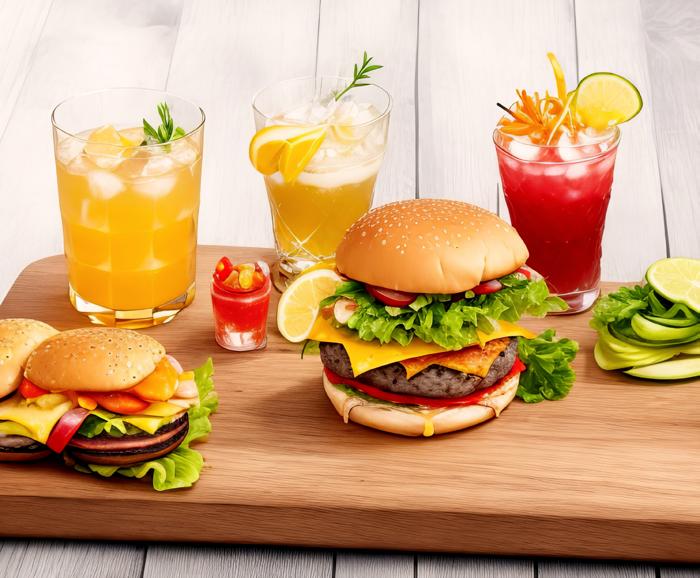
Africa's Big 7 is the continent's largest annual meeting place for the food and beverage industry. It provides opportunities to connect with buyers from across Africa, source products, and make export and import deals.
11 - 13 Jun 2024
Sandton Convention Centre, Johannesburg, South Africa
www.africabig7.com
AFMASS Food Expo Eastern Africa 2024
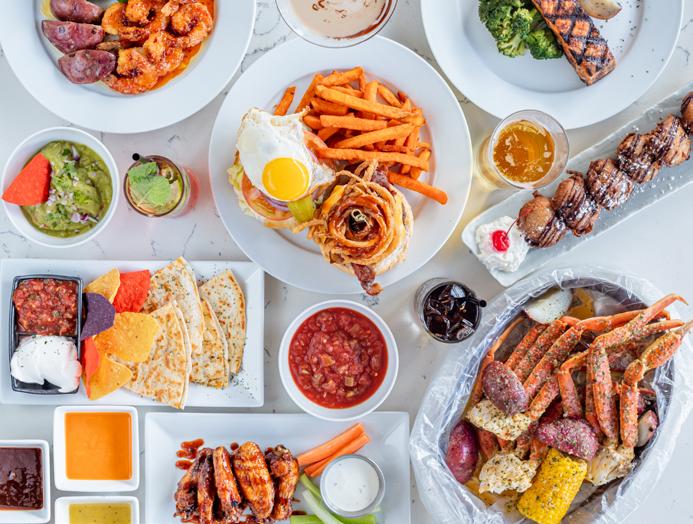
AFMASS Food Expo Eastern Africa trade show is the longest-running trade show that covers the entire scope of the food industry in the region, enabling industry stakeholders from across Eastern Africa and beyond to discover the latest opportunities and trends in the food, beverage, dairy, meat, and milling industry.
12 - 14 Jun 2024
The Sarit Expo Centre, Nairobi, Kenya
www.afmass.com
Africa Agri Tech 2024
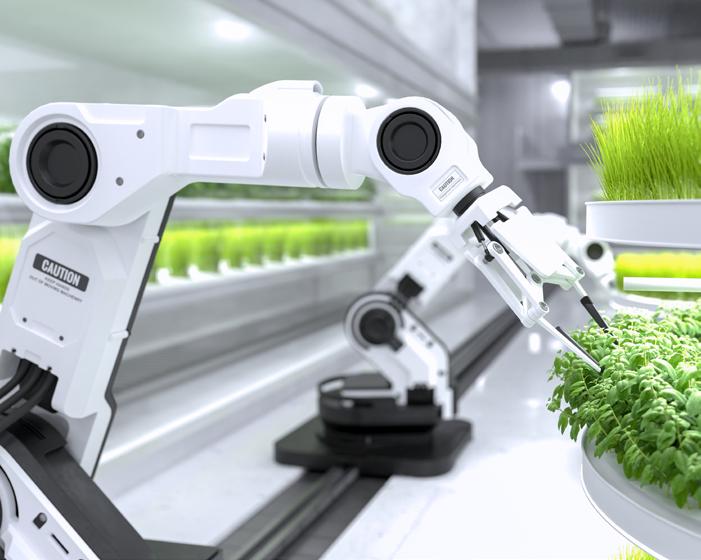
The Africa Agri Tech Conference and Exhibition focuses on the intersection between agriculture, science and technology connecting the Southern African agricultural, scientific and technology communities at one event staged over three days.
25 - 27 Jun 2024
CSIR International Convention Centre, Pretoria, South Africa
www.africa-agri.co.za
CONNECT WITH US!





EVENTS CALENDAR Fi
Follow Us Foodbizafrica Follow Us Foodbizafrica Like Food Business Africa Magazine Connect with us Food Business Africa Magazine
Africa 2024
Coffee and Tea Africa Fair & Summit 2024
MAR/APR 2024 | FOOD BUSINESS AFRICA FOODBUSINESSAFRICA.COM 8







AFMASS FOOD EXPO
EASTERN AFRICA 2024


Connecting the Food Industry across Africa

June 12-14 2024


Ever wondered where in Africa to get food industry suppliers, manufacturers, and key decision-makers under one roof? Ever thought of having packaging industries and retailers together? Or having financial service providers and commercial-scale farmers under one roof?
Look no farther, as the AFMASS Food Expo Eastern Africa 2024 brings them all! This year’s edition comes equipped with all that the African region and far abroad have to offer.
WHO WILL YOU MEET AT AFMASS FOOD EXPO EASTERN AFRICA 2024?
Technology Suppliers
Can you think of a place where you can meet your equipment, ingredients, packaging, milling and other technology suppliers - all in one place? We at AFMASS Food Expo provide a platform where suppliers and innovators meet users of their equipment. This platform allows equipment providers to get to know the specific needs of manufacturers without much stress.

Food processing and packaging industries
AFMASS Food Expo Eastern Africa 2024 offers opportunities for all players in grains and legumes; meat, fish, and poultry; fresh produce; tea, coffee, and cocoa; bakery, confectionary, and snacks; animal feed and aquaculture; soft and alcoholic beverages; dairy products, among many more, to showcase their products and new technologies.
Commercial-scale farmers and agribusiness players
Is your interest in commercial-scale farming? This expo offers fast knowledge and an opportunity to meet key decisionmakers in Agricultural practices in Africa and beyond. In addition, AFMASS Food Expo Eastern Africa 2024 brings manufacturers of equipment used in the sector, networking opportunities, and deal rooms.
Government ministries and agencies
Meet representatives from various ministries and agencies for one-on-one discussions with industry players. It's a unique opportunity to present your ideas, innovations, and receive instant feedback from those who regulate the industry in Africa.
MAR/APR 2024 | FOOD BUSINESS AFRICA FOODBUSINESSAFRICA.COM 10
www.afmass.com Sarit Expo Centre, Nairobi Kenya
Retail and Distributors
With many players, including retailers, distributors, importers and exporters coming together into this year’s edition, you are assured of new buyers and users. AFMASS Food Expo Eastern Africa 2024 edition incorporates all players in the food and agriculture value chains, from exporters to importers of fresh produce and other agricultural products.
Hotel, Restaurants and Catering (HORECA)
Is this your specialty? Worry no more! The 2024 edition has a platform for you to shine. Come and showcase your products as you also learn about new technologies in the industry that can amplify your offering.
Logistics and mobility services
Are you in this sector and still stuck on how to expand your reach? Well, worry less as AFMASS Food Expo Eastern Africa 2024 has got you covered. The Expo brings together players in the food and consumer goods value chain, who work together to ensure that products are delivered to the right place at the right time - at the right temperature!
University and research institutions
Working on that project or innovation that will improve the industry? Why not showcase it to stakeholders who need it the most. Come and find out more about what is happening in the food industry in Africa and beyond. Get equipped with knowledge on new technologies, equipment, and products that have changed the face of the industry. At AFMASS Food Expo 2024, as a researcher or student, you are assured of gaining more knowledge and experience than ever before.
NGOs and Development organizations
Looking for opportunities to partner with manufacturers


AFMASS Food Expo Eastern Africa 2024 is your chance to connect directly with industry leaders, explore new products and technologies, and forge valuable partnerships that can drive growth and innovation in the food and agriculture sectors.




Dairy AFRICA MANUFACTURING EXPO AFRICA EXPO INGREDIENTS AFRICA EXPO P ULTRY MEAT & PACK AGI NG EXPO AFRICA AFRICA EXPO Fresh Produce EXPO AFRICA MILLING & BAKING Africa Expo BEVERAGES FOOD MARKET AFRICA 8-1N-1 TRADE SHOWS
NEWS UPDATES
Kenya’s tea sector receives major boost as Mombasa Auction prices surge by 29.1%

KENYA – Kenya’s tea sector has received a major boost as tea prices at the Mombasa auction surged 29.1 percent to Kes443 (US$3.41) per kilogram in February.
The increase in prices has been attributed to an increase in global demand for the beverage marking a major boost for the green leaf which fetched US$2.64 during the same period in 2023.
The Central Bank of Kenya (CBK) has since tipped Kenya to increase the quantity of tea exports revealing that traditional importers such as Europe and North America have increased their demand for the country’s major export.
The higher tea prices recorded come on the heels of a stellar performance by the tea sector in 2023, with exports for the green leaf recording a 16 percent rise to 522.92 kilograms.
Egypt set to import 250,000 tons of sugar amid shortage crisis
EGYPT – In a bid to alleviate the ongoing sugar crisis, the Egyptian Ministry of Supply and Internal Trade, through the General Authority for Supply Commodities (GASC), has inked a contract to import 250,000 tons of raw sugar.
This move comes in the wake of
Louis
the cabinet’s approval to import one million tons of sugar, aiming to address the severe shortage that has plagued the nation in recent months.
According to a statement from the ministry, the sugar shipments, part of the newly signed contract, are scheduled to commence arriving next month.
Egypt has been grappling with soaring sugar prices, surpassing EGP 50 per kg in recent months. GASC had previously issued an international tender to procure 50,000 tons of raw sugar cane, open to any origin, as part of the approved import plan.
Dreyfus strengthens soluble coffee business with Cacique acquisition
BRAZIL – Louis Dreyfus Company (LDC), a leading merchant and processor of agricultural goods, has signed a binding agreement with Companhia Cacique de Café Solúvel (Cacique), Brazil’s largest independent producer, processor and exporter of soluble coffee, to acquire 100% of Cacique shares.
“This development is aligned with
LDC’s strategy to diversify revenue streams through value-added product lines – in this case, by accelerating the scale-up of LDC’s soluble coffee business,” remarked Michael Gelchie, LDC’s Chief Executive Officer.
With the acquisition LDC aims to position itself among the world’s largest soluble coffee producers.

MAR/APR 2024 | FOOD BUSINESS AFRICA FOODBUSINESSAFRICA.COM 12
by www.FoodBusinessAfrica.com ACQUISITION TRADE
FOOD Afmass EXPO
JUNE 12-14, 2024
Sarit Expo Centre, Nairobi, Kenya
www.afmass.com
Trade Shows



AFMASS FOOD EXPO UGANDA
Kampala, Uganda - September 3-5, 2024
CONFIRMED SPONSORS:


AFMASS FOOD EXPO WESTERN AFRICA
Lagos, Nigeria - September 17-19, 2024

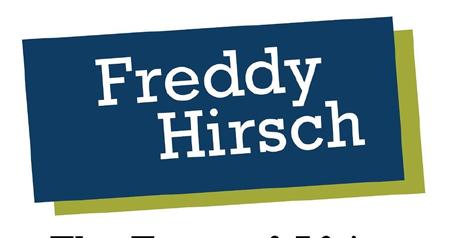


8-IN-1 TRADE SHOWS
5000+ ATTENDEES FREE ENTRY



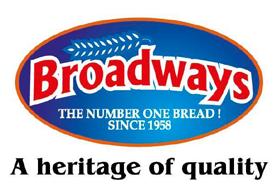


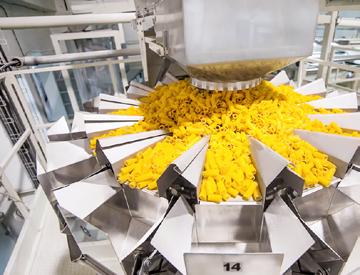







Food
Retail
Industry
Easstern Africa’s Largest
Manufacturing,
& HORECA
Transforming Africa’s Food Systems
Ghana implements 58.26% increase in cocoa producer price amid industry challenges

GHANA – The government of Ghana, under the Ghana Cocoa Board (COCOBOD), has announced a 58.26% rise in cocoa producer price as the country aims to increase farmer income.
This board, responsible for setting cocoa buying prices, increased price for the 2023-2024 crop year rises to 33,120 Ghana cedis (US$ 2,499) per ton, up
DIVESTMENT Daybreak Foods plans
US$13M debt deal
to stabilize operations, optimize balance sheet
SOUTH AFRICA – Daybreak Foods Pty Ltd, a leading South African poultry producer, has announced a debt deal worth R250 million (US$13 million) to stabilize its operations and optimize its balance sheet.
According to the company, the move comes on the heels of recent successful restructuring efforts and the appointment of a new executive team.
Under the leadership of Richard Manzini, Daybreak Farms underwent a comprehensive restructuring process in 2023.
In addition, the company recently announced a new C-suite team to support its ongoing growth plans.
The restructuring of the company’s balance sheet could pave the way for additional investment rounds to further advance its strategic direction as a protein foods business.
from 20,926 cedis (US$ 1,578) per ton set last September.
According to the statement signed by COCOBOD’s CEO Joseph Boahen Aidoo, the price increase aims to improve the welfare of farmers in response to the escalating cocoa prices on the global market.
As the backbone of Ghana’s economy, in 2022, the sector was expected to contribute more than 3.4 billion GHS (454 million U.S. dollars) to Ghana’s GDP, with a projected annual growth rate of 12.1 percent at the national level.
James Finlay receives US$23.6M from sale of Kenya tea business
KENYA – James Finlay, a private limited company specializing in processing and supply of tea, received KES3.1 billion (US$23.6M) from the sale of its Kenyan tea business..
The sale of the tea business to Sri Lanka’s LOLC Holdings, the Browns Investments PLC, was officially finalized in November 2023, but the value of the deal was not disclosed.
The sale saw LOLC Holdings acquire an 85 percent stake in James Finlay Kenya, with a 15 percent stake allocated to the local community through the Kipsigis Highlands Multipurpose Co-operative Society.
The deal will see LOLC Holdings take over James Finlay’s tea plantation, covering 10,300 hectares, including 5,200 hectares of tea fields across nine tea estates.

As part of the transition, the UK multinational will retain its tea extraction business which will be supplied by LOLC’s local operations that will be rebranded from James Finlay Kenya to Browns Plantations Kenya to reflect the change in ownership.
MAR/APR 2024 | FOOD BUSINESS AFRICA FOODBUSINESSAFRICA.COM 14 NEWS UPDATES
TRADE
JUNE 12-14, 2024
Sarit Expo Centre, Nairobi, Kenya

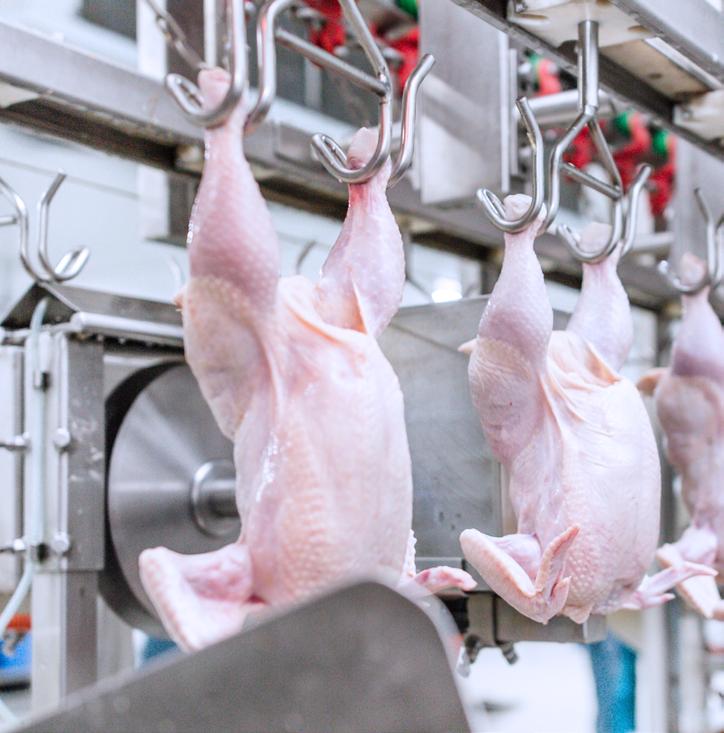




Lagos,
AFRICA EXPO MEAT
&
AFRICA’S BIGGEST MEAT, POULTRY, FISH & SEAFOOD INDUSTRY TRADE SHOWS www.africameatpoultryexpo.com AFRICA MEAT & POULTRY EXPO UGANDA AFRICA MEAT & POULTRY EXPO WESTERN AFRICA
Nigeria - September
Uganda - September
17-19, 2024 Kampala,
3-5, 2024
Suntory trials world-first hydrogen-fueled whisky distillation
JAPAN – Suntory Holdings, a Japanese drinks giant, has successfully trialled the use of hydrogen as a fuel source in the distillation of whisky, a significant step in its quest to decarbonize whisky production.
The trial took place at Suntory’s Yamazaki distillery in Osaka, where the company successfully demonstrated the feasibility of using hydrogen as a fuel source in the distillation process.
Utilizing hydrogen in the “direct firing” of the still allowed for higher temperatures compared to indirect
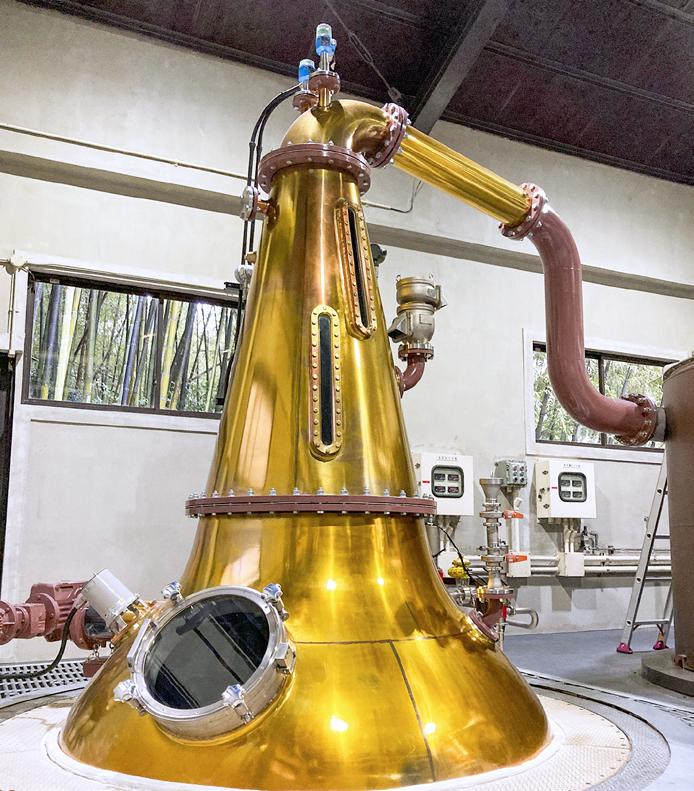
heating methods using steam coils.
According to Suntory Holdings, this direct-firing technique can enhance the quality and depth of character of the spirit, although transitioning from gas to hydrogen presented technical challenges in the decarbonization effort.
The trial at the Yamazaki distillery is part of Suntory’s broader initiative dubbed ‘WhiskHy’, which focuses on decarbonization technology leveraging ‘green’ hydrogen.
Kenya issues ultimatum to alcohol manufacturers

KENYA – Kenya has issued a stern warning to 24 alcohol manufacturers, including prominent industry players like Keroche Breweries and London Distillers, threatening to revoke their licenses if they fail to comply with government guidelines within 21 days.
Interior CS Kithure Kindiki announced that only three out of 29 manufacturers and distillers of secondgeneration alcohol have been allowed to resume production.
KWAL, Savanna Brands Company
Limited, Patiala Distillers Kenya Limited, Kenya Nut Company Limited, and UDV are the only entities permitted to operate, having met the specific requirements outlined by the authorities.
In March, the government suspended licenses of secondgeneration alcohol manufacturers and distillers pending fresh vetting amid the increasing menace of illicit brews in the country.
illicit brews, drug abuse, and substance abuse, the government shut down a total of 18,650 liquor joints and 14 distilleries in the ongoing national crackdwon according to Kenya’s Interior Cabinet Secretary.
Kindiki also revealed plans to table new legislations in the fight against illicit brews in the parliament. He stated, “New stringent laws to combat illicit drugs and substance abuse will be submitted to Parliament next month.”


ONLY THREE OUT OF 29 MANUFACTURERS AND DISTILLERS OF SECONDGENERATION ALCOHOL HAVE BEEN ALLOWED TO RESUME PRODUCTION.
Additionally, in efforts to combat
MAR/APR 2024 | FOOD BUSINESS AFRICA FOODBUSINESSAFRICA.COM 16
REGULATORY
NEWS UPDATES
JUNE 12-14, 2024
Sarit Expo Centre, Nairobi, Kenya

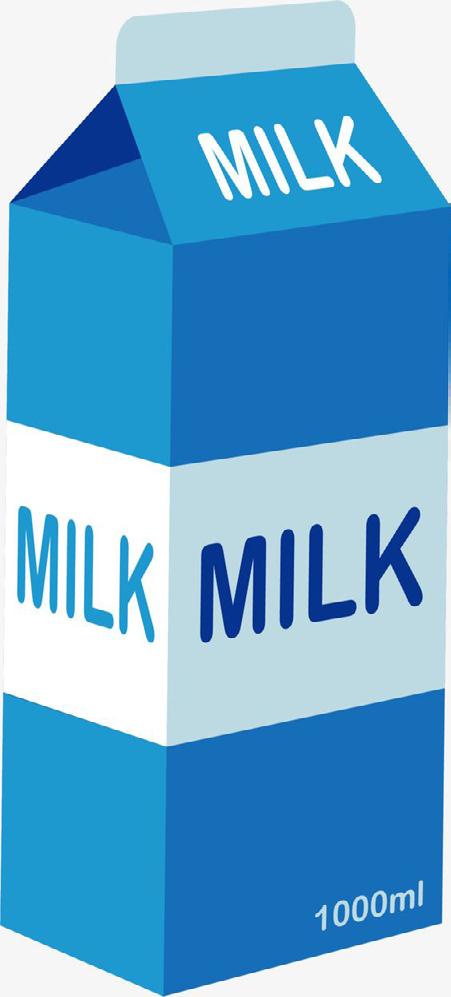

DAIRY MANUFACTURING AFRICA EXPO UGANDA
Kampala, UgandaSeptember 3-5, 2024
DAIRY MANUFACTURING AFRICA EXPO WESTERN AFRICA



Lagos, NigeriaSeptember 17-19, 2024



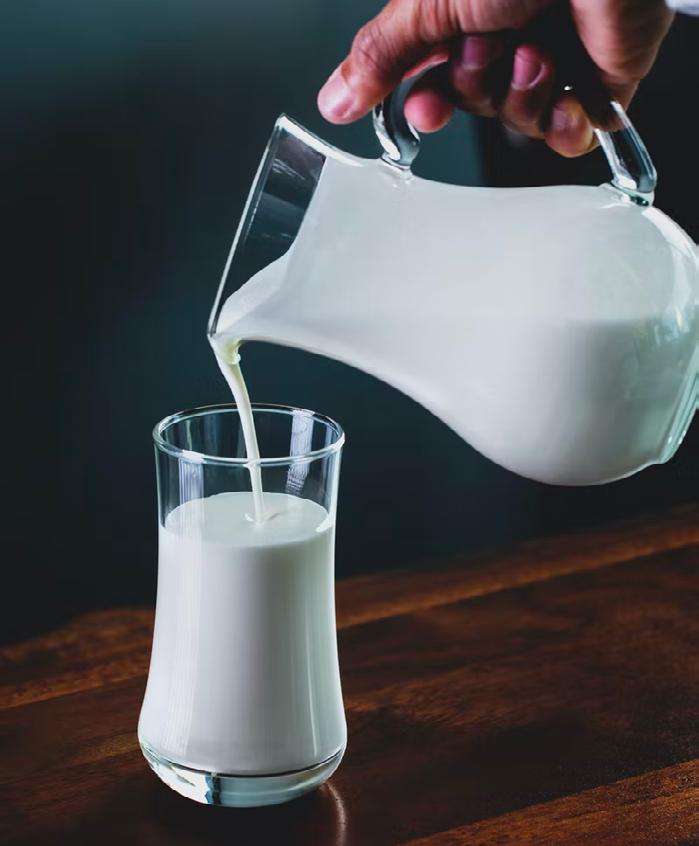
Africa Dairy 2.0 - Taking Africa's Dairy Industry into the Next Level through Innovation & Sustainability
Dairy AFRICA MANUFACTURING EXPO
SCAN ME
www.dairymanufacturingafrica.com
AFRICA’S NO.1 DAIRY INDUSTRY TRADE SHOW & CONFERENCE
TO ATTEND , SPONSOR & EHIBIT
SIGN UP
Nigeria inaugurates second largest tomato processing factory
NIGERIA – Nigeria’s President, Bola Tinubu, has officially unveiled a 20 billion Naira (US$14.2 million) tomato farm, as well as the second largest processing facility in Nigeria.
Plans to construct the facility date back to 2016, after negotiations with GB Foods Africa, a Spanish multinational company- they agreed on establishing a tomato plantation and processing facility expected to provide employment for 1,000 individuals.
By 2020, GB Foods Africa had already announced the operational status of its factory, initiating tomato harvesting and concentrate production.
Opening this facility is a part of a bold initiative by the government of Nigeria in strengthening its agricultural sector and reducing dependence on imported tomato paste.
PepsiCo,Carrefour resolve pricing dispute
FRANCE – PepsiCo and Carrefour have reached a resolution in a pricing dispute that caused the French retailer to remove PepsiCo’s food and beverage brands from its shelves across Europe earlier this year.
According to Carrefour, PepsiCo snacks and beverages are currently being restocked at Carrefour stores in France.
Earlier this year, Carrefour delisted PepsiCo food and beverage brands from its stores in France subsequently extending to other stores in Spain, Italy, Belgium, and Poland.The retailer ceased selling PepsiCo products such as Lay’s and Doritos crisps, as well as 7Up drinks and Lipton tea in France due to what it deemed as “unacceptable price increases”.
Cadbury Nigeria suffers US$14.7M loss
NIGERIA – Cadbury Nigeria Plc is facing significant setback as shareholders brace for a dividend-less year due to a staggering loss of N19.09 billion (US$14.7 Million) after tax for the financial year 2023.
The company’s annual report for the year ended December 2023 marks a drastic decline from the previous year’s profit of N583.11 million (US$ 453,000).
This comes despite a noteworthy 46% revenue surge to N80.38 billion (US$ 62.5 million) from N55.21 billion (US$ 42.8 million) in the preceding year.
In light of this adverse financial outcome, the company’s directors have refrained from recommending any dividends for the year, a sharp contrast to the N751.28 million (US$0.6 million) final dividend payout in 2022.

The company is looking to take proactive measures through debt structuring. This will include efforts to convert a US$7.7 million debt owed to the principal shareholder, Cadbury Schweppes Overseas Limited, into equity. The move will augment Cadbury Schweppes Overseas Limited’s shareholding in Cadbury Nigeria to 79.39%.
Heineken’s Bralirwa Plc expands production capacity with new line

RWANDA – Bralirwa Plc, a subsidiary of the Heineken Company, has inaugurated a new production line at its brewery in Rubavu District.
Bralirwa invested over €30 million (US$32M) in the expansion project which included the installation of its inaugurated packaging line.
This is in line with the company’s commitment to developing the Rwandan beer market for sustainable growth and proactively investing in digital technology and innovation to improve its operations.
With sustainability at the forefront of its agenda, the new production line will operate with reduced energy and water consumption, aligning with Heineken’s ambitious goal of achieving net zero across all production sites by 2030.
MAR/APR 2024 | FOOD BUSINESS AFRICA FOODBUSINESSAFRICA.COM 18 NEWS UPDATES
FINANCIALS INVESTMENT
EXPO

AFRICA MILLING & BAKING EXPO
EASTERN AFRICA
Nairobi, Kenya - June 12-14, 2024

AFRICA MILLING & BAKING EXPO
UGANDA
Kampala, UgandaSeptember 3-5, 2024

AFRICA MILLING & BAKING EXPO
WESTERN AFRICA
Lagos, Nigeria - September 17-19, 2024












www.africamillingbakingexpo.com No.1 Trade Shows For Latest Technologies To Africa’s Milling, Baking, Animal Feed & Snacks Industries info@fwafrica.net +254 725 34 39 32
SIGN UP TO ATTEND , SPONSOR & EHIBIT
AFRICA MILLING & BAKING
Plukon Food Group acquires Polish poultry business Algas
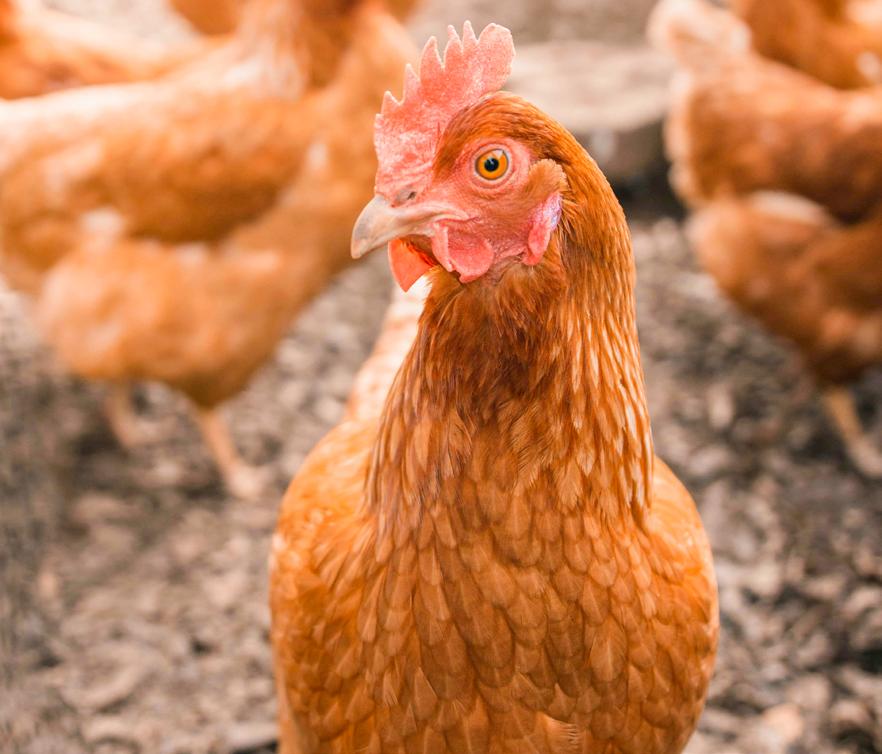
POLAND – Netherlands based poultry company, Plukon Food Group, is currently in the process of acquiring the assets of its Polish counterpart, Algas SP.
While financial specifics of the acquisition remain undisclosed, Plukon will be assuming control of Algas’s slaughterhouse and processing facilities located near Katowice, Poland.
However, the Szatan family, who own Algas, will retain a
stake in the business operations of its slaughterhouse and processing factory.
Plukon, presently positioned as the fourth largest poultry company in Europe and the 19th largest globally, sees this acquisition as a strategic move to fortify its presence in the Polish market and reinforce its commitment to growth and leadership in the European poultry sector.
Refresco completes acquisition of VBC Bottling Company
US – Refresco, a prominent independent beverage solutions provider, has finalized its acquisition of VBC Bottling Company, a contract manufacturer of premium beverages based in the United States.
The move marks a significant step for Refresco in expanding its presence
and capabilities in North America, enabling the company to offer enhanced beverage solutions to its customers.
The facility boasts over 600,000 square feet of manufacturing and warehouse space, equipped with advanced capabilities for large-scale production, including cold-filled
canning, post-pasteurization, and robotic variety packing.
This acquisition follows Refresco’s earlier expansion efforts, including the acquisition of Avandis, a manufacturer of alcoholic beverages in the Netherlands, expanding its product offerings in the alcohol category.
Brown-Forman launches own distribution business in Japan
JAPAN – Brown-Forman Corporation, a leading American-owned spirits company, has announced the launch of its own distribution business in Japan.
The move signifies a departure from relying on external distributors, a practice upheld since the company’s entry into the Japanese market in the 1970s.
The newly established Brown-Forman Japan office, situated in the heart of Tokyo, has been operational since the end of 2023.
Aaron Martin, VP and General Manager of Brown-Forman Japan, said: “With our dedicated team in place and our new and inspiring headquarters in the heart of Tokyo, we are ideally set up to further the growth of our brands in Japan across all channels.”
The company’s expansion into Japan follows its successful direct sales operations in key global markets like Taiwan, Thailand, and South Korea within the Asian region.

MAR/APR 2024 | FOOD BUSINESS AFRICA FOODBUSINESSAFRICA.COM 20 NEWS UPDATES
INVESTMENT ACQUISITION
AFRICA Food Safety SUMMIT
Eastern Africa Edition
Kampala, Uganda
September 3-5, 2024

AFRICA Food Safety SUMMIT
Western Africa Edition
Lagos, Nigeria
September 17-19, 2024
AFRICA Food Safety SUMMIT
Southern Africa Edition
Date and Location to be confirmed
Africa’s No.1 food safety and quality conferences and trade shows
Be inspired by an unprecedented lineup of food safety and nutrition experts and opinion shapers from across Africa and the World. Meet and network with some of the most influential key decision makers from the private and public sectors, NGOs and more across various disciplines and countries from Africa and beyond of career-changing exchanges and innovative ideas. info@fwafrica.net +254 725 343 932 www.summit.foodsafetyafrica.net Sign up to Sponsor, Attend & Speak AFRICA Food Safety SUMMIT
REASONS TO ATTEND THE SUMMIT
South Africa court overturns planned seizure of plant-based meat alternatives
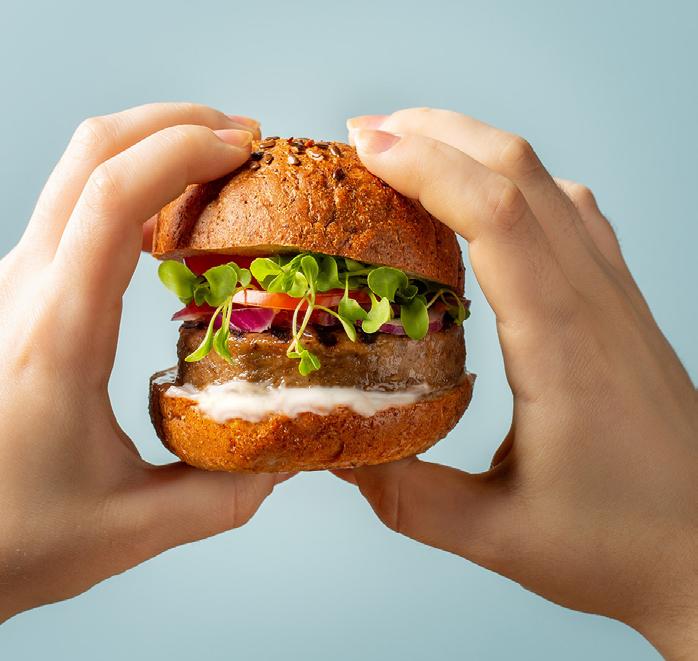
SOUTH AFRICA – The Johannesburg High Court recently overturned the
Tiger Brands launches peanut butter plant in Johannesburg
SOUTH AFRICA – Tiger Brands has strengthened operations with the inauguration of a R300 million (US$15,940,243) Peanut Butter plant in Chamdor, South Africa.
This cutting-edge manufacturing facility serves as the new operational hub for South Africa’s beloved peanut butter brand, Black Cat.
This bold move underscores the vast potential within the peanut butter category, promising sustainable returns for the future.
The state-of-the-art plant is equipped with advanced technologies and streamlined processes enabling Tiger Brands to uphold its commitment to excellence while meeting market needs.
Tjaart Kruger, CEO of Tiger Brands, said: “This new facility will introduce flexibility, improved efficiencies, and reduced costs.”
planned seizure of plant-based meat alternatives that are marketed using “meat-like” terms in South Africa.
These products are set to remain permanently available on supermarket shelves all over the country.
In June 2022, South Africa’s Department of Agriculture, Land Reform and Rural Development (DALRRD) banned the use of meatlike terms on plant-based product labels, asserting that it was misleading to consumers.
This included banning items that had a naming resemblance to processed
FOOD SERVICE
meat products like ‘nuggets’, ‘burgers’, ‘patty’, and ‘sausage’.
In response to this, plantbased advocates took the case to the Johannesburg High Court, successfully arguing that plant-based meat alternatives were not covered by legislation related to the classification and labeling of processed meats.
After thorough review of the case which had seen the planned seizure halted several times, the court has now completely overturned the seizure concluding that it was not legally enforceable.

Carrefour opens 23rd outlet in Kenya
KENYA – Carrefour has inaugurated its latest addition, a sprawling 600sqm supermarket situated in the Global Trade Centre in the heart of Westland, Nairobi.
This flagship establishment marks the 23rd venture in Kenya and the 14th across the nation, embodying a commitment to serving the local community with tailored offerings.
According to Alexandre Cerqueira, Carrefour Kenya’s District Manager Supermarkets, this new Carrefour outlet embraces a contemporary aesthetic and a thoughtfully curated array of products designed to cater to the diverse preferences of its clientele.
The grand opening ceremony welcomed esteemed guests, including H.E. James Njoroge Muchiri, Deputy Governor, and H.E. UAE Ambassador in Kenya, Dr. Salim Ibrahim Binahmed Mohammed Alnaqbi, alongside notable figures like Wambui Mbarire, CEO


of Retrak, and Christophe Orcet, Regional Director East Africa.
Looking ahead, Carrefour GTC teased an exciting journey ahead in 2024, hinting at a series of forthcoming openings that promise to further enrich the retail landscape.


MAR/APR 2024 | FOOD BUSINESS AFRICA 22 NEWS UPDATES
REGULATORY



Sarit Expo Centre, Nairobi, Kenya








AFRICA INGREDIENTS EXPO UGANDA
Kampala, Uganda - September 3-5, 2024
AFRICA INGREDIENTS EXPO WESTERN AFRICA
Lagos, Nigeria - September 17-19, 2024



EXPO INGREDIENTS
AFRICA
SCAN ME
Premier Food, Personal Care & Pharma Industry Ingredients Solutions Trade Shows
Africa’s
FAO, WHO launch 2024 World Food Safety Day campaign theme
GLOBAL — The Food and Agriculture Organization of the United Nations (FAO) and the World Health Organization (WHO) have kicked off the joint World Food Safety Day campaign for 2024, unveiling the theme “Food safety — prepare for the unexpected.”
This year’s campaign, leading up to World Food Safety Day on June 7, aims to shed light on the significance of

FDA announces elimination of PFAS in food packaging to protect public health
U.S — To reduce dietary exposure to per- and polyfluoroalkyl substances (PFAS) from food packaging, the U.S. Food and Drug Administration (FDA) has banned the sale of grease-proofing materials containing PFAS in food packaging within the United States.
This move directly addresses concerns regarding major sources of dietary PFAS exposure, including fastfood wrappers, microwave popcorn bags, take-out paperboard containers, and pet food bags.
The FDA’s announcement signifies the successful completion of a voluntary initiative by manufacturers to eliminate the sale of food contact substances containing certain PFAS used as greaseproofing agents in the U.S.
anticipating and addressing unforeseen food safety challenges.
The campaign delves into various unexpected food safety incidents that can transpire despite diligent efforts to maintain food safety.
From everyday occurrences like power outages impacting food storage at home to international food safety alerts due to contamination within the food supply chain, the focus is on
Potential african swine fever vaccine offers hope amidst pandemic
AFRICA — The International Livestock Research Institute (ILRI) researchers are on the brink of a groundbreaking scientific achievement—a potential ASF vaccine already showing remarkable efficacy in controlled experiments.
Leveraging CRISPR/Cas9 genome editing technology, the team has developed a vaccine candidate demonstrating 100% effectiveness in controlled experiments—an achievement poised to transform the trajectory of ASF control efforts.
CRISPR/Cas9 technology offers unprecedented precision in genome editing, enabling scientists to target specific genes within the ASF virus with unparalleled accuracy. Unlike traditional methods, this revolutionary approach allows for the swift identification and deletion of genes crucial for viral replication and pathogenesis.
“We’ve shown that with CRISPR/ Cas9, within two months you can generate multiple vaccine candidates in parallel,” says Hussein Abkallo, a scientist at ILRI.
understanding and preparing for a range of potential scenarios.
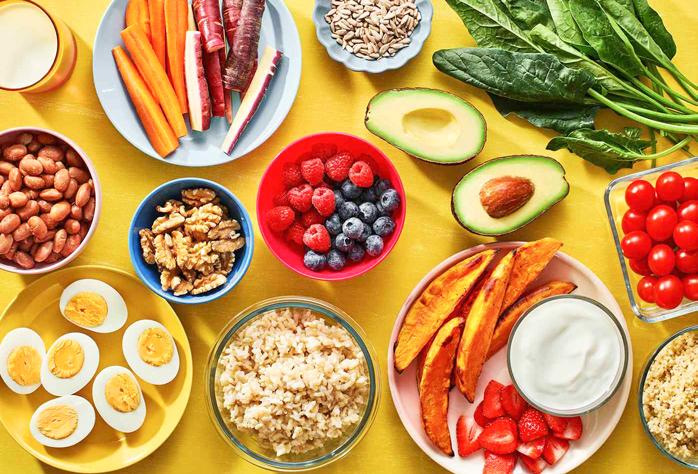
INVESTMENTS
FS4Africa project launches to elevate food safety standards across African
NIGERIA — The “FoodSafety4Africa” (FS4Africa) project, designed to address and mitigate critical food safety issues threatening the continent, recently inaugurated its journey with a landmark kick-off meeting in Ibadan, Nigeria.
FS4Africa is led by a consortium of leading partners from both African and European nations.
Its goal is to tackle a wide array of food safety concerns that have long afflicted the continent, from the dangers of mycotoxin contamination to the risks posed by pathogens like Escherichia coli and the widespread problem of food adulteration.
Focusing primarily on the informal sector, which is crucial for food security and local economies yet is often beset by safety challenges, the project aims to uplift local markets.
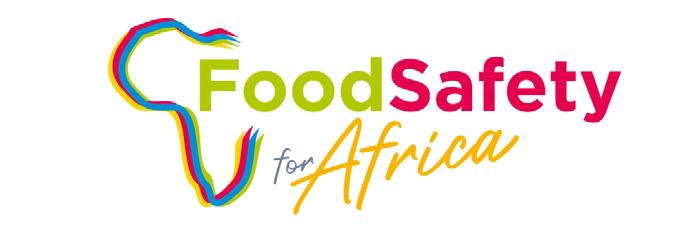
MAR/APR 2024 | FOOD BUSINESS AFRICA FOODBUSINESSAFRICA.COM 24
EVENT REGULATORY
NEWS UPDATES
Dutch-based De Heus to construct US$26M feed factory in Kenya
KENYA – De Heus Animal Nutrition, a Dutch multinational, has initiated the construction of a KES 3 billion (US$26M) feed factory in Athi River, Kenya. The company estimates that the project will be completed in late 2025. The factory aims to produce 200,000 metric tonnes of animal feed, boosting regional agriculture and creating around 1000 jobs.
The move is seen as a positive disruption to Kenya's animal feed industry, plagued by high production costs. Officials at the launch ceremony praised the investment as a vote of confidence in Kenya's economy and agriculture sector, anticipating benefits like agricultural innovation and job creation.

PARTNERSHIP
Nestlé to invest over US$500M in Italian petfood facility

ITALY – Nestlé, a global food and beverage leader, plans to invest around US$507 million in constructing a new pet-food manufacturing facility in Mantua's Valdaro industrial area, Italy. The facility will focus on producing wet pet food to meet regional demand. Spanning 180,000 square meters, the project is expected to create 300 job opportunities by 2027.
Marco Travaglia, Nestlé Italy's President and CEO, praised the support from the government, emphasizing Italy's importance in the evolving pet food sector. Minister Urso hailed Nestlé's decision as a vote of confidence in Italy's resurgence as an investment destination, acknowledging the Ministry of Business and Made in Italy's support in advancing the project.
REGULATORY
Mandela Millers acquires ISO 22000 certification
UGANDA – Mandela Millers, a subsidiary of the Mandela Group of Companies in Uganda, has obtained ISO 22000 Food Safety Management System Certification from the Uganda National Bureau of Standards (UNBS), making it Uganda's sole flour manufacturer with this distinction. The certification underscores Mandela Millers' dedication to customer safety.
Patricia Bageine Ejalu of UNBS emphasized the rigorous control measures implemented by Mandela Millers across its production processes. This internationally accredited certification not only ensures the safety of products for Ugandans but also for global consumers. Samuel Musyoka, Quality Assurance Manager at Mandela Millers, highlighted the company's meticulous monitoring of its entire food processing chain to mitigate safety hazards.

ANDRITZ teams up with Microsoft to revolutionize manufacturing industry
AUSTRIA — ANDRITZ has unveiled a strategic partnership with Microsoft to establish fully autonomous factories and a robust data ecosystem. The collaboration signifies a significant leap in digital transformation, focusing on efficiency and customer satisfaction.
ANDRITZ's President & CEO, Joachim Schönbeck, sees this as a pivotal moment in the company's digital evolution, aiming to optimize their Metris

solutions.
Central to the collaboration is the ANDRITZ Metris platform, with the Copilot solution leveraging Microsoft Azure OpenAI Service for anomaly detection and operator-machine communication, enhancing decisionmaking and process optimization. The partnership also aims to digitize internal processes, enabling employees to focus on strategic tasks and deliver better customer experiences.
FOODBUSINESSAFRICA.COM MAR/APR 2024 | FOOD BUSINESS AFRICA 25
INVESTMENTS
digital platform with Microsoft's
Nampak, Woodland Dairy introduce tethered cap carton to combat plastic pollution
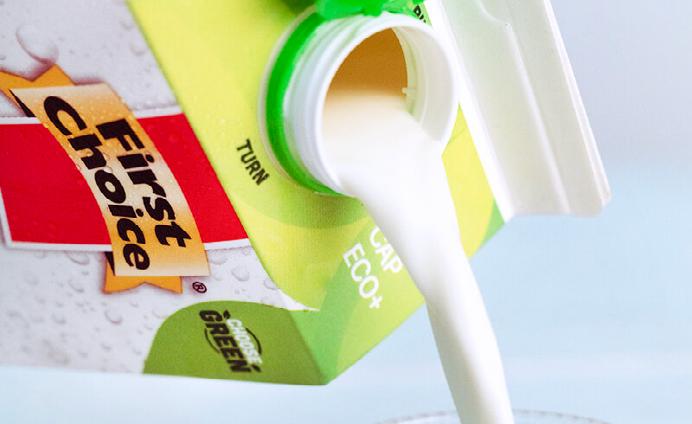
SOUTH
Coca-Cola Company’s Smartwater introduces canned water for convenience
USA — The Coca-Cola Company’s Glacéau smartwater brand is launching 12-oz. aluminium cans adorned with a fresh visual design, aiming to resonate with consumers' growing environmental consciousness while offering convenient hydration options for the spring and summer seasons.
The redesigned cans boast a sleek and elegant aesthetic, mirroring the brand's signature bottle packaging with a consistent color palette and silver drop motifs.
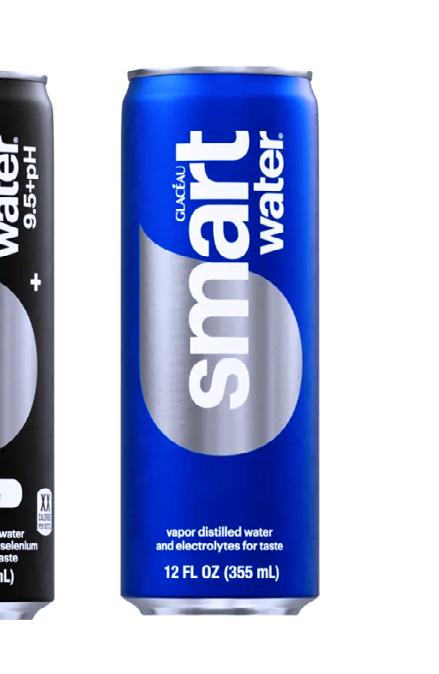
Each variety is distinguished by a distinct background color – royal blue for the original smartwater and black for the alkaline variant with antioxidant properties.
By embracing aluminium cans, the brand seeks to align with the escalating consumer preference for non-plastic, sustainability-oriented packaging solutions without compromising on ease of use.
Woodlands Dairy, has introduced South Africa's inaugural tethered cap carton, marking a significant stride in combating plastic pollution.
This innovative design prevents the separation of the cap from the carton during post-consumer recycling, aligning with the growing demand for sustainable packaging solutions.
Raymond Dube from Nampak
BIDCO eliminates security cap seal on planet aqua water, removing 1MT of plastic
KENYA — BIDCO, a prominent consumer goods company in Kenya, has taken a substantial stride towards reducing plastic waste by removing the security cap seal from its Planet Aqua Water bottles, effectively eliminating approximately 1 metric tonne of unnecessary plastic from their packaging.
By simplifying the bottle design and reducing plastic usage, BIDCO is actively contributing to environmental conservation efforts and reducing its carbon footprint.
This initiative aligns perfectly with the global movement towards minimizing single-use plastic and promoting more sustainable packaging solutions.
BIDCO's actions exemplify corporate responsibility and demonstrate a proactive approach towards addressing plastic waste challenges within the consumer goods industry.
Liquid Cartons emphasizes the importance of sustainability in product packaging, highlighting its positive impact on both the environment and consumer perception.
Woodlands Dairy emerges as the pioneer in adopting this environmentally friendly packaging solution, showcasing its commitment to sustainability and consumer preferences.
ACQUISITION
Ishida Europe completes acquisition of National Packaging Systems

SOUTH AFRICA — Ishida Europe has expanded its presence in Africa through the recent acquisition of National Packaging Systems (NPS), a leading packaging equipment manufacturer based in South Africa.
Established in 1983, NPS is renowned for its high-performance vertical form, fill, and seal machines catering to diverse packaging needs.
They also specialize in volumetric fillers, auger fillers, and feed systems, serving industries ranging from food (including sugar, rice, and snacks) to non-food applications like firelighters and automotive components.
The acquisition represents a strategic move aimed at combining technical expertise, extensive applications experience, and market knowledge.
MAR/APR 2024 | FOOD BUSINESS AFRICA FOODBUSINESSAFRICA.COM 26
AFRICA — Nampak Liquid Cartons, in collaboration with
SUSTAINABILITY SUSTAINABILITY
NEWS UPDATES
WorldVeg commissions new Vegetable Genebank to Eswatini’s MoA

ESWATINI — Supported by Taiwan, WorldVeg has inaugurated Eswatini's new Vegetable Genebank, aiding climate resilience.
Dr. Shakuntala Thilsted hailed it as vital for preserving regional vegetable diversity. Simultaneously, Africa's first Vegetable Genebank was opened in Arusha, Tanzania, championing biodiversity conservation.
Dr. Gabriel Rugalema lauded the long-term commitment to agricultural heritage preservation. Mr. Gerald Mweli pledged support for African vegetable biodiversity conservation.
Dignitaries, including Ambassadors de Boer and Lou, commended WorldVeg's contributions to healthier lives through improved vegetable varieties.
European supermarket chains implement AI fruit ripeness scanners
EUROPE – European supermarket chains have implemented AI fruit ripeness scanners.
Dozens of devices have been deployed in major chains like Jumbo and Migros, with German retailers initiating pilot projects.
Plans to introduce the technology in the UK are underway. Initially calibrated for avocados, the scanners will expand to assess mangoes, melons, and kiwifruits.
Despite initial skepticism, the positive reception affirms the innovation's legitimacy. Developed by Dutch company OneThird, the scanners address retailers' concerns about manual inspections damaging avocados.
Following successful trials, demand surged, prompting inquiries about extending the scanner's capabilities. Time-intensive data collection is underway for assessing other fruits.
Spinneys expands presence in Egypt with launch of new store in October City
EGYPT – Spinneys has expanded its presence in Egypt with the launch of a new store in October City.
The store, situated on Waslet Dahshour road, was flagged off on March 24, marking a milestone in its expansion strategy.
CEO Mohanad Adly highlighted its significance amidst economic challenges, planning six more openings by June.
Since 2006, Spinneys has grown to 25 stores nationwide, employing 2500 individuals. Adly reaffirmed the growth plan despite challenges, aiming for more stores annually for the next three years.
The 750 m2 supermarket expansion is part of Spinneys' 2023/2024 fiscal year plan, demonstrating commitment to Egyptian consumers.

Nigeria inaugurates second largest tomato processing factory
NIGERIA — Nigeria has inaugurated its second-largest tomato processing factory, led by President Bola Tinubu, unveiling a 20 billion Naira (USD14.2) facility.
The Minister of Agriculture and Food Security, Senator Abubakar Kyari, represented the President at the event, emphasizing the government's commitment to food security.

Initiated in 2016 with GB Foods Africa, the factory commenced
operations by 2020, bolstering Nigeria's agricultural sector and reducing reliance on imported tomato paste.
Located in Gafara, Kebbi State, the facility spans 1,500 hectares and employs 2,000 workers, capable of producing 650 tons of concentrate daily.
Nigeria's agricultural advancements, spearheaded by Minister Abubakar Bagudu, also include cassava cultivation and bee farming promotion.
FOODBUSINESSAFRICA.COM MAR/APR 2024 | FOOD BUSINESS AFRICA 27
TRADE & MARKET UPDATE RETAIL TRADE & MARKET UPDATE
Kenya Nutritionist and Dietitian Institute endorses Brookside Plus range
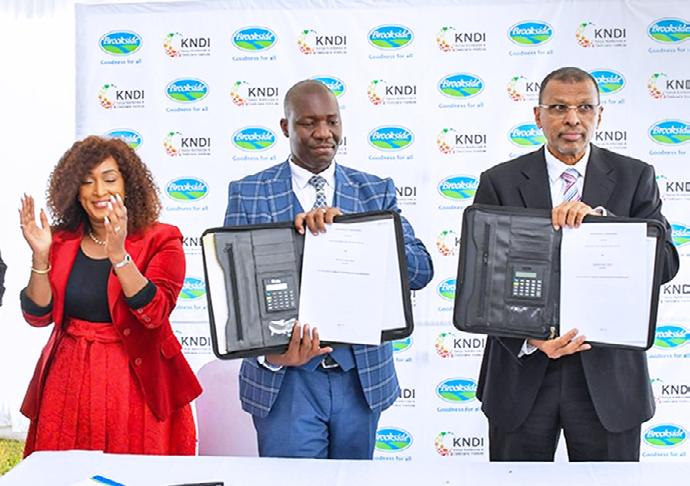
KENYA – Brookside Dairy Limited’s “Brookside Plus” range has become the first dairy brand to receive endorsement from the Kenya Nutritionist and Dietitian Institute. The endorsed products include lactose-free milk, lowfat milk, probiotic yoghurt, vitamin A and D-fortified milk, and vitamin A and fibre-enriched products.
According to Reza Cheboko, a Marketing Director from the company, the endorsement was done after the company underwent active review and analysis process to monitor the alignment with Section 36-2 of the law.
REGULATORY
FDA grants GRAS status to Superbrewed Food’s postbiotic cultured protein
USA – The Food and Drug Administration (FDA) has approved Superbrewed Food’s bacteria biomass protein, granting it Generally Recognized as Safe (GRAS) status. The approved ingredient, labelled as Postbiotic Cultured Protein, is seen as the “first-ever” FDA-notified, bacteriaderived biomass ingredient and it shares similarities with nutritional fungal proteins and aligns with consumer acceptance trends of probiotics and prebiotics.
According to Bryan Tracy, CEO and co-founder of Superbrewed Food, the approval opens doors for adoption by Food & Beverage (F&B) brands in the United States, especially in dairy and alternative dairy applications.

APPOINTMENT
Arla Foods appoints first Ghanaian Managing Director to lead Ghana business

NIGERIA – Arla Foods, renowned producers of Dano milk variants, has appointed Paul Dowuona as the Managing Director to lead its Ghana business, effective from August 1, 2024. Dowuona who will become the first Ghanaian to head the company’s operations in Ghana brings over 14 years of sales experience in his role.
His appointment after serving as head of West Africa Distributor Sales (Export Sales) follows the departure of Vytautas Petronis, who has been appointed Head of Arla Foods’ operations in Indonesia.
Canada Royal Milk receives regulatory approval to launch infant formula in domestic market
CANADA – Canada Royal Milk, a subsidiary of China’s Feihe Milk, introduces infant formula to the Canadian market following regulatory approval from the Canadian Food Inspection Agency (CFIA).
The Ontario-based company, established in 2019, has primarily focused on producing powdered milk for food manufacturers but now plans to diversify its product range to include

infant
formula.
According to a statement from the company, the necessary approvals from Health Canada and CFIA were obtained after nearly two years of regulatory processes. The company’s more than 150 skilled professionals at its Kingston facility are now preparing to initiate production of the first batch of infant formula, with retail distribution anticipated nationwide soon.
MAR/APR 2024 | FOOD BUSINESS AFRICA FOODBUSINESSAFRICA.COM 28 NEWS UPDATES
REGULATORY
BUSINESS SUMMIT AFRICA

SEPTEMBER 10-12, 2024 | Safari Park Hotel, Nairobi, Kenya
THE AFRICA CEO LEADERSHIP & SUSTAINABILITY FORUM
The Africa Business Summit is the ground-breaking executive level conference and expo on the future of strategic leadership, entrepreneurship, sustainability & african transformation
The program at the 3-day Summit comprises of a number of premium sessions such as Leadership Dialogues, CEO Roundtables, Plenary and Panel Discussions and a B2B Deal Connect Service as well as presentations by influential people and change makers who are making waves – and inspiring the next generation of leaders in Africa
Co-located with:


* *
Digitalisation & Tech Innovation Sustainable Business & ESG Strategic Leadership Pan-African & Global Trade Financing, Investing & Financial Inclusion Industrialisation & Infrastructure Development Supply Chain & Logistics Transformation Human Capital Development KEY AGENDA www.africabizsummit.com SCAN ME
The Africa CEO Leadership & Sustainability Forum Events


Anne Joy Michira appointed as Marketing and Innovations Director for Diageo’s SWC region
KENYA – Diageo, a global alcoholic beverage, has appointed Anne Joy Michira as the Marketing and Innovations Director for the South, West, and Central Africa (SWC) region.
Michira is currently serving the same role, but at Diageo’s Kenya subsidiary, East African Breweries Ltd (EABL). She will be transitioning into this new position in London at the start of April, bringing with her nearly twenty years of experience in fast-moving consumer goods.
Michira's journey at Diageo began in 2015 at EABL, where she held various roles before her current position. Her impact on EABL's performance is notable, especially in rejuvenating iconic beer brands like Tusker and Pilsner.
Michira will be heading a region which was formed back in November 2023, covers Southern Africa, the Indian Ocean, West Africa, and Central Africa, including key markets like Nigeria and South Africa.
Jackie Tahakanizibwa to chair Uganda Alcoholic Industry Association
UGANDA – Jackie Tahakanizibwa, Corporate Relations, Public Policy, and Regulatory Affairs Manager at Uganda Breweries Limited, has been appointed to chair the Uganda Alcoholic Industry Association (UAIA) for a three-year term.
This association, which serves as an umbrella organization for registered and regulated producers of alcoholic beverages in Uganda, has appointed her aiming to align their interests and promote responsible drinking since its establishment in 2006.
Jackie, who has been serving in the association as secretary general, comes in to replace Onapito Ekomoloit, who will be assuming the association’s inaugural patron position.

She will be deputized by Emmanuel Njuki, who is currently the Legal and Corporate Affairs Head at Nile Breweries Limited (NBL).
During the association’s 2024 Annual General Meeting (AGM), Tahakanizibwa emphasized her commitment to collaborating with the government and stakeholders to foster sectoral growth and advocate for members' interests.

Ayo Awosika to serve as general manager for UAC Foods Limited
NIGERIA – Ayo Awosika has been named as the new general manager of UAC Foods Limited, a Nigerian Food and Beverage company.
In addition to holding a B.Sc. in economics and an MBA in Strategic Management, Awosika brings over thirteen years of expertise in Strategy, Sales, and Business Development. He has showcased his proficiency in different departments, including Strategy Design and Implementation, Route-To-Market Design, and P&L Management.
This change in leadership comes after s UAC Nigeria Plc's outstanding financial performance in fiscal year 2023, recording a pre-tax profit of approximately US$9.14 million. This marked a significant rebound from the previous year.
Additionally, its revenue grew by 9%, propelled by increased sales across various segments such as Paints (+24%) and Packaged Food and Beverages (+23%).
APPOINTMENTS Update MAR/APR 2024 | FOOD BUSINESS AFRICA FOODBUSINESSAFRICA.COM 30
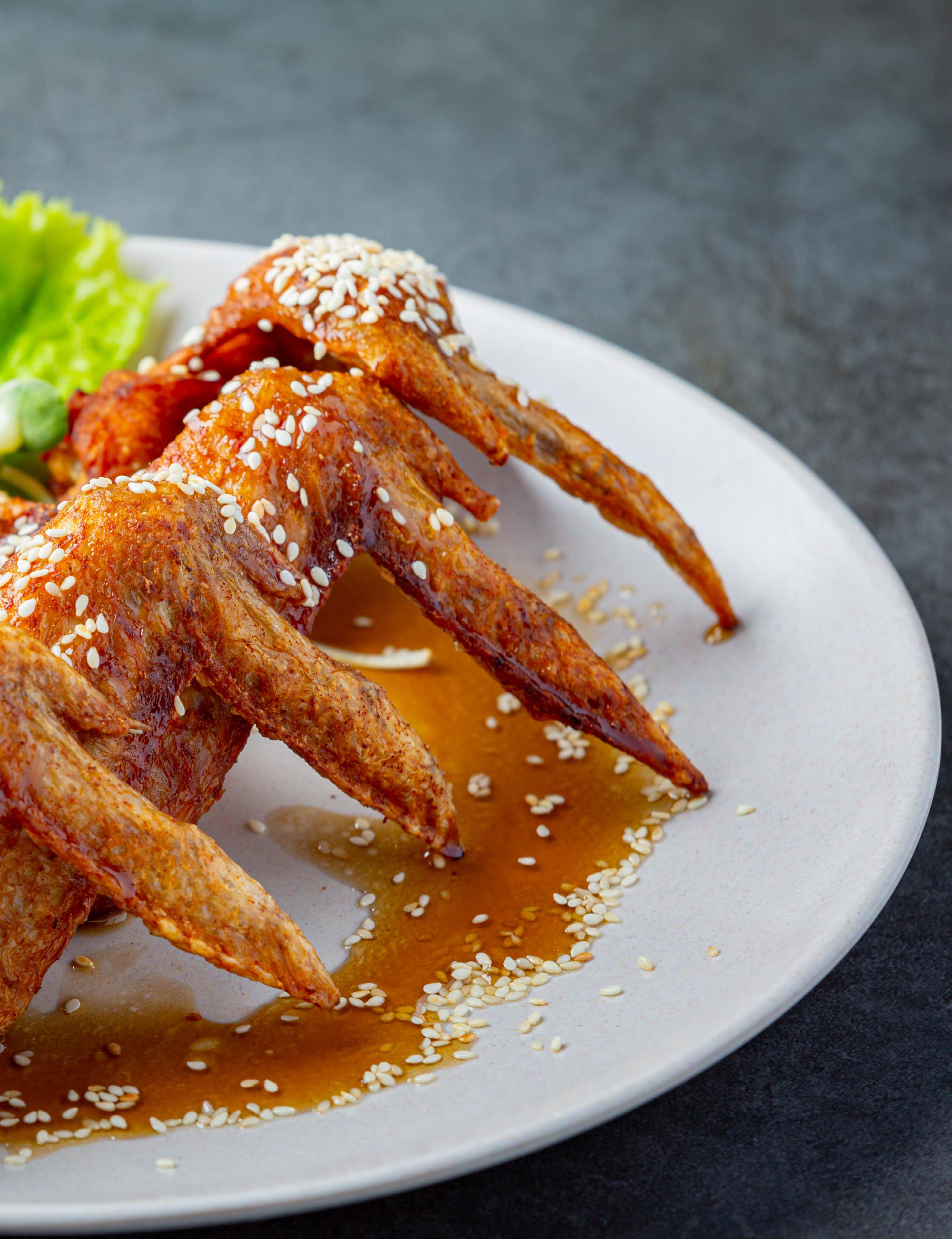
Mandla Nkomo appointed as Partners in Food Solutions’ new CEO
SOUTH AFRICA – Zimbabwe's Mandla Nkomo has been appointed as the new CEO for Partners in Food Solutions (PFS), a US based nonprofit.
Nkomo is taking over from the stepping down co-founder Jeff Dykstra, marking the first time an African will lead the organization. He will be joining the company’s leadership position after serving as the chief growth officer for Consultative Group on International Agricultural Research (CGIAR), one of the largest publicly funded agricultural research organizations.

With over two decades of diverse experience spanning public and private sectors, PFS has expressed confidence in his appointment. In a statement, Ken Powell, PFS’s board chair, cited his agricultural science background and extensive experience in the sector as his biggest stronghold.
Since its inception in 2008, PFS has linked African food processors with volunteers from major agri-food corporations like General Mills and Cargill, aiding in addressing business challenges.

Coca-Cola Beverages Africa appoints Sunil Gupta as new CEO
AFRICA – Sunil Gupta is set to assume the role of CEO at Coca-Cola Beverages Africa (CCBA), Africa's Coca-Cola bottling partner, succeeding Jacques Vermeulen, effective April 1, 2024. Vermeulen will be taking a well-deserved retirement after concluding his illustrious 28-year tenure within the Coca-Cola company.
Gupta, who is the current Chief Financial Officer for The Coca-Cola Company’s Bottling Investments Group (BIG), brings a wealth of experience spanning 25 years within the Coca-Cola company. He held various pivotal roles in India and the Philippines too.
Bruno Pietracci, Chairman of CCBA's Board, extended his heartfelt appreciation to Vermeulen for his remarkable contributions to the company, particularly his contribution in managing CCBA through the complexities of a global pandemic and orchestrating a quick and effective recovery.
Norton Kingwill, CCBA's esteemed Chief Finance Officer, will serve as acting CEO during the transition phase. Gupta will take over a company that already a dominant market share across 15 nations and a workforce of around 18,000 individuals.
Sam Ngumeni to appointed CEO of Woolworths Foods
SOUTH AFRICA – Sam Ngumeni, Woolworths Group’s Chief Operating Officer with 26 years of experience, has been appointed as the new CEO of Woolworths Foods, effective July, 1.
Ngumeni’s extensive background in financial services and retail credit, along with his successful track record within the organization, makes him an ideal replacement for the role. His leadership has been marked by milestones such as overseeing joint ventures and serving on the WHL Board since 2014.
Ngumeni will be taking over from Zyda Rylands, who has been the

company’s CEO for 9 years. She is retiring after an illustrious 29-year career with Woolworths Group, leaving behind a legacy of growth and innovation in every position she served. Despite earlier plans to step down in 2021, Rylands extended her tenure until August 2024, showcasing her dedication.
At the onset of his leadership, Ngumeni will take over a thriving food business within the group, evidenced by an impressive 8.4% growth in turnover and a 7.2% increase in concession sales on a comparable store basis during H1 FY2024.
FOODBUSINESSAFRICA.COM MAR/APR 2024 | FOOD BUSINESS AFRICA 31
AFRICAN ORIGINALS LTD
Mara Gin
African Originals Ltd (AOL), the creators of the well-known Kenyan Original (KO) brand of ciders, has introduced its latest addition, the Mara Edition Gin, as part of a strategic initiative to reinforce its position in the beverage market.
Each bottle is adorned with a beaded top crafted by Maasai women, adding a touch of cultural heritage and artistry to the product.
www.africanoriginals.com



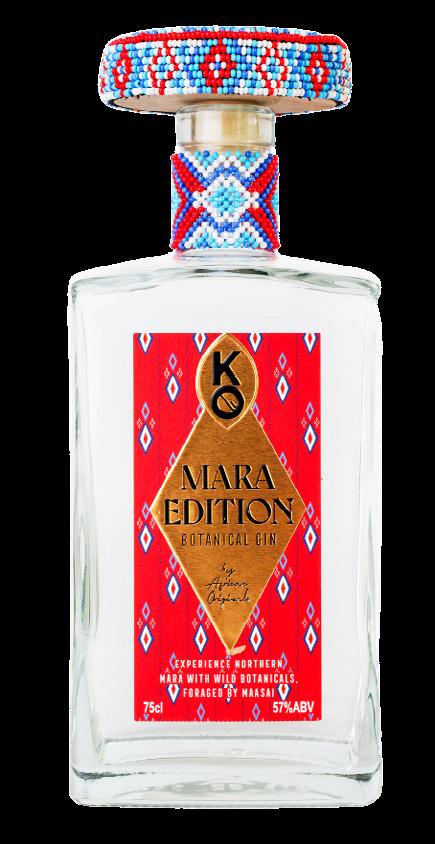

STARBUCKS
Salted Caramel Cream Cold Brew
Starbucks South Africa has introduced into the market the limited edition Salted Caramel Cold brew as it celebrates the arrival of the second half of the country’s summer season.
The super-smooth cold brew is sweetened with a touch of caramel and topped with a salted, rich cold foam.
www.starbucks.co.za
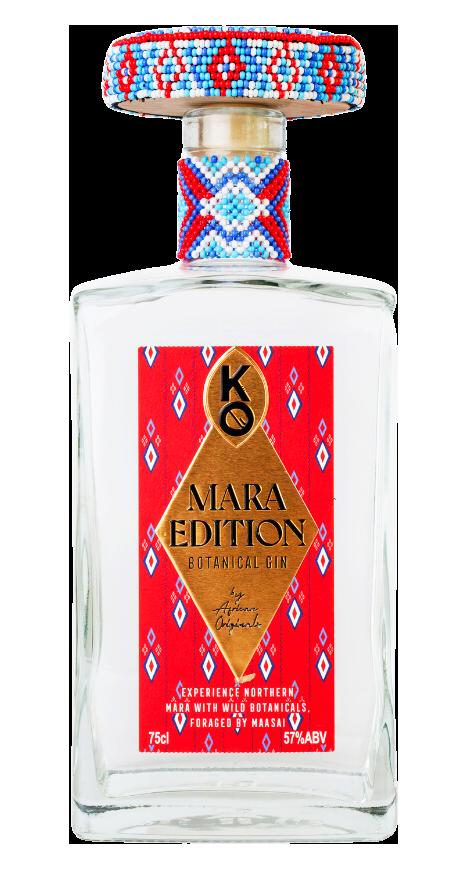
PREMIER NUT
Value-added macadamia products
Premier Nut, South Africa’s long standing macadamia producer, has unveiled a series of innovative value-added macadamia products: Sutton Pressed, MacaPaste, and Snackadamia.
www.premiernut.co.za




NEW FOOD PRODUCT INNOVATIONS
MAR/APR 2024 | FOOD BUSINESS AFRICA FOODBUSINESSAFRICA.COM 32
CROWN BEVERAGES
7UP soda
Crown Beverages Limited (CBL), Uganda’s oldest beverages company, and PepsiCo bottler, has officially launched the popular 7UP carbonated soft drink in the Ugandan beverage market.
7UP is now available in Uganda in 300ml and 500ml PET bottles.
pepsi-cola.co.ug
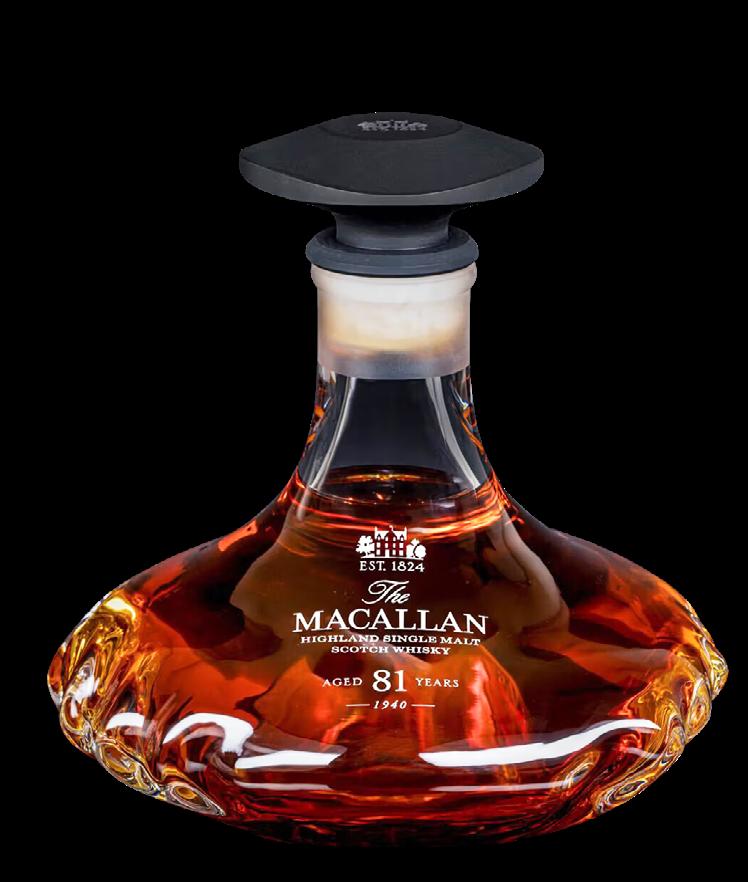

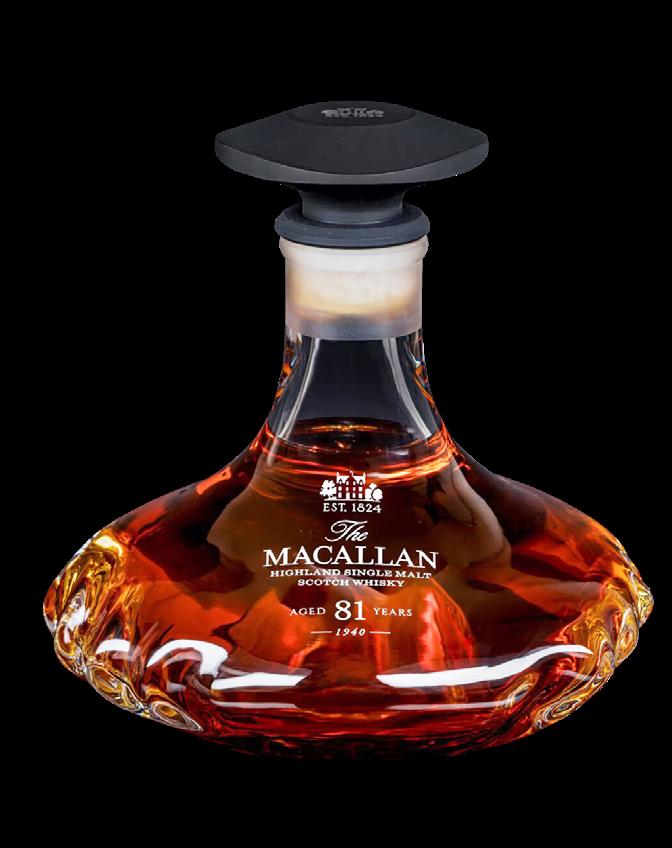
DELTA CORPORATION
Chibuku
Pineapple and Ginger
Delta Corporation has introduced two new flavors, pineapple and ginger, to its Chibuku Super beer brand under the sorghum segment, marking an expansion of its product offering.
The new Pineapple and Ginger flavours are now available for purchase in stores nationwide.
www.delta.co.zw

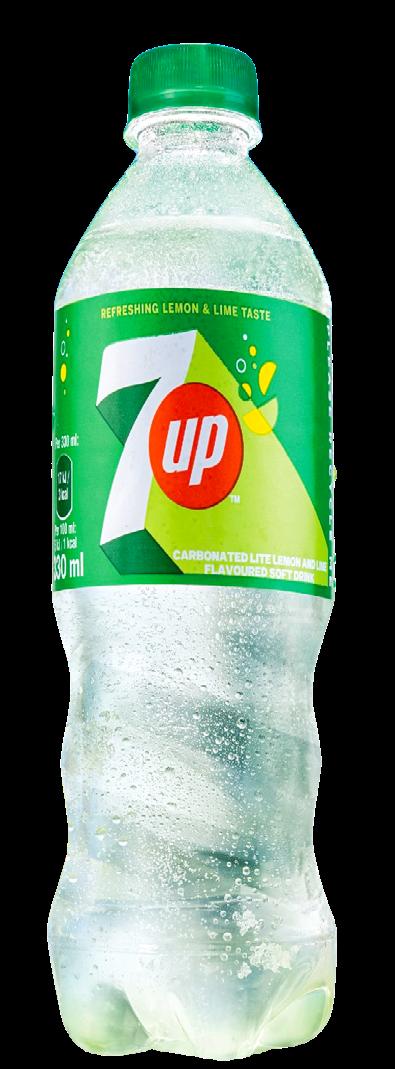



MACALLAN The Reach
The Macallan, a distinguished single malt Scotch whisky distillery, has introduced “The Reach,” an exceptional single malt whisky that pays homage to the brand’s rich legacy and enduring spirit over 200 years in Nigeria.
Aged for 81 years, The Reach is a rare single malt, making it the oldest whisky ever released by The Macallan.
www.themacallan.com
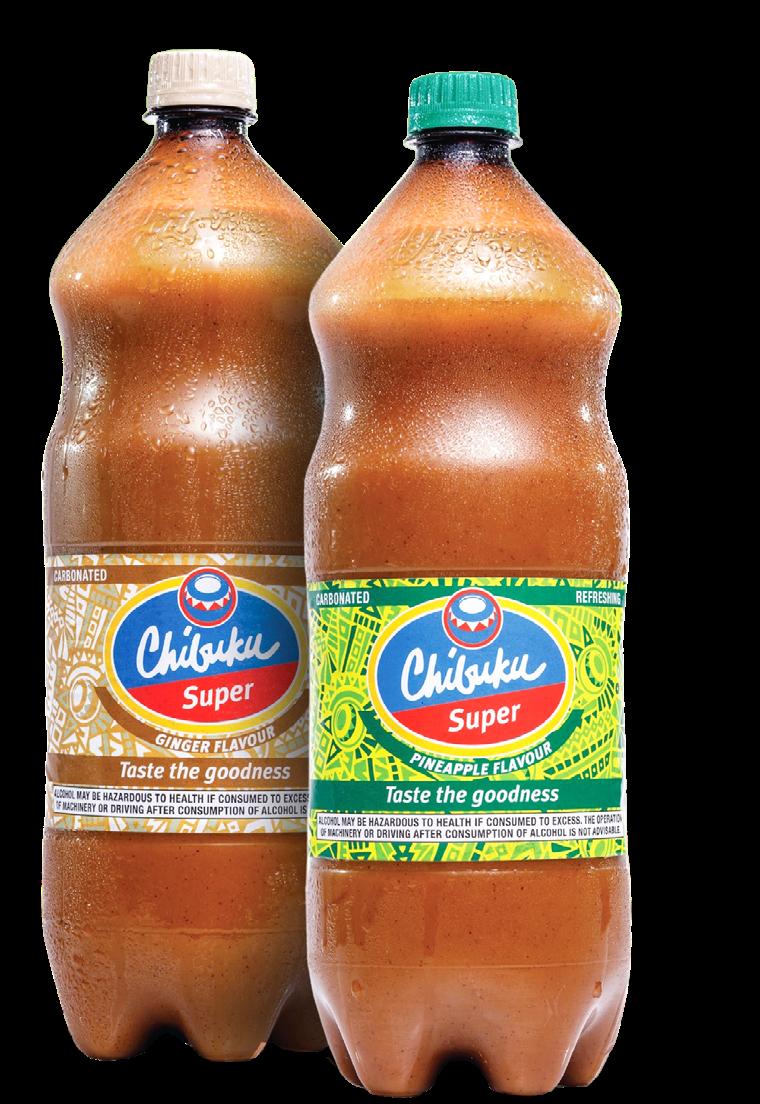

FOODBUSINESSAFRICA.COM MAR/APR 2024 | FOOD BUSINESS AFRICA 33
 SABS' Head office in Groenkloof, Pretoria
SABS' Head office in Groenkloof, Pretoria

NO GAVEL, Just Standards
South African Bureau of standards’ non-regulatory role unveiled
By Catherine Odhiambo
In the convoluted world of standardization, where regulations reign supreme and oversight is paramount, there exists a unique entity that defies convention. Unlike most of its counterparts in other nations, the South African Bureau of Standards (SABS) stands apart as a model of neutrality, devoid of regulatory authority. It is a curious anomaly in an arena where regulation and standardization often go hand in hand.
But what sets the SABS apart from its regulatory brethren? How does this distinctive approach shape its role in ensuring safety and quality standards in South Africa's food and agriculture sector? To unravel this enigma, let's embark on a journey into the heart of the SABS, guided by none other than Lungelo Ntobongwana, the Acting CEO of this remarkable organization. Join us as we explore the inner workings of the SABS and uncover the secrets behind its unconventional yet profoundly impactful approach to standardization.
THE GENESIS OF STANDARDIZATION
In the crucible of post-war reconstruction, amidst the clamor for progress and
innovation, the South African Bureau of Standards emerged as a vanguard of industrial transformation. Established in 1945 through the Standards Act, the SABS became a pillar in developing and introducing standards, aligned to global developments in standardization.
Amidst the backdrop of global alignment towards technical standards, the establishment of national standards bodies became common among nations seeking to fortify their industrial foundations. Cognizant of the imperative to chart its own path to progress, South Africa seized upon this momentum, laying the groundwork for forming the SABS.
"At its core, the SABS was founded on the principles of innovation, quality, and sustainability," remarks Lungelo Ntobongwana, Acting CEO of the SABS.
Indeed, the establishment of national standards was not merely a bureaucratic exercise but a strategic imperative aimed at fostering human, animal, and environmental sustainability. As the custodian of national standards, the SABS is responsible for developing guidelines that shape the contours of industry and trade, through
MAR/APR 2024 | FOOD BUSINESS AFRICA 35
standards development.
“Standards are not merely technical specifications; they are the bedrock upon which modern civilization is built,” reflects Ntobongwana.
“In a world profoundly reliant on product standards, the SABS played a pivotal role in shaping the economic landscape, ensuring the quality and safety of products that permeate our daily lives.”
MANDATE AND ROLE OF SABS
Mandated by the Standard Act No.8 of 2008, the SABS assumes a multifaceted role in standardization, charged with the development, promotion, and maintenance of South African national standards (SANS).
“At the heart of our mandate lies a commitment to excellence and innovation,” asserts the Acting CEO.
“As thebearer of national standards, we are tasked with fostering a culture of quality and safety, ensuring that South African products meet the highest international benchmarks.”
Indeed, the SABS's mandate transcends mere standardsetting, encompassing a myriad of activities aimed at fortifying the nation's industrial infrastructure. From providing training services to conducting conformity assessments and certification, the SABS serves as a linchpin of quality assurance in the South African economy.
“Our certification services, symbolized by the iconic SABS mark, serve as a badge of honor, signifying adherence to the highest standards of quality and safety,” remarks

Ntobongwana.
“Moreover, our inspection and verification services play a pivotal role in safeguarding consumer interests, ensuring that products meet the stringent requirements of national standards.”
SABS also plays a pivotal role in mitigating risks and

MY COMPANY PROFILE: SABS
MAR/APR 2024 | FOOD BUSINESS AFRICA FOODBUSINESSAFRICA.COM 36
On the left, CEO recognizing laboratory team for outstanding performance


OUR CERTIFICATION SERVICES, SYMBOLIZED BY THE ICONIC SABS MARK, SERVE AS A BADGE OF HONOR, SIGNIFYING ADHERENCE TO THE HIGHEST STANDARDS OF QUALITY AND SAFETY
safeguarding the integrity of the food industry. By collaborating with regulators and stakeholders, SABS identifies and addresses potential risks, ensuring the safety, quality, and compliance of food products.
Whether appointed as a certification authority or testing entity, the SABS remains steadfast in its commitment to promoting industrial excellence and consumer protection.
FROM CONCEPTION TO CULMINATION: THE STANDARDIZATION JOURNEY
But how do these standards come to be?
Central to the SABS's modus operandi is the consensusbased approach to standard development—a hallmark of its commitment to inclusivity and transparency. Through a rigorous process of public consultation and stakeholder engagement, the SABS endeavors to craft standards that reflect the collective wisdom of industry experts, policymakers, and consumers alike.
“Our Technical Committees serve as crucibles of innovation, bringing together a diverse array of stakeholders to shape the industry’s future,” explains Ntobongwana.
"From government agencies to industry experts, each stakeholder brings a unique perspective to the table, enriching the standard-setting process with invaluable insights and expertise.”
The journey of a SANS begins with the drafting process, where industry-specific nuances and best practices are distilled into a comprehensive framework. Draft standards undergo
rigorous scrutiny and are subjected to public inquiry, inviting feedback from stakeholders and the wider community.
“Transparency and inclusivity lie at the core of our standardization efforts,” asserts Ntobongwana. “By soliciting public input, we ensure that our standards reflect the collective wisdom and aspirations of society, fostering a sense of ownership and buy-in.”
A FEAST OF STANDARDS: ACCESSIBLE AND ADAPTABLE
Among the myriad standards promulgated by the SABS, these are the more recent examples:
1. SANS 22000: Food Safety Management Systems
This cornerstone standard lays the foundation for a robust food safety management system, applicable to organizations across the food chain. From feed producers to retailers, SANS 22000 delineates comprehensive requirements to ensure the integrity and safety of food products at every stage of production and distribution.
2. SANS 2235: Raw Pet Food Nutritional and Manufacturing Requirements
In an era marked by a burgeoning pet food industry, SANS 2235 emerges as a vital source of guidance for manufacturers. This standard outlines nutritional requirements and manufacturing protocols for raw pet food, ensuring the wellbeing of our beloved canine and feline companions.
3. SANS 587: Canned Fish, Canned Marine Molluscs, and Canned Crustaceans
SANS 587 serves as a bulwark against contamination and spoilage in the realm of canned seafood products. By stipulating stringent manufacturing, processing, and treatment protocols,
FOODBUSINESSAFRICA.COM MAR/APR 2024 | FOOD BUSINESS AFRICA 37
Lungelo Ntobongwana, Acting CEO, SABS
this standard safeguards the quality and integrity of canned marine delicacies, enriching culinary experiences across the nation.
4. SANS 1647: Approved Market Names for South African Fish and Seafood Species
In the bustling marketplace of seafood commerce, clarity and transparency are paramount. SANS 1647 provides a definitive guide to market names for South African fish and seafood species, ensuring consistency and accuracy in labeling practices, and empowering consumers to make informed choices.
5. SANS 3091: Chilled Finfish, Marine Molluscs, and Crustaceans
With the rise of chilled seafood consumption, SANS 3091 emerges as an essential standard for guaranteeing the quality and safety of products. This standard guarantees consumer trust in chilled fish products by defining strict guidelines for handling, processing, and storage, paving the way for culinary delight.
6. SANS 885: Processed Meat Products
From biltong to boerewors, processed meat products hold a cherished place in South African culinary traditions. SANS
QUALITY IS NOT JUST A METRIC; IT'S A WAY OF LIFE. THROUGH OUR STRINGENT TESTING AND CERTIFICATION PROCESSES, WE STRIVE TO ELEVATE INDUSTRY STANDARDS AND CULTIVATE A CULTURE OF EXCELLENCE THAT PERMEATES THE FOOD INDUSTRY

885 sets forth comprehensive guidelines for the handling, processing, and storage of these delectable treats, ensuring adherence to microbiological safety standards and preserving their flavor and quality.
THE SABS SEAL OF APPROVAL
When it comes to ensuring top-notch quality in the food

MAR/APR 2024 | FOOD BUSINESS AFRICA FOODBUSINESSAFRICA.COM 38 MY COMPANY PROFILE: SABS
Lungelo Ntobongwana, Acting CEO, SABS
Secretary General of ARSO, Hermogene Nsengimana gracing SABS' Luncheon

industry, the South African Bureau of Standards stands as a guiding light. The coveted SABS Approved Mark of Approval is more than just a symbol – it's a stamp of excellence that resonates with consumers and businesses alike. With its rigorous testing and certification process, SABS ensures that products bearing its mark meet stringent quality criteria, providing consumers with peace of mind and confidence in their purchases.
However, SABS's influence extends beyond consumer confidence. Regulators and manufacturers frequently request the expertise of SABS to conduct testing, inspections, and studies on various products and facilities. This acknowledgment underscores SABS's reputation as a trusted authority in ensuring safety and quality standards are met across the board.
“Quality is not just a metric; it's a way of life. Through our stringent testing and certification processes, we strive to elevate industry standards and cultivate a culture of excellence that permeates the food industry value chain,” asserts Ntobongwana.
Moreover, SABS doesn't just rest on its laurels. Through strategic marketing and engagement initiatives, the organization actively promotes its services to businesses, ensuring that the industry is well-informed about the benefits of seeking SABS certification.
EMPOWERING THROUGH CERTIFICATION
While SABS may not wield regulatory authority, its impact
on ensuring food safety and quality standards is indisputable. Through its voluntary conformity assessment and certification services, SABS empowers organizations across the food supply chain to uphold the highest standards of safety and quality.
At the center of SABS's efforts lies the certification of organizations under SANS 22000 Food safety management systems. By obtaining this certification, organizations, including farmers, manufacturers, and retailers, demonstrate their commitment to maintaining rigorous food safety protocols. This certification not only enhances consumer trust but also elevates the reputation of businesses within the industry.
SABS's accreditation by the South African National Accreditation System (SANAS) locally and internationally by Raad Voor Accreditatie (RvA) and FSSC further solidifies its position as a credible authority in food safety certification. This accreditation accentuates SABS's adherence to internationally recognized standards, assuring stakeholders both domestically and globally.
Moreover, SABS's status as an authorized body for testing and certification ensures that organizations meet the quality criteria outlined in national standards (SANS). With meticulous attention to detail, SABS delivers on these requirements, offering a stamp of approval that signifies adherence to stringent quality and safety standards.
It's essential to note that SABS's commitment to excellence extends beyond its clients to its own operations. The organization obtains certification and authorization to
FOODBUSINESSAFRICA.COM MAR/APR 2024 | FOOD BUSINESS AFRICA 39
SABS and ZABS signing a Memorandum of Understanding (MoU).
perform testing and certification services, ensuring that its processes meet the same rigorous standards it upholds for others.
FORGING PARTNERSHIPS
The South African Bureau of Standards recognizes that collaboration is key to driving innovation and ensuring the relevance of standards. As such, it actively engages with various organizations to enhance practices and standards in the food industry.
Internationally, SABS collaborates with renowned organizations such as the International Organization for Standardization (ISO), which sets global standards for various industries. Serving as a founding member of ISO, SABS has earned global recognition as a highly esteemed contributor to international standardization, establishing itself as the foremost standardization authority in Africa. Here, the Bureau represents South Africa on prestigious platforms such as ISO/TC 34, Food products. This ISO technical committee plays a crucial role in developing standards that govern food production, ensuring safety, quality, and fairness
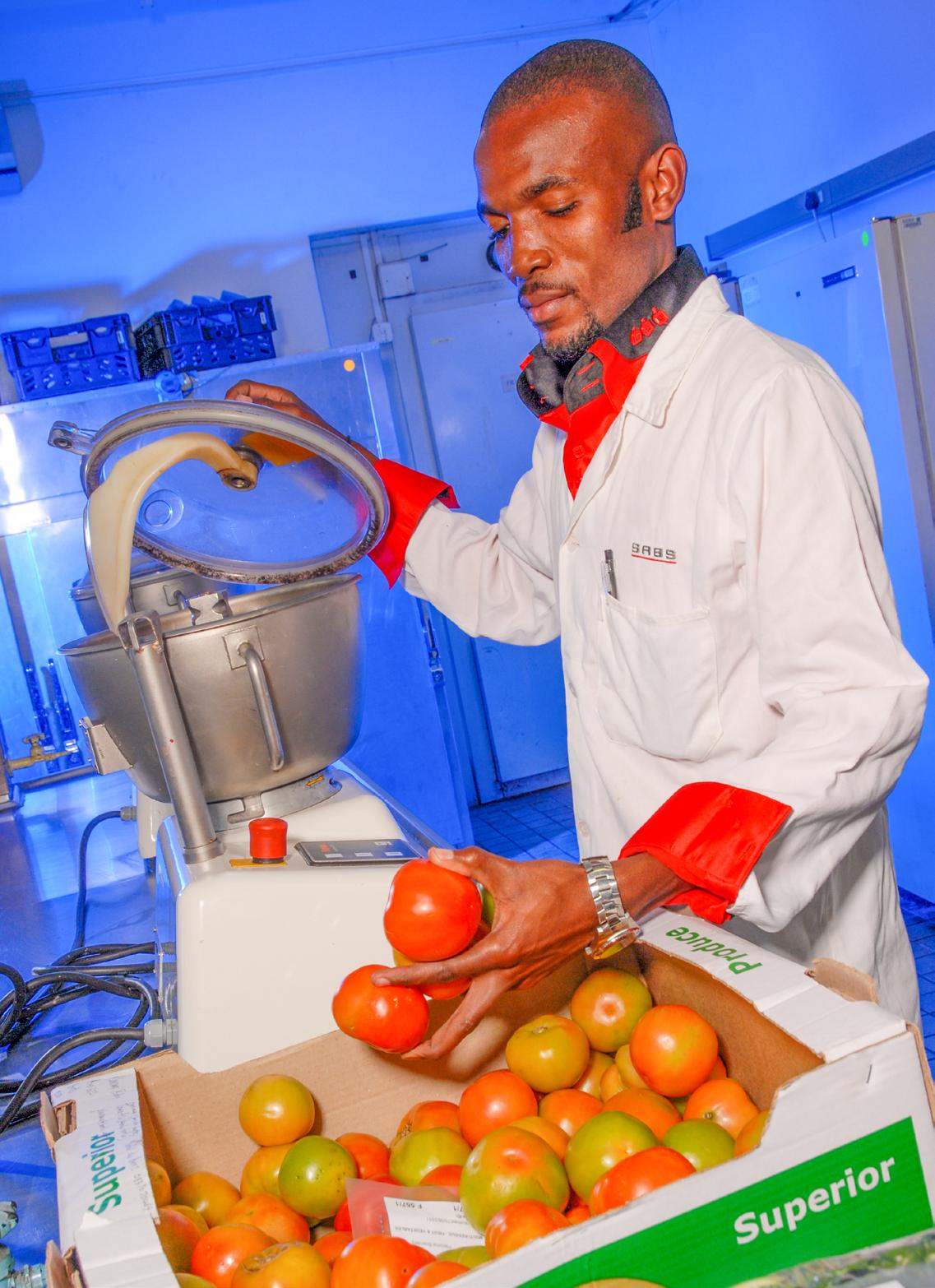
in international food trade.
Within the Southern African region, SABS is a member of the African Organization for Standardisation (ARSO) and the Southern African Development Community Cooperation in Standardization (SADCSTAN), promoting harmonized standards and cooperation among member states. SABS also collaborates with governmental agencies, industries, and research institutions.
These collaborations allow SABS to stay updated on emerging trends and best practices while contributing to the development of standards that ensure quality, safety, and interoperability across various industries.
NAVIGATING CHALLENGES
While SABS remains steadfast in its mission to promote and maintain national standards, it is not immune to challenges inherent in the standardization landscape. One such challenge arises from the voluntary nature of South African National Standards (SANS). Although some SANS may be referenced in legislation, enforcement of compliance often falls to regulators rather than SABS itself. This reliance on voluntary compliance poses a dilemma, as SANS lack the binding force of law, making adherence a matter of choice rather than obligation.
Consequently, ensuring widespread adoption and adherence to standards becomes a delicate balancing act, requiring finesse and strategic engagement with stakeholders.
Additionally, the voluntary nature of standards necessitates a robust framework for self-regulation within industries. While standards provide a blueprint for best practices, their effectiveness hinges on active participation and buy-in from industry players. Encouraging consistent engagement in technical committees presents a significant hurdle for SABS. However, through persistent stakeholder engagements and advocacy efforts, SABS endeavors to demonstrate the intrinsic value of standards and cultivate a culture of voluntary compliance.
Despite these challenges, SABS remains undeterred in its commitment to upholding standards and driving excellence in the South African food industry.
NOTABLE TRIUMPHS
At the forefront of SABS's achievements lies its steadfast engagement with industry dynamics and emerging trends. Through its mirror technical committee of ISO/TC 34, Food products, SABS remains attuned to evolving industry landscapes, proactively developing and updating standards to align with new requirements and advancements. In staying ahead of the curve, SABS empowers the South African food sector to adapt, innovate, and thrive in an ever-changing
FOODBUSINESSAFRICA.COM
MY COMPANY PROFILE: SABS FOODBUSINESSAFRICA.COM MAR/APR 2024 | FOOD BUSINESS AFRICA 40
global marketplace.
SABS is currently able to certify companies under the food management safety standard (ISO 22000). This certification not only signifies adherence to rigorous food safety protocols but also unlocks access to global value chains, positioning South African companies on the international stage. Through enabling market access and fostering competitiveness, SABS empowers local enterprises to seize opportunities and expand their reach beyond borders.
EMBRACING CHANGE: AMENDED STANDARDS ON THE HORIZON
To keep pace with evolving trends and emerging challenges, SABS is spearheading a series of initiatives aimed at further improving standards in the industry.
"Changes in the sector occur frequently. To demonstrate these changes, we are currently in the process of amending several standards," says Ntobongwana.
Among these standards is SANS 788, addressing frozen shrimps, langoustines, and crabs, detailing handling, processing, and storage requirements. Additionally, SANS 585 specifies requirements for frozen fish, marine mollusks, and their derivatives. Finally, SANS 587 focuses on canned fish, marine mollusks, and crustaceans, ensuring quality and safety in production processes.
“In addition to amending existing standards, we are also revising others to ensure they remain relevant and effective,” notes Ntobongwana.
This includes standards such as SANS 10330 and SANS 10156, which focus on food safety management and the handling of chilled and frozen foods respectively.
ILLUMINATING PATHS: SABS'S OUTREACH INITIATIVES
In its mission to foster a culture of excellence and adherence to standards, SABS orchestrates several outreach programs and campaigns, illuminating the path toward greater awareness and compliance.
As a steadfast partner of various government entities, SABS collaborates closely with its shareholder, the Department of Trade, Industry and Competition (the dtic), to spearhead outreach and engagement programs across communities.
Through dynamic community engagement initiatives, SABS empowers citizens with the knowledge and understanding of standards' critical role in safeguarding quality and safety. Whether through workshops, seminars, or interactive sessions, SABS fosters dialogue and exchange, nurturing a culture of compliance and accountability.
In today's digital age, SABS also harnesses the power of social media to amplify its outreach efforts. The Bureau engages with a diverse audience, sparking conversations
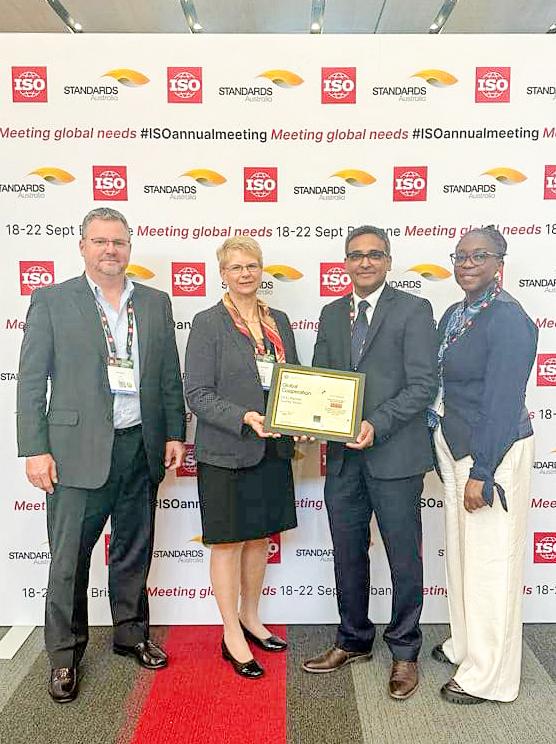
and raising awareness in the digital sphere by updating its social media pages with the latest initiatives, campaigns, and standards-related information.
Likewise, through its website, SABS provides a comprehensive repository of standards, enabling citizens to stay informed and actively participate in the standardization process. Additionally, notifications of changes in standards are published in the national government gazette, ensuring transparency and accountability in the standardization landscape.
EMPOWERING BUSINESSES, ENSURING TRUST
For businesses aspiring to distinguish themselves in the marketplace, the Acting CEO has some nuggets of wisdom to share.
"Getting certified to applicable SANS is the most effective way to demonstrate the implementation and adherence to standards and quality controls. Consumers and retailers are more inclined to do business with companies that meet quality standards," he affirms.
Through partnerships and engagements with SABS, businesses gain access to a wealth of resources, from testing and verification services to nutritional analysis and certification of refrigeration units. By leveraging these resources, businesses can enhance their credibility, expand into new markets, and stay ahead of the competition in an increasingly globalized economy.
“As food products traverse national boundaries, standards provide a common language, fostering trust and confidence among consumers and stakeholders alike.”
FOODBUSINESSAFRICA.COM MAR/APR 2024 | FOOD BUSINESS AFRICA 41
FOODBUSINESSAFRICA.COM JAN/FEB 2024 | FOOD BUSINESS AFRICA
SABS, ASTM International celebrating 25 years of collaboration.

Insights from GEREMEW TASSEW, COUNTRY PROGRAM MANAGER OF Alliance for Inclusive and Nutritious Food Processing - AINFP
By Catherine Odhiambo
With a diverse educational background in Food Science and Nutrition, how has your academic foundation influenced your approach to food safety and quality in your professional journey?
Studying food science at university highlighted the critical link between food safety, nutrition, and life sustainability. It instilled in me a passion for investigating food throughout the value chain, from production to consumption. This foundational knowledge drives my commitment to advancing food safety and combating nutrition insecurity.
Can you share a pivotal moment from your early career that significantly shaped your perspective on food safety and quality management?
Being appointed as a Junior Regulatory Food Safety and Quality standard-setting Expert provided me with valuable opportunities to delve into the health hazards associated with food production, processing, preparation, and consumption. This role allowed me to extensively research various food processing sectors, technologies, and food safety regulations across different countries. Additionally, pursuing an MSC in Food Science and Nutrition at Addis Ababa University further deepened my understanding of local, national, and global food safety and quality concerns.
My decision to investigate aflatoxin contamination in ground pit storage sorghum in my birth village marked a significant turning point in my career, emphasizing the practical application of my knowledge to address real-world food safety challenges.
With over 14 years of experience in the food and health sectors, could you highlight a specific project or initiative that you are particularly proud of in terms
of enhancing food safety standards and practices?
One of the projects I am particularly proud of is my involvement in the Ethiopian Food regulation and standardsetting practices. I played a key role in developing regulatory guidelines, chairing food standards committees, and contributing to the development of the Food and Drug Authority proclamation, particularly the food safety section.
I also helped in crafting a 10-year food safety regulation plan that has been instrumental in strengthening food safety standards in Ethiopia. Additionally, I spearheaded the transition from manual to electronic food inspection systems, enhancing efficiency and accountability in food safety regulations.
As a leader in food safety inspection and regulation, what are some challenges you've faced, and how did you overcome them to ensure the safety of food products in Ethiopia?
One of the significant challenges I encountered in Ethiopian food safety regulation was addressing food adulteration in products such as honey, injera, and butter. Overcoming this challenge required raising awareness among stakeholders, including food processors, regulatory bodies, academia, and consumers, about the economic and health consequences of food adulteration.
Additionally, tackling the growth of the informal sector and ensuring compliance with good manufacturing practices posed challenges. To address these issues, I implemented structured risk-based food safety and quality capacitybuilding training programs for food regulators at various levels and developed industry-specific guidelines to promote compliance with food safety standards.
Could you elaborate on your role as a Senior Food Processing Specialist at AINFP? What strategies have
FOODBUSINESSAFRICA.COM MAR/APR 2024 | FOOD BUSINESS AFRICA 43 EXECUTIVE INTERVIEW: GEREMEW TASSEW
you implemented to ensure inclusive and nutritious food processing practices?

As a Senior Food Processing Specialist at AINFP, I have implemented strategies to promote inclusive and nutritious food processing practices. This includes providing tailored technical support to SME food processors, developing standardized training programs, and fostering collaborations with industry stakeholders to address specific needs and challenges.
In your previous roles at the Ethiopian Food and Drug Authority and the Ethiopian Public Health Institute, you had various responsibilities related to food safety policy development and standard-setting. How do you balance the need for innovation in the food industry with the importance of adhering to established safety standards?
Balancing innovation in the food industry with established safety standards requires a nuanced approach that prioritizes public health and consumer safety. While fostering innovation
AS A SENIOR FOOD PROCESSING SPECIALIST AT AINFP, I HAVE IMPLEMENTED STRATEGIES TO PROMOTE INCLUSIVE AND NUTRITIOUS FOOD PROCESSING PRACTICES.
Geremew
Tassew, Country Program Manager of Alliance for Inclusive and Nutritious Food Processing
and embracing technological advancements, it is essential to ensure that these innovations do not compromise food safety standards. This involves actively engaging with stakeholders, including government agencies, industry players, and academia, to develop policies and regulations that encourage innovation while safeguarding public health.
By promoting a culture of continuous improvement and compliance with international standards, we can foster innovation in the food industry while upholding the highest standards of food safety and quality.
You have been extensively involved in food safety policy development and regulatory activities. Can you share a specific instance where you successfully advocated for a new policy or regulation that significantly improved food safety standards in Ethiopia?
Advocating for new policies or regulations that improve food safety standards in Ethiopia has been a rewarding experience. I successfully championed the establishment of aflatoxin limits in various food products including peanut butter, wheat flour, and maize flour. I also played a pivotal role in restricting water addition to milk to prevent adulteration, contributing to safer food practices nationwide.
MAR/APR 2024 | FOOD BUSINESS AFRICA FOODBUSINESSAFRICA.COM 44
EXECUTIVE INTERVIEW: GEREMEW TASSEW

During your tenure as the Food Safety Inspection Team Leader, you played a key role in developing food safety regulations and standards. Can you share an achievement from that period that had a significant positive impact on the food industry in Ethiopia?
One of the notable achievements during my tenure as the Food Safety Inspection Team Leader was the implementation of comprehensive food safety training programs for over 2000 food inspectors. These training programs focused on riskbased food safety practices, good manufacturing practices, and regulatory compliance.
Additionally, the introduction of the Food Inspection Electronic application system revolutionized food safety inspections by streamlining processes and enhancing efficiency.
Monitoring and assessing the impact of food safety initiatives are crucial. How do you measure the effectiveness of the programs you are involved in, and what metrics do you consider to determine their success?
To assess the effectiveness of food safety initiatives, we employ various metrics, including market surveillance, consumer feedback, and industry compliance rates. We also track industry compliance rates and conduct periodic audits to
ensure adherence to food safety standards and regulations. By continuously evaluating the outcomes of our initiatives, we strive to identify areas for improvement and refine our strategies to achieve long-term success in enhancing food safety standards.
In your vision for Ethiopia, you emphasize inclusive digital transformation for food and nutrition. Could you elaborate on how technology and innovation can play a role in enhancing food safety and quality, especially for small and medium-sized enterprises (SMEs) in the food industry?
I believe technology and innovation are integral to enhancing food safety and quality, particularly for SMEs in the food industry. By leveraging digital solutions, such as data management platforms and quality assessment tools, SMEs can streamline operations, improve compliance with food safety standards, and enhance consumer confidence in their products.
Considering the potential risks associated with data and technology, how do you ensure that digital innovations in the food sector are secure and compliant with food safety standards?
FOODBUSINESSAFRICA.COM MAR/APR 2024 | FOOD BUSINESS AFRICA 45
EMERGING
CHALLENGES IN FOOD SAFETY AND QUALITY INCLUDE TECHNOLOGICAL ADVANCEMENTS SUCH AS GENETICALLY MODIFIED FOODS, INFORMAL MARKET CONCERNS, CLIMATE CHANGE, AND ENVIRONMENTAL HAZARDS.
What do you foresee as the emerging challenges in the field of food safety and quality, particularly in Ethiopia and Africa at large, and how do you propose addressing them?
Emerging challenges in food safety and quality include technological advancements such as Genetically Modified Foods, informal market concerns, climate change, and environmental hazards. To address these challenges, policymakers must prioritize research and innovation, strengthen regulatory enforcement, and promote sustainable agricultural practices.
In addition, enhancing collaboration between government agencies, NGOs, and private enterprises is essential for creating a holistic approach to food safety and nutrition.
For aspiring professionals in the food safety and quality space, what advice would you offer to help them navigate the complexities of this field and make a meaningful impact?
Ensuring the security and compliance of digital innovations in the food sector requires robust regulatory frameworks and industry standards. We can develop guidelines and protocols to safeguard data integrity and protect against cybersecurity threats by working closely with government agencies, industry associations, and technology providers.
Moreover, conducting regular audits and assessments of digital systems can help identify vulnerabilities and mitigate risks proactively.
I would advise aspiring professionals to embrace lifelong learning and stay updated on the latest developments in food safety and quality. Networking with peers, attending professional conferences, and seeking mentorship opportunities can provide valuable insights and support in navigating the complexities of this field.
Cultivating a passion for public health and a commitment to safeguarding consumer interests will also drive a meaningful impact in promoting food safety and quality.
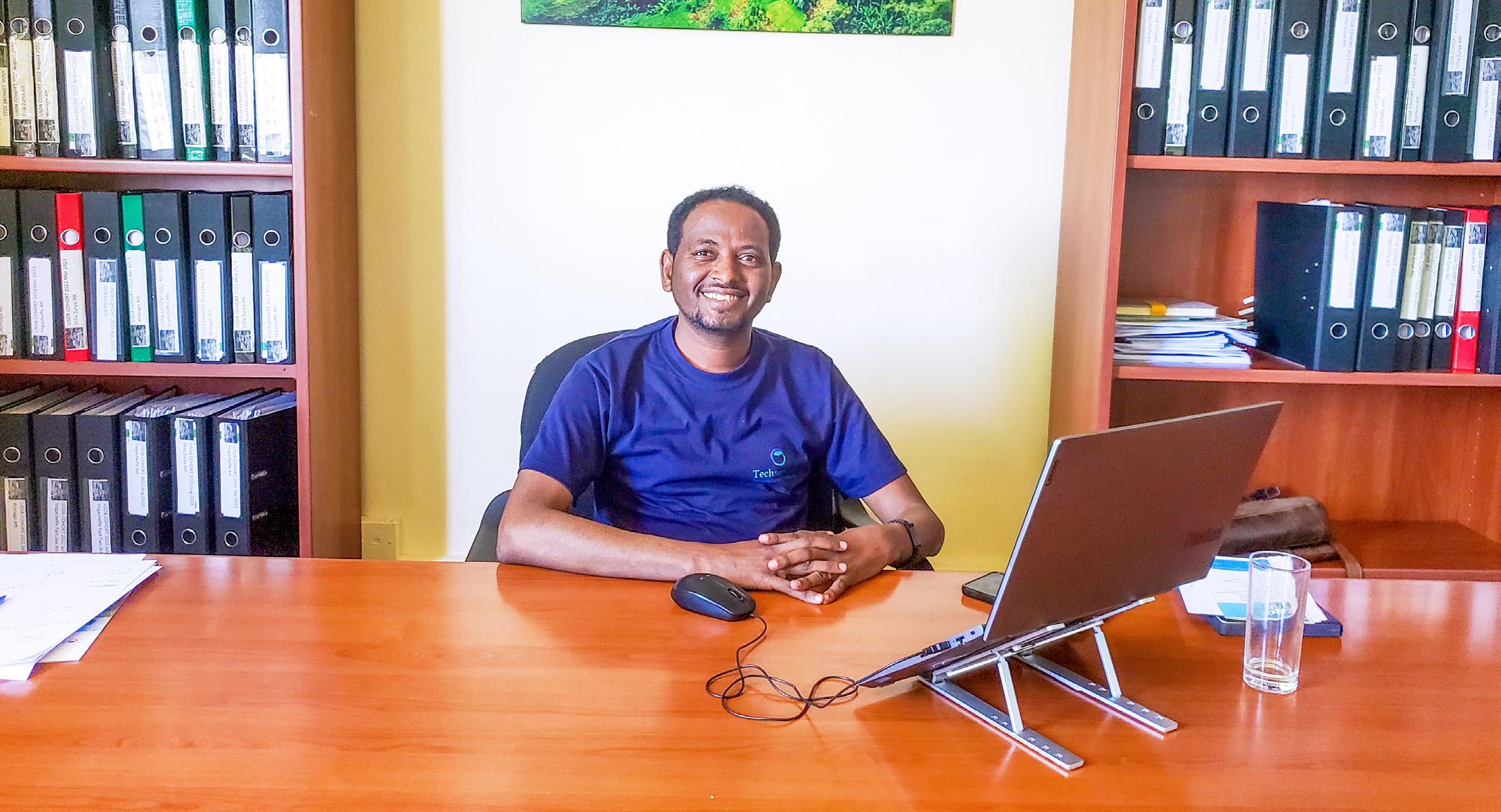
MAR/APR 2024 | FOOD BUSINESS AFRICA FOODBUSINESSAFRICA.COM 46
EXECUTIVE INTERVIEW: GEREMEW TASSEW
Geremew Tassew, Country Program Manager of Alliance for Inclusive and Nutritious Food Processing
Beverage TECH
TRENDS IN FORMULATING, PROCESSING, PACKAGING & CONSUMPTION OF BEVERAGE PRODUCTS

Cider: the next big opportunity for beverages growth
in Africa
By Francis Watari
Cider’s popularity in Africa has steadily grown since Distell, a South African multinational brewing and beverage company now part of Heineken, introduced Savannah Cider in South Africa back in 1996. Produced from crushed apples grown in the Elgin Valley of the fertile Western Cape, Savannah Dry captured the attention of many consumers with its clear,
refreshing and dry taste. 28 years after it was launched, the cider with an alcohol level of 6% ABV has continued to enjoy a huge consumer following and is today the world’s third-largest cider brand.
Outside South Africa, cider is still a relatively new player in the African alcoholic beverage market. Its popularity has however started to gain traction driven by a shift in consumer
FOODBUSINESSAFRICA.COM MAR/APR 2024 | FOOD BUSINESS AFRICA 47
SOUTH AFRICA HAS A LONG HISTORY OF CIDER PRODUCTION AND CONSUMPTION, INCLUDING POPULAR BRANDS SUCH AS SAVANNA AND HUNTERS.
preferences towards lighter and fruit-based alcoholic beverages, a growing young population with a penchant for experimentation, and an increasing number of international brands entering the market. We look at the trends, innovations, players, and challenges facing the cider industry in Africa.
PRODUCTION IN AFRICA
South Africa is undoubtedly the bastion of cider consumption in Africa. The country has a long history of cider production and consumption, with popular brands such as Savanna and Hunters originating from South Africa.

One of the reason why Cider is more established in the region more than anywhere else is its early adoption of the drink which can be traced back to 1988 when Distell (now part of Dutch multinational alcoholic beverage company Heineken) introduced its first cider drink under the Hunters Gold brand. A few years later, Distell introduced Savannah whose success even eclipsed that of its older sibling Hunters.
The country also benefits from a large apple-growing region in the Western Cape, allowing for the production of high-quality apple-based ciders. According to data from the World Apple and Pear Association South Africa, is the largest apple producer in the Southern Hemisphere and is expected to maintain its lead as the largest producer in 2024 with production forecast of 1.4 million tonnes.
South Africa has also seen the rise of craft cider producers, offering a variety of innovative flavors and styles. A good example is Western-Cape based craft cidery producer Loxtonia which producers a variety of premium ciders from apples directly harvested from its extensive farm. Using different flavours and production styles, the cidery has a diverse range of ciders including stone fruit flavoured cider, blush apple cider, African sundowner apple cider,and sparkling apple cider. The other is Johannesburg-based Tolokazi Craft Beer and Cidery known for its Rooibos & berry and marula Ciders.
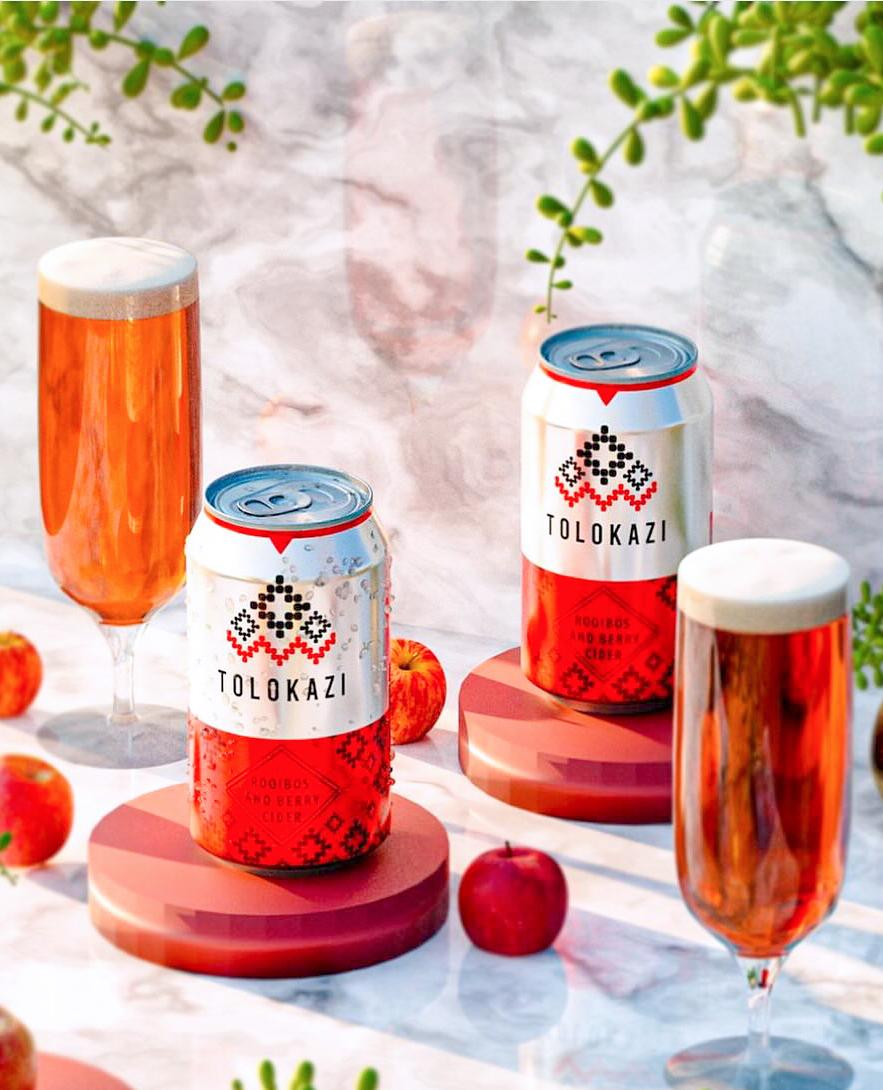
MAR/APR 2024 | FOOD BUSINESS AFRICA FOODBUSINESSAFRICA.COM 48
BEVERAGE TECH AFRICA: CIDER IN AFRICA

Windermare, Terra Madre, Everson’s, Skollie, and Cluver & Jack are other notable ones. The five cideries from the Western Cape have come together to form the South African Craft Cider Guild. Accoridng to their website, the companies have come together “to grow awareness of craft cider in South Africa and to protect the integrity of the term “craft cider” for true producers.” They stress that their definition is simple; “cider fermented only from fresh pressed apples.”
Festivities have also played a major role in promoting cider consumption in South Africa. The Cape Town Cider Festival (South Africa) is an annual festival in Cape Town showcases a variety of local and international ciders. It features tastings, cider pairings, live music, and entertainment, offering attendees an opportunity to explore different cider brands and flavors. Stellenbosch Craft Cider Festival (South Africa) is held in the Stellenbosch wine region of South Africa, this festival focuses on craft ciders. It brings together local cider producers and enthusiasts for a day of cider tastings, food pairings, live music, and entertainment. These festivals create more avenues for driving consumption, creating awareness and introducing new consumers to the drink which help drive longterm demand. According to
IWSR, South Africa has also witnessed strong consumption gains in nightclubs and post-work drinking occasions. “After strong double-digit growth in 2022, the country is expected to record a 2022-27 volume CAGR of +3%,” IWSR notes in its report.
AFRICA GROWTH PICKS UP PACE
The rest of the continent is playing catch up to South Africa when it comes to cider consumption. Growth is however happening at a rapid paced fueled in part by emerging markets that are increasingly embracing this versatile beverage. “Demand for cider has steadily increased over the past two years as consumers are displaying a growing affinity for what they perceive as a more unisex and refreshing alternative to beer,” explains Russell Menezes, Research Director –Middle East & Africa at IWSR
According to IWSR, cider in Africa recorded a 22% increase between 2014 and 2018. Growth however accelerated in the following years. According to the drink market analysis firm, cider volumes grew over 50% in Africa in 2021, highlighting the rapid pace in which consumers in the region are embracing the drink.
South Africa is a critical driver of this growth but other nations such as Kenya and Nigeria are

FOODBUSINESSAFRICA.COM MAR/APR 2024 | FOOD BUSINESS AFRICA 49
ABOVE: Stellenbosch Craft Cider Festival
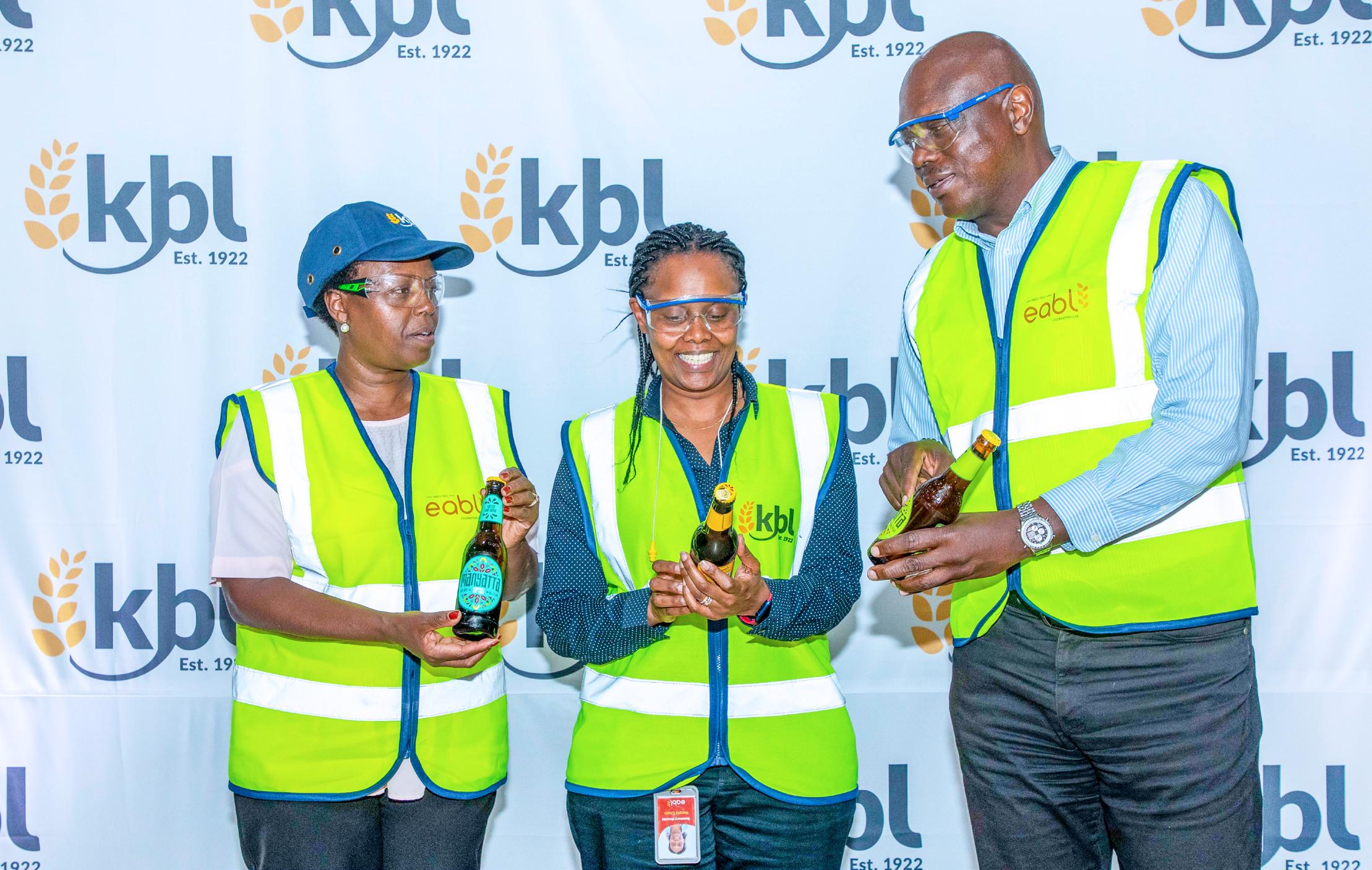
quickly joining the list of top drivers of cider consumption in Africa. In 2018, Kenyans consumed an estimated 9 million liters of ciders, causing an 8.5% and 8.1% decline in the beers and mixed drinks segment respectively according to Euromonitor. Other promising cider markets include Zambia, where a 2019 excise duty cut boosted consumption, as well as Mozambique.
Nigeria, Africa’s most populous country, also offers exciting opportunities for Cider. The cider market in the West African nation was valued at US$667 million in 2018 and is estimated to grow at a healthy CAGR of 7.5% throughout the forecast period 2019-2025, according to Arc research. In Ghana, there has been a surge in the production and consumption of locally made Cider and Perry, as consumers embrace products that reflect their cultural heritage.
INVESTORS RUSH TO TAP ON GROWING DEMAND
As growth in traditional cider markets such as UK and Ireland appear to have reached their peak in the mid-term, achieving growth is likely to become difficult. Africa with its growing appetite for cider has become a hotbed of investor activity.
KEY NUMBERS
KENYA BREWERIES' MARKET SHARE PERCENTAGE 79%
Perhaps the most notable one was the 2021 acquisition of Distell, Africa’s largest cider producer controlling over
90% of South Africa’s cider market, by Heineken. Heineken said that the deal completed in 2023 adds more than €1bn (US$1.1bn) in net revenue and €150m (US$165m) operating profit to Heineken’s African footprint. IWSR in a report noted that this deal is helping the Dutch multinational brewer to realise its aspiration to build its cider volumes out of its core UK market with its own cider brand Strongbow brand outperforming expectations and winning an audience in South Africa in 2022. “Heineken’s focus on cider will be rewarded with a surge in cider sales of 20%, albeit from a low base,” the report added.
In Kenya where the cider revolution is quickly gathering pace, African Originals, one of the market pioneers has gained the attention of major global players. In February this year, Mauritius-based Phoenix Beverages Ltd (PBL), a subsidiary of IBL Ltd, received
MAR/APR 2024 | FOOD BUSINESS AFRICA FOODBUSINESSAFRICA.COM 50
BEVERAGE TECH AFRICA: CIDER IN AFRICA
regulatory approval to acquire a minority stake in African Originals.
African Original’s consistent growth in market share from below 0.003 in 2019 when it was first launched to 1.5% in 2023 has prompted response from Kenya Breweries, the market leader with over 79% market share through its Tusker cider brand. In 2023, EABL commissioned a KES 1.2 billion (US$9.13 million) microbrewery to strengthen its presence in the market. The Diageo-majority owned company subsequently introduced its own Manyatta Cider to compete with African Originals KO cider brand.
Joining the fray to control Kenya’s thriving cider market is Kenya Wines Agencies Limited (KWAL), now part of Heineken Beverages, following the acquisition of its parent company Distell. In 2019 , Kwal in started brewing its Hunters brand of cider at its Industrial Area brewery in Nairobi to tap into the fast-growing market. The company which controls 12 percent of the cider market announced in 2022 that it was investing in KES 4 billion state of the art integrated facility that will enable it increase production of its hunters cider as well as well as start local production of Savannah Dry, Africa’s most popular cider brand which has a 7% market share in Kenya.
TRENDS IMPACTING CIDER IN AFRICA
As health and wellness trends continue to gain momentum globally, the Middle East and Africa cider market are also witnessing a growing demand for healthier and organic cider options. Manufacturers are responding by introducing organic, gluten-free, and low-sugar cider alternatives to cater


FOODBUSINESSAFRICA.COM MAR/APR 2024 | FOOD BUSINESS AFRICA 51
to health-conscious consumers.
Low and no-alcohol drinks have become popular as more consumers become conscious of their health. Data from CGA shows that although the no and low-alcohol cider category is a small segment of the drinks market, it has been growing as more consumers seek healthier beverage alternatives. South Africa’s Loxtonia is one of the players catering to this demand with its non-alcoholic variant to its stone flavoured and easy apple ciders.

New flavours continue to provide interest in the category as well. Kenyan Originals has been leading in this area with the company having an extensive portfolio of fruit ciders which includes mango & ginger, pineapple & mint, and passion fruit & lime, among others. Playing catchup, Kenya Breweries also offers its recently launched Manyatta Cider in various variants including Manyatta Lemon and Ginger, Manyatta Mango and Ginger, and Mayatta Pineapple Mint. Even Savanna with its popularity is not being left behind. The brand recently
unveiled Savanna Jean, a ready-to-drink, crisp Juniper flavoured cider “that requires no fuss but a lemon in the neck.”
THREATS TO GROWTH OF CIDER
One of the key obstacles is the region's dominant cultural norms and religious beliefs, which may limit the consumption of alcoholic beverages, including cider, in some areas. This is especially true in Muslim majority nations such as Algeria, Egypt, Morocco, Sudan, and Libya. Nothern Nigerian states such as Kano have also implemented strict Sharia laws which completely ban consumption in their territories.
Moreover, the prevalence of strict regulatory frameworks and high taxation on alcoholic products can also impact the market's growth potential. A good example is Kenya where Beer, for instance, currently attracts excise at the rate of Sh142.44 per litre, having gone up from Sh110.62 in the fiscal year to June 2020. The high taxes have impacted market growth with data from KRA revealing that consumption of cider and other products falling in the tax bracket had reduced by 0.5% in 2022 as a result of the tax hike.
In addition, businesses involved in the production, distribution, and sale of cider in many African countries are required to obtain licenses and permits from the appropriate government authorities. These licenses often come with specific conditions and requirements, such as age restrictions, labelling standards, and health and safety regulations. They can also be costly. For instance, in Kenya license fees for importing up to 1 million liters of alcohol varies between KES250,000 (US$1,893) and KES 1 million (US$7575).
Additionally, cider production is heavily reliant on apple fruits as the major raw material. However, many parts of Africa lack temperate climatic conditions required for the successful growth of these ciders. For example, as per Volza’s Kenya Import data, Cider import shipments in Kenya stood at 1300 tonnes in 2023, imported by 92 Kenya Importers from 106 Suppliers. Kenya imports most of its Cider from South Africa, Italy, and the Netherlands. This increases reliance on imports, increasing the cost of production of these ciders. This also limits local production, populating the market with imported ciders which are expensive due to the cost of import tariffs and transportation expenses.
LAST WORD
MEA cider market is experiencing remarkable growth, driven by changing consumer preferences, the introduction of new flavors, and the establishment of dedicated cider serving establishments. As the market continues to evolve, cider manufacturers and distributors must navigate the region's cultural, religious, and regulatory landscape to tap into the vast potential this market offers.
MAR/APR 2024 | FOOD BUSINESS AFRICA FOODBUSINESSAFRICA.COM 52
BEVERAGE TECH AFRICA: CIDER IN AFRICA
FOOD INGREDIENTS
NEW TECHNOLOGIES AND MARKET TRENDS IN THE FORMULATION OF FOOD & BEVERAGE PRODUCTS

Sugar Reduction: Sweetness’ Role in Health, the Environment, and Taste
By Kerry Health and Nutrition Institute
The past decade brought a rise in sugar-related discussions amongst the food and beverage industry, public health officials and the general population. While demand for sugar and sweeteners has never been higher, the need for sugar reduction has also continued to grow. Sugar, in the form of the carbohydrate glucose, is the primary energy of life. It is the main source for the human body, as all carbohydrates are broken down into sugars by our body to perform. For instance, the human brain needs around 50 grams of sugar per day to function.
This is one of the reasons humans evolved to find the taste of sugar favourable; it is something we need, so a strong liking of the taste drives consumption of foods containing sugar that would help fuel our body. This was especially important during human evolution when sources of sugar were not as easily accessible as they are now. However, there is a difference between naturally occurring / free sugars and added sugars. How do consumers tell the difference?
The WHO definition of term free sugars refers to ‘monosaccharides (such as glucose, fructose) and disaccharides (such as sucrose or table sugar) added to foods and drinks by the manufacturer, cook or consumer, and sugars naturally present in honey, syrups, fruit juices
FOODBUSINESSAFRICA.COM MAR/APR 2024 | FOOD BUSINESS AFRICA 53
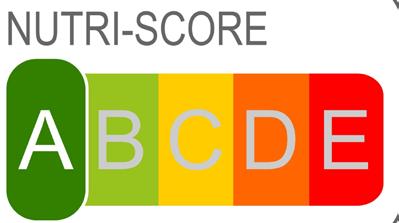

and fruit juice concentrates’. By this definition, for example, fruit juice would contain free sugars but might not be considered an ‘added sugar’ unless it was added to another food or beverage for the purpose of sweetening. The EFSA and FDA go into further detail about definitions of what is and isn’t an added sugar. Added sugars are considered empty calories (i.e. supplying energy but little else nutritionally) and therefore have been the focus of increasing attention in dietary guidelines in recent years.
As per European Regulation (EU) No 1169/2011 on the provision of food information to consumers “sugars” are defined as “all monosaccharides and disaccharides present in food, but excludes polyols”. To date, there is no similar clearcut definition of the term ‘added sugars’ in the same piece of Regulation. However, Regulation (EC) No 1924/2006 on nutrition and health claims made on foods does reference a “No Added Sugar” claim as “where the product does not contain any added mono- or disaccharides or any other food used for its sweetening properties.” Within the food industry, this then prompts discussion on how to define “any other
food used for its sweetening properties”.
In the United States, the FDA definition of added sugars includes sugars that are either added during the processing of foods, or are packaged as such, and include sugars (free, mono- and disaccharides), sugars from syrups and honey, and sugars from concentrated fruit or vegetable juices that are in excess of what would be expected from the same volume of 100 percent fruit or vegetable juice of the same type. The definition excludes fruit or vegetable juice concentrated from 100 percent fruit juice that is sold to consumers (e.g. frozen 100 percent fruit juice concentrate) as well as some sugars found in fruit and vegetable juices, jellies, jams, preserves, and fruit spreads.
It is the consumption of increased added sugars that is blamed for various health conditions such as increase of a person’s risk for heart disease, type two diabetes, and obesity. Additionally, there is a strong link between sugar intake and dental caries, or more commonly known as tooth decay or cavities. It has been estimated that, globally in 2010, US$ 298 billion was spent on direct costs associated with dental caries

MAR/APR 2024 | FOOD BUSINESS AFRICA FOODBUSINESSAFRICA.COM 54 FOOD INGREDIENTS AFRICA: SUGAR REDUCTION
(WHO).
It’s no surprise the focus from the authorities around sugar reduction. Reducing sugar consumption is a global focus as a health imperative, the World Health Organization recommends reducing free sugar intake for both children and adults to under 10 percent of total daily calories, equivalent to around 50 grams of free/ added sugar maximum for the average person per day. It is undeniable that overconsumption of sugars – added sugars – has been recognized as a worldwide problem by top public health agencies and consumers’ interest regarding reducing sugar consumption over time is maintained high.
In addition to the health benefits, that reducing sugar consumption can also be linked to sustainability improvements.? Sugar production can have an adverse impact on the environment in many ways, so reducing consumption can also promote sustainability.
ENVIRONMENTAL IMPACT OF SUGAR PRODUCTION
Sugar is a major industry with significant effects on the global environment resulting from growing, harvesting, refining, and distribution. On average, sugarcane accounts for nearly 80% of global sugar production, with some 110 countries currently producing sugar from either cane or beets. For the period October/ September 2019, the top 10 producing countries (India, Brazil, Thailand, China, the US, Mexico, Russia, Pakistan, France, and Australia) accounted for nearly 70% of global output, with more than 170 million tonnes consumed annually (International Sugar Organisation). The production of sugar is a highly water intensive operation, especially from sugar cane which has deep roots.
According to a recent sugar life cycle analysis and report conducted by Kerry, manufacturing 1kg of cane sugar uses
FOODBUSINESSAFRICA.COM MAR/APR 2024 | FOOD BUSINESS AFRICA 55
DO NOT PREFER UNFAMILIAR Honey 68% 24% 9% Sucrose / Sugar 46% 46% 8% Stevia 26% 34% 40% Coconut Sugar 26% 40% 35% Fructose 25% 52% 23% Maple Syrup 20% 47% 33% Palm Sugar 18% 37% 45% Date sugar 15% 30% 55% Molasses 12% 48% 40% Monk Fruit Extract/ Monk Fruit Juice 11% 28% 61% Agave Syrup 9% 33% 58% High Fructose Corn Syrup/ Corn Syrup 9% 47% 44% Saccharin 7% 50% 43% Xylitol 7% 30% 63% Sucralose 6% 37% 57% Aspartame 6% 38% 56% Lucuma Fruit Sugar 5% 18% 76% Sorghum Syrup 5% 21% 74% Erythritol 4% 19% 77% AceK - Acesulfame Potassium 3% 16% 81% Sorbitol 3% 28% 68% Neotame 3% 11% 86% Cyclamate 3% 19% 78% Advantame 3% 11% 86% Thaumatin 3% 14% 83% Maltitol 3% 21% 76% Mannitol 3% 21% 77% Jaggery (India) 2% 97% 1% Allulose 1% 17% 82%
PREFER
1,110 liters of water and leads to 0.42kg of CO2 emissions. For the case of beet sugar, it would require 640 liters of water and emit 0.85kg of CO2e (LCA).
The increase in global demand for sugar is resulting in highin high water consumption, air and water pollution, soil degradation, and change in natural habitat. It is estimated that 10% of soil is lost during harvest of beet sugar and 3-5% of soil in sugar cane harvest. This has resulted in the clearing of natural habitats such as rain forests, coastal wetlands, and savannah (WWF Action for Sustainable Sugar).
GLOBAL SUGAR REDUCTION INITIATIVES
Following the 2015 publication of the World Health Organization’s “Global Action Plan for the Prevention and Control of Noncommunicable Diseases 2013–2020” (GAP), 20 governmental bodies introduced taxation intended to reduce obesity and rising levels of diabetes, most often by targeting sugar
sweetened beverages (SSBs) as they have been determined to be a major source of added/ free sugars. By mid2018, 39 countries, states and cities had introduced nutritional taxation with more working toward voluntary sugar reduction approaches to encourage optimised nutrition.
Today, that number continues to grow, with more than 50 countries or jurisdictions having implemented taxes on sugary drinks as a way to discourage consumption. Among the latest places to turn to taxation as a means of encouraging healthy habits and fighting obesity-related illness are Spain and Poland, which introduced new sugar taxes in January of 2021.
In the same time, there are frontof-pack labelling initiatives that are implemented across the countries on a global level. Those initiatives seem to attract even more consumer’s attention. They are easier to be interpreted by the consumer and have alerted manufacturers since they have an

impact on the marketing of a products as they may restrict the advertisement of unhealthy foods.
Although sugar taxes have been a developed world reality, some of the earliest and most enthusiastic adopters are emerging markets. According to the PLoSONE journal article “Regulatory initiatives to reduce sugar-sweetened beverages (SSBs) in Latin America”, 14 Latin American countries have adopted public and private SSB initiatives since 2006. These include Mexico, which has one of the highest rates of diabetes globally, and Chile which coupled its tax with warning labels on foods high in sugar, fat or sodium.
Hungary was another early adopter, with the introduction of its broad “health tax” in 2011 which took aim at a range of products including those containing high fat and sodium. Today, around a dozen European countries have some form of sugar or health tax, including the UK, Ireland, France and Portugal.
In the North America, Canada introduced a front-of-pack nutrition symbol in 2023 that is required on foods high in sugar, sodium and/or saturated fat. United States does not currently have a national strategy for SSB taxation, although city authorities such as those in Berkeley, California, and Boulder, Colorado, have introduced local measures.
Among nations in the Middle East and Africa, sugar taxes are in play in countries including Saudi Arabia, the United Arab Emirates, Oman, Morocco, Nigeria and South Africa. In Asia Pacific, several long-standing sugar taxes are in effect and more recent legislation has been applied in Thailand, Philippines and Malaysia.
The structure of the taxes often follows a similar pattern, usually with a tiered system that awards a higher tax for products with higher sugars. In most cases the tax is passed on to the
MAR/APR 2024 | FOOD BUSINESS AFRICA FOODBUSINESSAFRICA.COM 56
FOOD INGREDIENTS AFRICA: SUGAR REDUCTION
final consumer, though some manufacturers have managed to mask price increases through the introduction of smaller pack sizes.
In addition to applying pressure to cost-conscious consumers, sugar taxes incentivise manufacturers to rethink recipes and create nutritionally optimised food and beverages.
For example, ahead of the introduction of the UK Soft Drink Industry Level (SDIL) sugar tax in April of 2018, manufacturers began reformulating products, shrinking the number of high- and mid-sugar soft drinks in their portfolio and increasing their low- and zero-sugar offerings. A study in BMC Medicine found that 6 of the top ten brands affected by the SDIL reformulated more than half of the products in their portfolios between 2015 and end of 2018. As these products hit the market, the total volume sales of high- and mid-sugar soft drinks was cut in half, while volume sales of low- and zero-sugar drinks rose by 40%. A separate report on the SDIL found that around its implementation, sugar content in soft drinks was reduced by an average of 44%.
A similar pattern can be seen across Latin America, where 15% of the carbonated soft drinks launched in 2023 had a reduced/low/no or free sugar claim, reflecting the current focus of both the industry and the consumer. In Brazil, the food and beverage industry agreed to voluntarily reduce sugar in over 1,100 products by 2022. Some participating manufacturers have also made voluntary commitments to the reduction of sodium, suggesting that overall nutrition optimisation is an increasingly popular goal. New labeling requirements, including in Mexico the Official Mexican Standard NOM051-SCFI/SSA1-2010 and Brazil the NORMATIVE INSTRUCTION-IN NO. 75, OF OCTOBER 8, 2020 – NORMATIVE INSTRUCTION-IN NO. 75, OF OCTOBER 8, 2020 – DOU – Imprensa Nacional, are also pressuring brands to create lower sugar products.
Even in markets and categories without formal legislation, there is still considerable pressure on manufacturers. In the United States, The National Salt and Sugar Reduction Initiative (NSSRI) is in the process of setting voluntary sugar reduction targets after having gotten widespread commercial support for its salt reduction infrastructure.
In the UK, some SSBs that fall outside of the SDIL purview, including unsweetened juices and sweetened milkbased beverages, have seen sugar reductions of around 10% following requests from Public Health England. (Other products have fared worse, leading many to call the voluntary initiative a failure.) Germany, voluntary targets have been set and, although no official taxes have been introduced, a small consumer survey suggests such efforts would have popular approval.
As low sugar, no added sugar, reduced and free sugar

claims become more prominent in new product launches, reformulation efforts are improving and consumer perceptions about reduced sugar beverages—which have historically faced taste and texture challenges—are changing.
CONSUMERS ATTITUDES TOWARD DIFFERENT SWEETENERS
Striking the balance between taste and nutrition is now more crucial than ever before. People are not demanding but expecting food and drink that provide them with accessible and nutritional solutions that also cater to their taste buds.
The need for sugar reduction is undeniable – 79%1 of global consumers believe that reduced sugar food and drinks are healthier than full sugar versions. Consumer’s sweetness expectations are no longer nebulous. They are voicing their sugar reduction desires and laying down rules. The degree of ‘desired’ sugar reduction is complex.
WHAT SWEETENER? IN WHAT PRODUCT? NATURAL OR ARTIFICIAL? AND HOW MUCH?
The type of sweetener used in food and drink is important to 77%1 of consumers globally. There’s lots of variables in the reduced sugar conversation, and consumers’ preferences vary considerably depending on the food or drink in question. The figure below shows consumer familiarity when it comes to different types of sweeteners:
This understanding is important to consider when we look at which sweeteners consumers would prefer. In the table below, honey was the most preferred sweetener among all consumers, followed by sucrose. Neotame, advantame were the least preferred (do not prefer).
Although taste remains a primary driver of sugar consumption, consumers increasingly acknowledge and turn to reduced sugar products as healthier alternatives.
Eighty-one percent of global consumers indicate diabetes and weight gain as significant drawbacks of sugar consumption, which are major deterrents. Hence, the need for
FOODBUSINESSAFRICA.COM MAR/APR 2024 | FOOD BUSINESS AFRICA 57

sugar reduction is undeniable, with 79% of global consumers believe that reduced sugar food and drinks are healthier than full sugar versions. (© Kerry Proprietary Consumer Research | Sensibly Sweet 2023 | n=12.784)
IN A WORLD THAT LOVES SUGAR’S FAMILIAR QUALITIES… WHERE TO START FOR SUCCESSFUL REDUCTION?
The responsibility and cost of helping consumers reduce their sugar intake is being pushed onto the food and beverage industry. Why so many sugar-reduced products fail? Though consumers cite taste as the biggest driver of their intention to repurchase, what are the other key factors that may stop greattasting products from getting off the shelf.
Every product category has different challenges when reformulating or developing from a low/no sugar added base. From Beverages to dairy, from bakery to sauces the approach is different. Reducing sugar or developing from a low/no sugar base in beverages needs to address simultaneously various challenges; low overall sweetness, high sourness, appearance of bitterness and off-notes while product mouthfeel is low.
Considering the bakery product category the challenges are different to beverages; sweetness and mouthfeel are low, however now parameters as texture, shelf life, colour and crumb porosity are also impacted.
There is not one solution fits all. The approach is usually a combination of various ingredients that work in synergy to address the various challenges. From the selection of the desired sweetening system, to texturants and preservation systems the choices are dependent to your formulation and target consumer. However, as taste is the primary driver when
it comes to consumer’s purchase behaviour, flavours have a significant role to play in the formulation of reduced and low/no sugar containing products. Flavours with modifying properties, mouthfeel and masking are used to optimize the sweetness profile of the product, deliver clean sweet taste and offer full-bodied mouthfeel with no off notes while optimizing the flavor profile when sugar is being reduced/ low or not present in the product formulation. They work in synergy with the rest of the ingredients present in food & beverages enabling great clean taste without off notes that consumers will crave for.
The sugar market has been greatly challenged the last years, with global deficit in the 2021/22 season replaced by a global surplus in 2022/23 season. This crop uncertainty has a high impact on the whole supply chain of sugar. Sugar is universally used across food and beverages industry. Hence there is a major need for cost stabilization and potentially savings in the various product offerings to address consumer need for affordable nutrition in the current volatile environment.
CONCLUSION
Although there has been significant progress in sugar reduction and sweetness optimisation technology, there is still some way to go. The sugar consumption is increasing in the years. Diabetes, obesity and teeth decay are still high in the health agenda’s agendas globally. Therefore, there is still much to play for as manufacturers stride to offer great tasting products that meet lower sugar targets and do not impact taste, texture and shelf life.

MAR/APR 2024 | FOOD BUSINESS AFRICA FOODBUSINESSAFRICA.COM 58
FOOD INGREDIENTS AFRICA: SUGAR REDUCTION
Food Safety Focus
TRENDS IN MANAGEMENT OF FOOD SAFETY, QUALITY & COMPLIANCE IN FOOD & AGRICULTURE
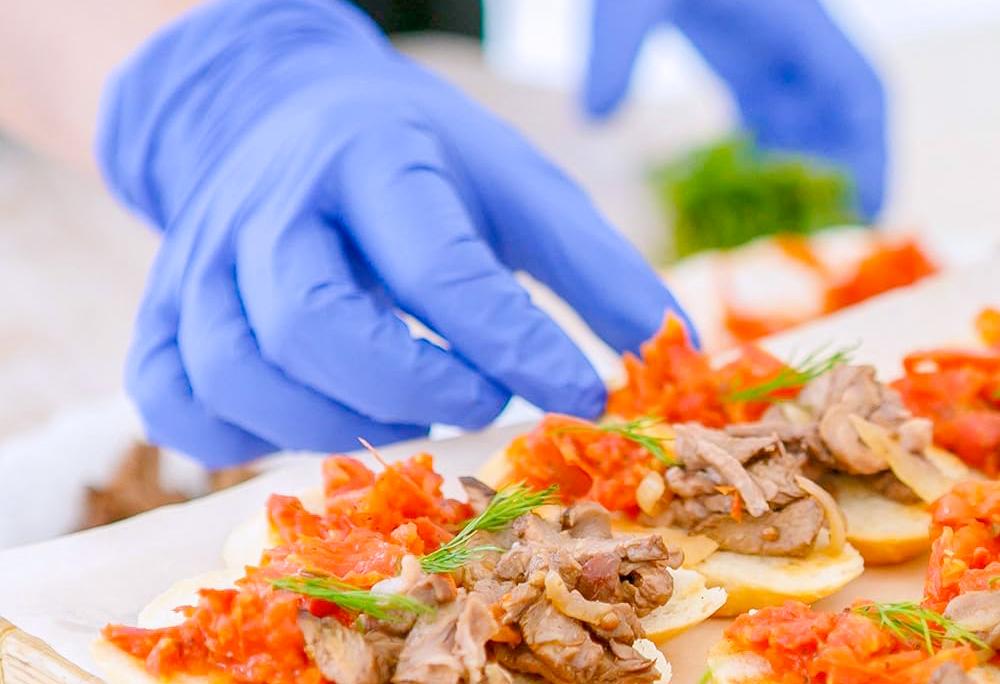
Prioritizing Workplace Safety: The Significance of Hazard Identification and Risk Assessment
By Joshua Mwendwa, Environment, Health, Safety & Security Manager, SimpliFine
In today's dynamic work environments, ensuring the safety and well-being of employees is paramount. Did you know that workplace accidents cost businesses over U.S$3 trillion annually? Workplace hazard identification and risk assessment are essential processes aimed at mitigating potential risks and creating a safer work
environment. To effectively mitigate these risks and foster a secure working environment, employers employ a multitude of strategies, with hazard identification and risk assessment serving as cornerstones. By systematically identifying potential hazards and evaluating associated risks, organizations can implement targeted measures to safeguard their workforce and
FOODBUSINESSAFRICA.COM MAR/APR 2024 | FOOD BUSINESS AFRICA 59
assets. This article explores the significance of these processes, their methodologies, and their impact on workplace safety.
UNDERSTANDING HAZARD IDENTIFICATION
Hazard identification involves recognizing potential sources of harm or danger in the workplace. Hazards can manifest in various forms, including physical, chemical, biological, ergonomic, and psychosocial. Understanding and identifying these hazards requires a systematic approach that involves observation, analysis, and communication among employees and management.


METHODS OF HAZARD IDENTIFICATION
Several methods can be employed for hazard identification, including workplace inspections, job hazard analysis (JHA), near-miss reports, safety audits, incident reports, accident investigations, and employee reports. Each method offers unique advantages and challenges, and organizations often utilize a combination of these approaches to ensure comprehensive hazard identification.
THE IMPORTANCE OF RISK ASSESSMENT
Once hazards are identified, the next step is to assess the associated risks. Risk assessment involves evaluating the likelihood and severity of potential harm resulting from exposure to hazards. This process enables organizations to prioritize risks based on their level of significance and allocate resources effectively to control or eliminate them.
WHAT IS RISK ASSESSMENT IN A WORKPLACE?
Risk assessment is a systematic process of identifying, analyzing, and evaluating potential risks or hazards that could impact an organization, project, activity, or process. It involves assessing the likelihood of these risks occurring and the potential consequences they may have. The primary objective of risk assessment is to enable informed decision-making and the implementation of appropriate risk management strategies to mitigate or eliminate identified risks.
The risk assessment process typically involves several key steps:
1. Identification of Risks: This step involves identifying and documenting potential risks or hazards that could affect the organization's objectives, operations, or stakeholders. Risks can arise from various sources, including internal processes, external factors, technological changes, or human factors.
2. Risk Analysis: Once risks are identified, they are analyzed to determine their characteristics, including their potential causes, consequences, and likelihood of occurrence. This analysis helps prioritize risks based on their severity and the level of impact they could have on the organization.
3. Risk Evaluation: In this step, the analyzed risks are evaluated to assess their significance and determine whether they are acceptable or require further action. Risks are typically assessed based on criteria such as their likelihood, severity, potential impact, and the organization's risk tolerance.
4. Risk Treatment: After evaluating risks, organizations develop and implement risk treatment strategies to manage, control, or mitigate them effectively. This may involve implementing preventive measures, transferring risks through insurance or contracts, avoiding certain activities or exposures, or accepting risks within established tolerances. These measures
MAR/APR 2024 | FOOD BUSINESS AFRICA FOODBUSINESSAFRICA.COM 60
TOPICAL FOCUS: WORKPLACE SAFETY

may include elimination, substitution, engineering controls, administrative controls, and personal protective equipment (PPE). Effective implementation of controls requires collaboration between employers, employees, and relevant stakeholders to ensure their practicality and sustainability.
5. Monitoring and Review: Risk assessment is an ongoing process that requires regular monitoring and review to ensure its effectiveness and relevance over time. Organizations continuously monitor changes in the risk landscape, assess the effectiveness of risk controls, and update risk assessments as needed to reflect new information or changing circumstances. Organizations must establish systems for tracking and reviewing hazard controls, conducting periodic risk assessments, and responding promptly to changes in the work environment or regulations. This fosters a safety culture where employees are actively engaged in identifying and addressing hazards.
TRAINING AND AWARENESS
Employee training plays a crucial role in hazard identification and risk assessment. Providing workers with the necessary knowledge and skills empowers them to recognize hazards, report concerns, and actively participate in safety initiatives. Organizations should prioritize the development and implementation of robust training initiatives. These programs should cover a wide range of topics, including hazard recognition, risk assessment techniques, emergency procedures, and the correct utilization of protective equipment.
By equipping employees with the requisite skills and knowledge, organizations can foster a culture of safety consciousness and proactive risk management, thereby reducing the likelihood of workplace accidents and injuries. Additionally, regular training updates and refresher courses should be provided to ensure that employees remain up to date with the latest safety protocols and procedures.
In addition to training, organizations should also
emphasize the importance of ongoing awareness campaigns and communication channels for employees to report potential hazards or safety concerns promptly. By encouraging open communication and active participation in safety initiatives, organizations can create an environment where employees feel empowered to contribute to the continuous improvement of workplace safety standards.
SEVERAL METHODS CAN BE EMPLOYED FOR HAZARD IDENTIFICATION, INCLUDING WORKPLACE INSPECTIONS, JOB HAZARD ANALYSIS, NEARMISS REPORTS, SAFETY AUDITS, INCIDENT REPORTS, ACCIDENT INVESTIGATIONS, AND EMPLOYEE REPORTS.
Furthermore, providing access to appropriate PPE is critical for ensuring employee safety in hazardous environments. Employers should conduct thorough assessments to determine the types of PPE necessary for specific job roles or tasks and ensure that employees are adequately trained in their proper usage and maintenance. Regular inspections of PPE should also be conducted to identify any defects or issues promptly and replace equipment as needed to maintain effectiveness.
REGULATORY COMPLIANCE AND STANDARDS
Workplace safety regulations, such as the OSH Act 2007 and the Environmental Management and Co-ordination Act (EMCA) CAP. 387, along with industry standards such as
FOODBUSINESSAFRICA.COM MAR/APR 2024 | FOOD BUSINESS AFRICA 61
those set by the National Fire Protection Association (NFPA), ISO 45001:2018, and ISO 14001:2015, provide essential guidelines and requirements for hazard identification and risk assessment. These regulations and standards serve as a framework for organizations to effectively manage workplace hazards, mitigate risks, and promote a culture of safety. Compliance with these regulations is not only mandatory but also crucial for organizations to avoid legal liabilities, fines, and penalties, which could significantly impact their financial stability and reputation.
Moreover, adherence to recognized standards demonstrates a firm commitment to best practices, continuous improvement, and the well-being of employees. It signals stakeholders, including employees, customers, investors, and regulatory agencies, that the organization prioritizes safety and operates with integrity. However, it goes beyond mere legal obligations; it reflects an organization's ethical responsibility to protect the health and safety of its workforce and the communities in which it operates. Organizations that prioritize safety demonstrate leadership in corporate social responsibility and sustainability, contributing to long-term social and environmental benefits. Additionally, proactive risk management practices not only minimize the likelihood of accidents and incidents but also improve operational efficiency, reduce insurance costs, and enhance overall business resilience.
MITIGATING RISKS AND LEARNING FROM TRAGEDY
Hazards in the workplace present multifaceted dangers that extend beyond immediate physical harm. They can precipitate accidents, injuries, and fatalities, inflicting profound human suffering and incurring significant financial losses. Furthermore, the repercussions reverberate throughout the organization, tarnishing its reputation and eroding stakeholder trust.
For instance, the recent catastrophe in Embakasi involving an LPG plant resulted in not only fatalities and serious injuries but also environmental damage and community disruption. The Embakasi incident underscores the critical imperative for stringent safety protocols, especially in industries handling hazardous materials like liquefied petroleum gas. The failure to uphold rigorous safety standards can have catastrophic consequences, affecting not only employees but also surrounding communities and ecosystems. Moreover, incidents like these spotlight regulatory lapses and enforcement challenges, prompting calls for stricter oversight and compliance measures.
In response to such tragedies, organizations must adopt a proactive stance towards safety, prioritizing preventative measures and continuous improvement. This entails fostering a culture of safety consciousness among employees,
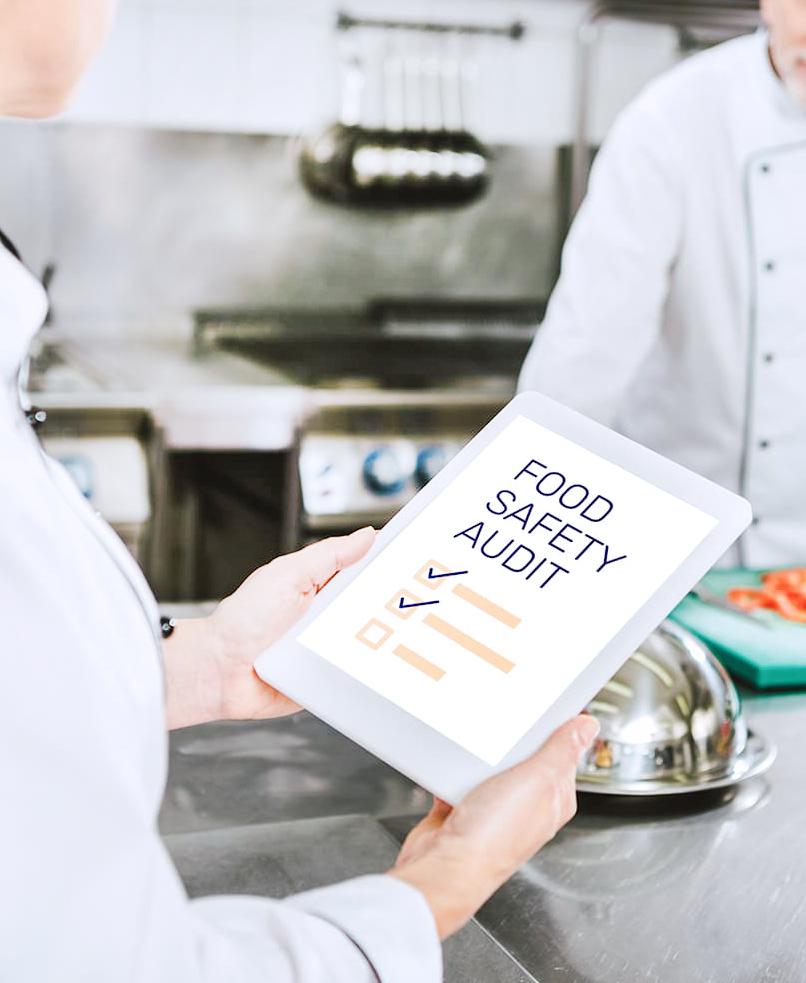
empowering them to identify and report hazards promptly.
Furthermore, collaboration with regulatory agencies, industry associations, and local communities is integral to bolstering safety initiatives and promoting accountability. By fostering transparent communication and sharing best practices, stakeholders can collectively strive towards enhancing workplace safety standards and mitigating future incidents.
Workplace hazard identification and risk assessment are indispensable components of effective safety management systems. By systematically identifying hazards, assessing risks, implementing controls, and fostering a culture of safety, organizations can create healthier and safer work environments for their employees. Prioritizing workplace safety not only protects human lives and assets but also contributes to improved productivity, morale, and overall business success.
Effective risk assessment enables organizations to proactively identify and manage potential threats, optimize resource allocation, improve decision-making, and enhance overall resilience and performance.
Organizations can integrate risk assessment into their strategic planning and operational processes to better anticipate and respond to uncertainties, thereby reducing the likelihood of adverse events and maximizing opportunities for success.
In essence, workplace safety is not merely a legal or ethical obligation but a fundamental prerequisite for organizational resilience and sustainability. By heeding the lessons gleaned from past tragedies and embracing a proactive approach to risk management, organizations can forge safer, more secure workplaces conducive to employee well-being and operational excellence.
MAR/APR 2024 | FOOD BUSINESS AFRICA FOODBUSINESSAFRICA.COM 62
TOPICAL FOCUS: WORKPLACE SAFETY
UPDATE ON INVESTMENTS OPPORTUNITIES & MARKET TRENDS IN AFRICA'S FOOD & BEVERAGE INDUSTRY
Report ndustry

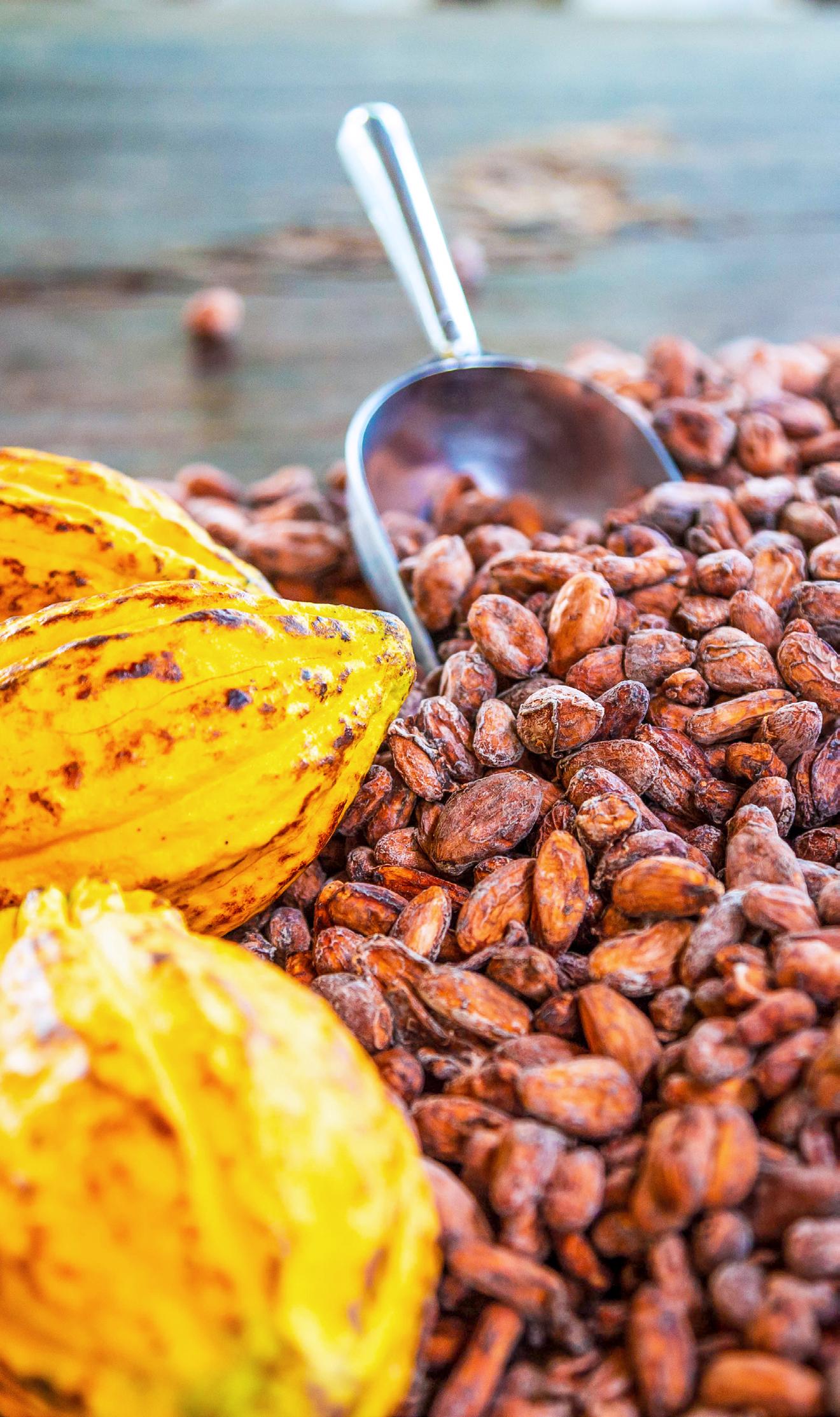
Cocoa shortage and rising prices challenge chocolatiers worldwide
By Nicholas Ng'ang'a
Enjoying your favorite bar of chocolate has long been a universal pleasure, but behind its velvety sweetness lies a bitter truth.The once-abundant raw material, essential for crafting decadent delights, is dwindling, sending shockwaves throughout the industry. From artisanal chocolatiers to multinational giants, no one is spared from the impact of this crisis. But how did we get here? What forces are at play in this bitter brew of scarcity and uncertainty? And most importantly, what can be done to salvage the future of chocolate? Read on to unravel all these.
THE COCOA DECLINE IN NUMBERS
As a result of these unprecedented industry challenges, cocoa futures reached an all-time intraday high of US$10,080 per metric ton towards the end of March. Despite a slight decline of 0.3% by the end of the month, the prices remain significantly high, having more than tripled in cost over the past year and showing a 129% increase in 2024.
Furthermore, insights from GlobalData, a leading data analytics and consulting company, shed light on the situation. The 2023-2024 season is witnessing an estimated 8% drop in cocoa supplies compared to the previous year, a decline primarily attributed to challenges faced by the industry's titans, Cote d'Ivoire and Ghana. In fact, the International Cocoa Organization (ICCO) has unveiled its forecast for the 2023/24 cocoa industry, adding weight to the aforementioned decline
FOODBUSINESSAFRICA.COM MAR/APR 2024 | FOOD BUSINESS AFRICA 63

in cocoa supply. According to the forecast, cocoa production has experienced a notable decline, with estimates indicating a decrease from 4.996 million metric tons to 4.449 million metric tons. This marks a significant drop of approximately 10.95% year-over-year (YoY).
Similarly, end-of-season stock levels are also expected to dwindle, plummeting from 1.769 million metric tons in the previous season to 1.395 million metric tons,a staggering 21.14% decrease. These numbers paint a sobering picture of the challenges ahead for the industry.
The scarcity of cocoa beans has plunged the market into instability, with prices soaring to unprecedented heights. Gerard Stapleton, an Agribusiness Analyst at GlobalData, tried to paint this picture, noting that cocoa bean prices have surged by 166% and 189% in the New York and London cocoa bean futures markets, respectively, over the past twelve months until the third week of March. Moreover, over the last eighteen months since October 2022, these prices have skyrocketed by 221% and 223%, respectively, a sharp contrast to the relatively stable prices observed over the preceding three-and-a-half years.
UNDERSTANDING THE DECLINE IN PRODUCTION
As the storm continues to brew for chocolate connoisseurs, a complex blend of climate change, diseases, and structural struggles has continued to shake the very foundation of their beloved treat. How, you ask? Let's dissect these factors shaping the cocoa industry's decline.
Climate Change and El Niño
Recent reports from the International Cocoa Organization
(ICCOpaint a grim picture: the wrath of the El Niño weather phenomenon, which struck the West African coast towards the end of last year, stands as the primary culprit behind dwindling cocoa production.. As per the organization's Quarterly Bulletin of Cocoa Statistics for the 2023-24 year, the drastic weather change is cumulatively being projected to
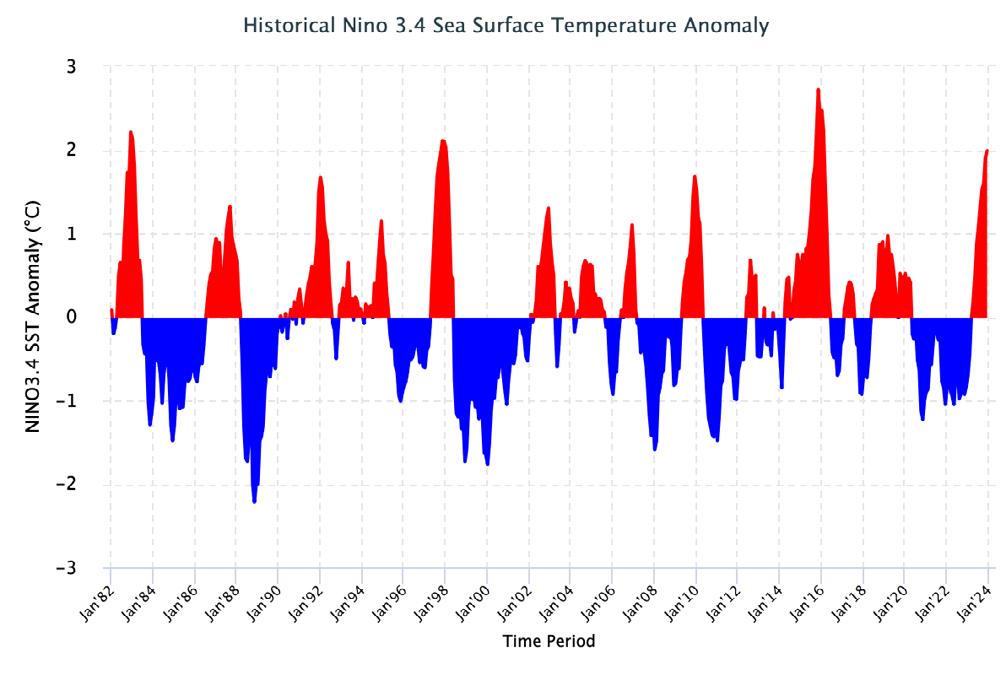
cause a global cocoa supply drop of nearly11% to 4.449 million tons compared to the previous season.
Sukanya Nag, a Food Technologist and Innovation Consultant at FutureBridge, elucidates the multifaceted impact of El Niño on cocoa production.
"Poor weather conditions, exacerbated by El Niño, including drought conditions and the intensified effects of the Harmattan winds, have created a perfect storm," she explains.
MAR/APR 2024 | FOOD BUSINESS AFRICA FOODBUSINESSAFRICA.COM 64
INDUSTRY REPORT: COCOA
"Combined with crop diseases ravaging cocoa yields, we're witnessing a projected decline of almost 10%."
El Niño's influence extends far beyond mere meteorological phenomena. In key cocoa-producing countries like Ghana and Ivory Coast, which collectively supply over half of the world's cocoa, reduced rainfall during these events spells disaster. The resultant drought conditions, coupled with persistently low dew points, impede cocoa pod development and render cocoa plants more susceptible to diseases and pests, further diminishing yields.
Diseases
The specter of diseases looms large over cocoa production, exacerbating the challenges wrought by environmental factors.. Among these diseases, Cocoa Swollen Shoot Disease (CSSD) stands out as a formidable threat. Not only is it caused by plant viruses, but it is also transmitted by mealybugs from infected to healthy cocoa plants at various growth stages.
CSSD's insidious nature is particularly concerning, as it can remain dormant within cocoa plants for up to two years before exhibiting visible symptoms such as red leaf veins or swollen stems and roots. Tragically, affected plants typically perish within three to four years of symptom onset.Compounding the crisis, multiple strains of the virus confound efforts to combat CSSD, leaving drastic measures like the wholesale destruction of infected trees as the sole recourse. The relentless spread of the disease has already encroached upon approximately 17% of Ghana's cocoa-growing areas, encompassing more than 300,000 hectares, alongside over 100,000 hectares in Côte
d'Ivoire. This not only affects the livelihoods of cocoa farmers but also casts a shadow over the entire cocoa industry, with cocoa yields being projected to drop by an astounding 70%.
In addition to CSSD, the insidious black pod disease wreaks havoc on cacao trees, spreading via rain splash during the rainy season. Manifesting as circular brown spots on pods, this virulent scourge swiftly consumes its host, darkening pods to a blackish hue and emitting a pungent fishy odor as the infection advances.
Structural struggles
Beyond the ravages of climate and diseases, structural deficiencies plague the cocoa landscape in West Africa, compounding the industry's woes. Chronic underinvestment in cocoa farms remains a key concern, as smallholder farmers, who form the backbone of cocoa cultivation, struggle to earn a sustainable income.
Tracey Allen, an Agricultural Commodities Strategist at J.P. Morgan, highlights the imbalance in the cocoa value chain, where growers receive disproportionately low shares of the profits. This disparity stifles reinvestment in land and contributes to dwindling yields over time.
Worse still, investor speculation has also plagued the industry, further exacerbating the situation. Investor-driven price surges, which have been evident in the past month, have demotivated farmers and slowed down production. Notably, non-commercial investors currently hold a historic high of over 60% of total open interest across cocoa futures and options in the New York market. This surge in speculative activity has

FOODBUSINESSAFRICA.COM MAR/APR 2024 | FOOD BUSINESS AFRICA 65
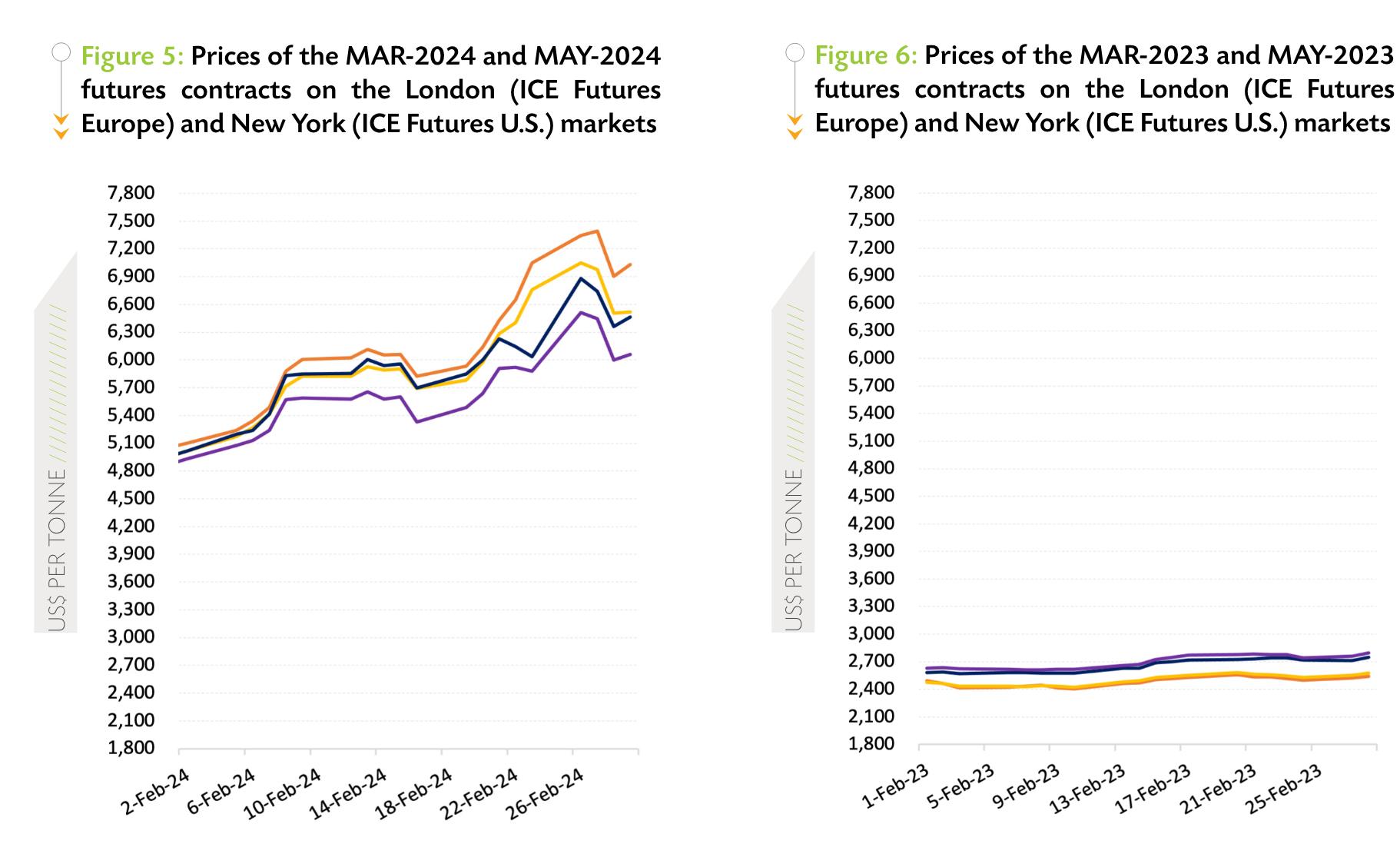
left consumers scrambling to hedge forward exposure amidst thin liquidity in the market.
WHAT ARE CHOCOLATE BRANDS DOING ABOUT THIS?
Amidst the tempest of rising cocoa prices and dwindling supplies, chocolate brands are innovating and adapting to weather the storm. Despite a perceived decrease in consumption, the chocolate market remains robust, with brands exploring alternative strategies to manage the rising cost of cocoa. Major players in the industry are trying to navigate through these turbulent waters, some even resulting in higher price tags for products with increased cocoa content, while others have introduced ‘shrinkflation’ to their items.
Mondelez
Mondelez, a leading chocolate and biscuits maker, indicated further price increases during its 2023 results announcement in January. According to Mondelez's Chairman and CEO, Dirk Van de Put, consumer demand for favored brands has helped sustain volumes despite continual price hikes over the past few years. He highlighted a notable price surge of 12% to 15% for chocolate in Europe last year, with minimal impact on volumes.
While pricing agreements for the upcoming year have been finalized in North America and Europe, discussions with certain European retailers hint at potential resistance to further adjustments. Van de Put acknowledges the delicate

balance between meeting financial imperatives and addressing consumer concerns, signaling ongoing negotiations with retailers to navigate this terrain.
Nestlé
Nestlé, another heavyweight in the industry, is grappling with the challenges posed by escalating cocoa costs. As Geijer, a representative of Nestlé, acknowledges, the company is actively devising strategies to manage expenses amidst the production
MAR/APR 2024 | FOOD BUSINESS AFRICA FOODBUSINESSAFRICA.COM 66
INDUSTRY REPORT: COCOA
of cocoa-related products.
Ulf Mark Schneider, Nestlé's CEO, emphasizes the importance of preserving flavor profiles to maintain consumer engagement amid economic upheavals. With a keen eye on strategic management, Schneider cautions against altering recipes or flavor profiles in response to fluctuations in input costs, recognizing cocoa prices as just one facet of broader commodity price variations.
Hershey
Michele G. Buck, Hershey's CEO, emphasizes the company's resilience in the face of turbulent market conditions over the years. Despite the current high cocoa and sugar prices posing challenges, he affirms that Hershey has a history of successfully navigating periods of uncertainty. The company aims to grow its categories and expand market share profitably by implementing strategic business strategies as one way of cushioning the blow of price changes. Additionally, in a bid to enhance agility and efficiency, Hershey unveiled plans to increase automation and adopt a more efficient operating model. These efforts are projected to yield $300 million in pretax savings by 2026, with an initial $100 million expected in 2024.
WHAT DOES THE FUTURE OF COCOA LOOK LIKE
Even with the rise in cocoa prices, the plight of farmers remains a pressing concern, seeing they are yet to reap the benefits of the ongoing crisis. It has been reported that as climatic conditions worsen in West Africa, some farmers in Ivory Coast are progressively shifting away from cocoa cultivation towards more profitable ventures such as rubber production.
However, some governments have tried to lessen the impact of the surge. For instance, the Ghana Cocoa Board (COCOBOD), under the leadership of CEO Joseph Boahen Aidoo, recently announced a substantial increase in cocoa producers' prices for the ongoing 2023-2024 crop year. This adjustment sees prices rising to 33,120 Ghana cedis (US$ 2,499) per ton, a notable increase from the previous rate of 20,926 cedis (US$ 1,578) per ton set last September.
Moreover, sustainability has emerged as a paramount concern for industry players, driven by growing awareness of environmental issues and regulatory mandates. The EU Regulation on Deforestation mandates that all cocoa-related manufacturers must ensure that they source their products only from recently deforested areas. However, Cote d'Ivoire and Ghana, two major cocoa-producing countries, have experienced significant deforestation, losing 80% and 94% of their forests, respectively, over the last 60 years. As a result, most industry players have started investing in sustainability practices across areas where they source their cocoa.
GROW YOUR BUSINESS FASTER, MORE SUSTAINABLY
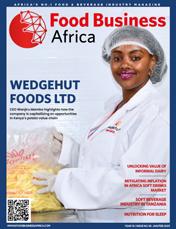
ADVERTISE IN AFRICA’S NO.1 FOOD & BEVERAGE INDUSTRY MAGAZINE


• Reach the food, beverage and milling industry in sub-Saharan Africa (East, West, South and Central Africa) and beyond using one publication and website
• Use the first magazine of its kind in the region available in a digital format, providing our advertisers with a worldwide audience
• Advertizing with us opens the door to key decision makers in the food industry
• Gain access to the best read and visited food industry website in sub-Saharan Africa.

FOODBUSINESSAFRICA.COM
BUSINESS AFRICA MAGAZINE
WHY ADVERTISE IN FOOD
AVAILABLE IN PRINT & FOR FREE ONLINE AT: WWW.FOODBUSINESSAFRICA.COM
DSM-Firmenich unveils pilot plant in New Jersey to boost food innovation
USA – DSM-Firmenich, a multinational nutrition company has consolidated its operations in the U.S., with the launch of a pilot plant in New Jersey, aimed at strengthening the company’s mission to accelerate global dietary transformation.
Nestled within DSM-Firmenich’s Taste, Texture & Health Business Unit, the facility will empower food and beverage brands to craft delightful consumption experiences that prioritize both health and sustainability.
The facility contains state-of-the-art infrastructure poised to guide customers seamlessly from benchtop development to small-scale production, thereby accelerating the journey towards final large-scale manufacturing.
According to the nutrition company, the facility will focus on beverage production catering to diverse applications in the sector.
The pilot plant boasts strategic proximity to the company’s development laboratories and consumer sensory lab to facilitate real-time integration of consumer feedback into the iterative refinement process.
“This new facility will help us deliver on our ambition to bring progress to life by enabling our customers to make even more innovative foods and beverages that are delicious, nutritious, and sustainable,” Maurizio Clementi, Executive Vice President of Taste for Taste, Texture & Health, said.

Bühler
opens protein application center to advance plant-based food innovation

SWITZERLAND – Bühler, a Swiss multinational plant equipment manufacturer has expanded its food innovation capabilities with a new Protein Application Center in in Uzwil, Switzerland.
The plant opened in collaboration with Endeco consolidates the entire protein value chain under one roof, providing solutions for processing plant proteins from pulses or grains to finished consumer products, including dairy or meat replacements.
The Protein Application Center, spanning 300 square meters aims to enhance efficiency, sustainability, and food safety, allowing customers to bring their raw materials like peas or beans and collaborate on developing innovative products such as meat substitutes, beverages, and more.
The Protein Application Center will additionally offer both dry and wet processing options for plant proteins, providing solutions covering the entire protein value chain, from field to consumer products.
The center integrates two different
processes of protein isolation –isoelectric precipitation with the use of decanter centrifuges, in collaboration with Flottweg, and membrane fractionation with the expertise of MMS.
“The facility aims to facilitate collaboration with customers and assist them in succeeding in their markets,” said Tom Heintel, Head of the Protein Application Center.
THE CENTER INTEGRATES TWO DIFFERENT PROCESSES OF PROTEIN ISOLATION – ISOELECTRIC PRECIPITATION AND MEMBRANE FRACTIONATION.
MAR/APR 2024 | FOOD BUSINESS AFRICA FOODBUSINESSAFRICA.COM 68 INVESTMENT
SUPPLIER NEWS & INNOVATIONS
Vegan Food Group acquires German tofu maker Tofutown
UK – Vegan Food Group has announced plans to acquire Tofutown, a leading German tofu manufacturer amid plans to scale up group revenues beyond €100 million (US$108.17 million).
Tofutown, with over 40 years of experience, specializes in 100% natural organic tofu, spreads, and meat alternatives, primarily serving the EU market, notably in Germany.
The move marks Vegan Food Group’s first acquisition since its rebranding from VFC Foods, originally founded in 2020 by Veganuary cofounder Matthew Glover and chef Adam Lyons.
Tofutown’s contribution to Vegan Food Group includes two manufacturing sites covering a total of 55,000 square meters, with the Lüneburg site emerging as one of Europe’s largest

plant-based manufacturing facilities.
The German company supplies major retailers such as Aldi, Lidl, DM, and Edeka under the Tofutown brand.
“With Germany and the UK being key markets for plant-based foods, the combined entity is well-positioned to thrive in the rapidly growing plant-
based sector over the next decade,” said Markus Kerres, CEO of Tofutown.
The acquisition, subject to final approvals, is expected to be completed soon. Financial due diligence was conducted by KPMG, and legal advice was provided by Addleshaw Goddard.
Ingredion launches ‘world’s first’ non-GMO functional native corn starch

USA – Ingredion an American food and beverage ingredient provider has launched ‘first non-GMO functional native corn starch’, Novation Indulge 2940, in the global food and beverage market.
Ingredion says its native corn starch is designed to provide unique textures for gelling and co-texturizing in dairy
and alternative dairy products and desserts.
The starch is minimally processed to align with consumer demands for clean labels and offers an indulgent and appealing texture for popular products like yogurts, puddings, and desserts.
“With Novation Indulge 2940 functional native starch, food brands
can formulate popular products – such as yogurts, puddings and desserts that satisfy both the increasing demand for clean labels and the growing better for you foods desire from consumers, and all with an indulgent and appealing texture,” said Jinaat Mansuri, Technical Service Manager for the U.S. and Canada at Ingredion.
Novation Indulge 2940 can be listed on product labels as “corn stach” thus helping food brands meet consumer demand for products produced with ingredients that they can recognize.
Novation Indulge 2940 will first launch in North America before rollout to other markets.
FOODBUSINESSAFRICA.COM MAR/APR 2024 | FOOD BUSINESS AFRICA 69
ACQUISITION
ABB unveils process automation solution for cold block stage of beer production
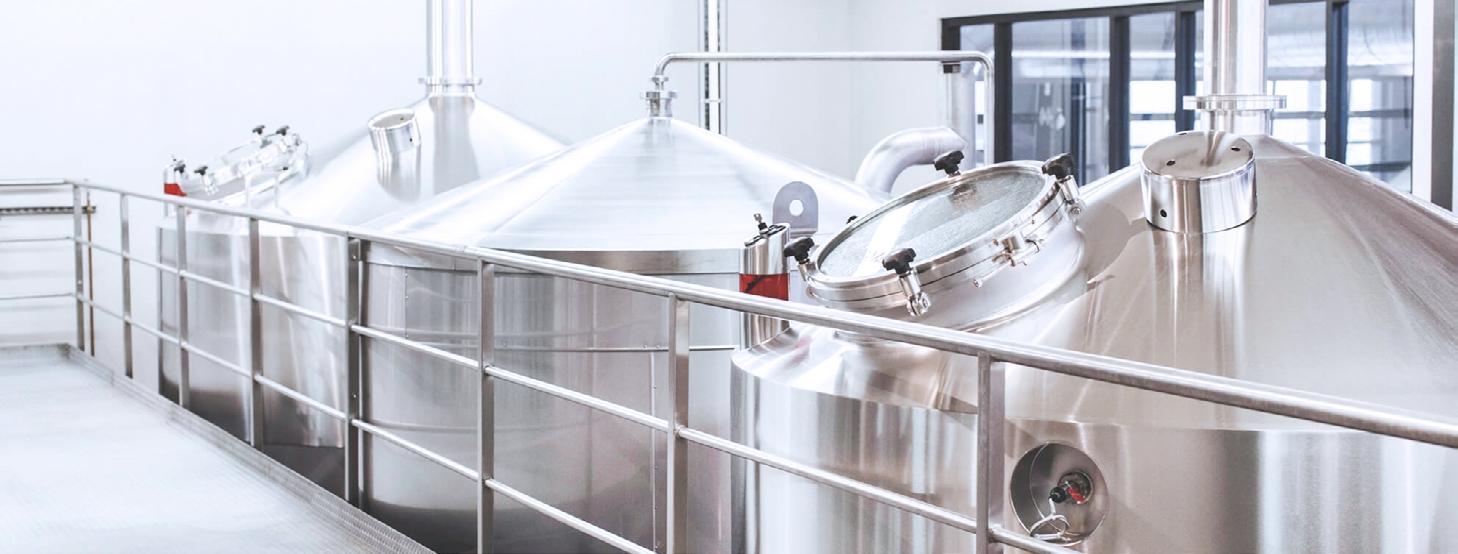
SWITZERLAND – ABB, a leading technology company specializing in electrification and automation, has introduced a technology solution tailored for the cold block stage of the brewing process.
ABB’s solution utilizes modular automation, digital capabilities, simulation technology, and advanced process control (APC) to address
current challenges and anticipate future developments in the brewing landscape.
The technology is designed to benefit customers seeking improvements in process efficiency, reduction of energy and water consumption, and increased productivity, says ABB.
The foundation of this innovative solution lies in the ABB Ability System 800xA distributed control system which
offers a comprehensive technological package comprising ready-made and tested master recipes, processes, templates, and objects.
According to ABB, brewmasters can easily customize these elements based on a variety of configuration and recipe parameters, granting them a versatile production tool without limits on schedules or creativity.
Gernut van Laak, global food and beverage solution manager at ABB, said: “Given the growing scale of the beer industry in Europe and worldwide, driving efficiencies across the beermaking operation is a greater priority than ever. Therefore, finding innovative ways to do this while also operating more sustainably and reducing downtime is vital.”
GEA invests US$20M in technology center for alternative proteins in USA
USA – GEA, one of the world’s largest systems suppliers for the food and beverage sectors, has invested US$ 20 million in a technology center for alternative proteins in Janesville, Wisconsin, USA.
The facility is poised to become a key player in the development and scaling of new food technologies catering to the growing demand for alternatives to traditional meat, dairy, seafood, and egg products.
According to GEA, the facility will leverage cutting-edge technology and a team of biotechnology experts to drive the production of complementary proteins through innovative technology.
The facility will focus on piloting
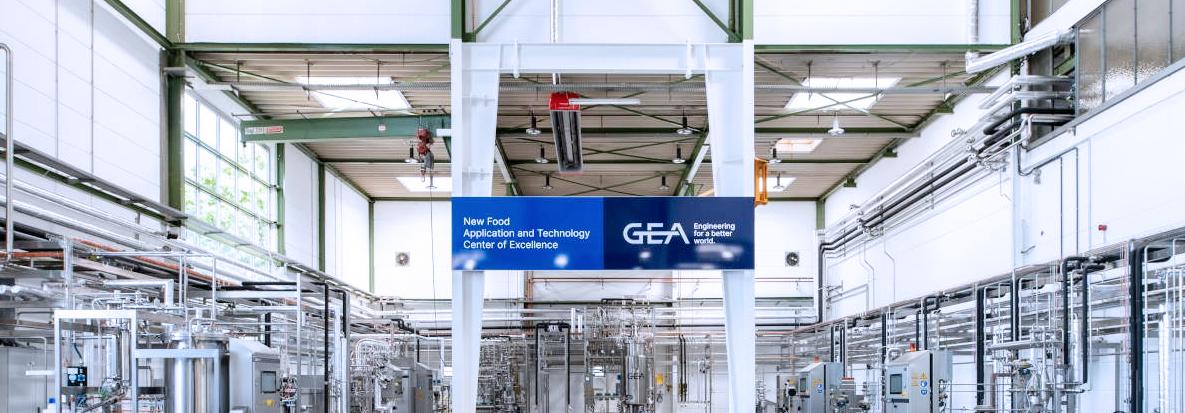
microbial, cell-based, and plant-based foods and is anticipated to open in 2025.
“GEA’s new food center bridges a gap in the innovation landscape, driving forward the development of complementary proteins through technology,” said Dr. Reimar Gutte, Senior Vice President of Liquid and Fermentation Technologies at GEA.
The new food sector has been identified as a significant growth driver in GEA’s Mission 26 strategy, with a dedicated business line focusing on innovative technologies for microbial proteins, plant- or fungi-based foods, and hybrid products combining plantbased elements with biotechnologically produced proteins.
MAR/APR 2024 | FOOD BUSINESS AFRICA FOODBUSINESSAFRICA.COM 70
NEW TECHNOLOGY SUPPLIER NEWS & INNOVATIONS
Kerry expands presence with manufacturing facility in
Uganda

UGANDA – Kerry, a world leader in taste and nutrition solutions for food and beverage industry has inaugurated a manufacturing facility in Uganda, expanding its presence in the East African market.
The 1000m2 facility, located in the country’s capital Kampala, will expand Kerry’s capacity in the East Africa region.
The company says that the investment in Uganda is a prime
KERRY HAS INAUGURATED A MANUFACTURING FACILITY IN UGANDA, EXPANDING ITS PRESENCE IN THE EAST AFRICAN MARKET.
example of it’s “commitment to Africa and its confidence in the future of the food and beverage industry on the continent.”
Kerry’s expansion into Uganda is aligned with its strategic vision of promoting global sustainable nutrition as the company seeks to support local food and beverage manufacturers in one of the regions with the most promising food industry prospects and economic hubs in Africa.
“Uganda’s economy is fast-growing, driven by a thriving food processing industry. Producing in Uganda strengthens our localisation plans. This includes focusing on local partnerships, developing local sourcing in East Africa — from food ingredients to local talent and supply chain development — to enable growth in the communities in which we operate,” said Jad Neaime, General Manager of Kerry Greater Africa.
The company aims to impact over 2 billion people with sustainable nutrition by 2030, with the Uganda facility positioned as a crucial milestone in realizing this ambitious goal.
Duravant expands with acquisition of Ferdinand Henneken
USA – Duravant, a global automation equipment company has expanded its portfolio by acquiring Ferdinand Henneken GmbH, a German company specializing in protein processing solutions.
Duravant, known for providing automated solutions to the food processing, packaging, and material handling sectors, aims to enhance its presence in the protein sector through this strategic move.
On the other hand, Henneken is renowned for designing and building equipment such as vacuum tumblers, tenderizers, injectors, and brine mixers for meat, poultry, and seafood processors.
Duravant, with its global infrastructure, intends to leverage the acquisition to expand into new geographies and better serve existing customers.

“Henneken operates an in-house technical centre with an innovation hub where engineers develop tailored solutions. The acquisition aligns with Duravant’s commitment to meeting the evolving needs of food and beverage manufacturers, especially in the protein processing sector,” said Mike Kachmer, CEO and Chairman Duravant.
The acquisition is poised to position Duravant for further growth in the processing industry reflecting its commitment to providing end-toend process solutions supported by engineering expertise and aftermarket networks.
FOODBUSINESSAFRICA.COM MAR/APR 2024 | FOOD BUSINESS AFRICA 71
NEW TECHNOLOGY
Kemin acquires GLF Ingredienti Alimentari
USA – Kemin Industries, a global ingredient manufacturer, has completed the acquisition of Italy-based functional ingredient company, GLF Ingredienti Alimentari.
The acquisition is expected to enhance Kemin’s functional ingredient technology and application know-how, particularly in the meat industry across Europe, the Middle East, and Africa (EMEA).
“The acquisition brings functional blends and yield enhancement technology into Kemin Food Technologies’ portfolio, strengthening its product offerings and technical service capabilities,” said David Raveyre, Group President of Kemin Industries.

Gianluca Feraciti, founder of GLF Ingredienti Alimentari, revealed that as part of the integration, Kemin would also absorb GLF’s operations into its existing EMEA business structure.
Kemin anticipates leveraging GLF’s application expertise and technical
support to strengthen its offerings.
The combination of GLF’s meat solutions portfolio and Kemin’s existing technologies is expected to offer synergies, providing enhanced expertise for serving customers in the food industry.
Emerson unveils controller for water and wastewater management
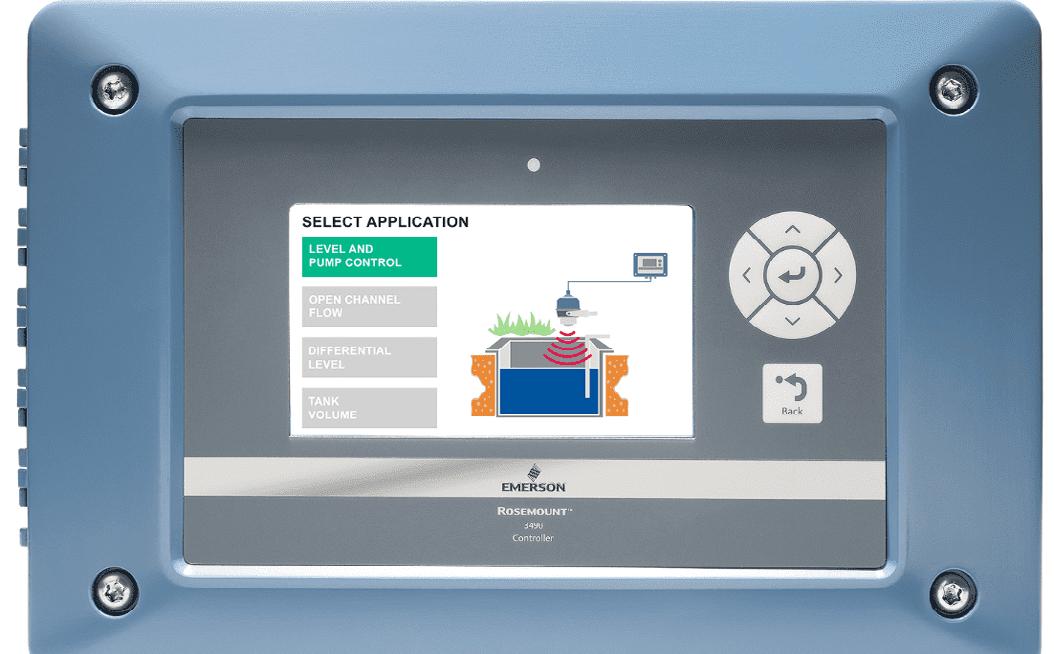
SWEDEN – Emerson, a global leader in technology and software, has introduced the Rosemount 3490 Controller, designed to simplify level and flow measurement in water and wastewater applications.
The Rosemount 3490 offers a user-friendly experience through its first-of-its-kind configuration wizard guides, intuitive graphical interface,
and a clear LCD display simplifying setup, operation, and device status monitoring.
The controller is coupled with the Rosemount 1208C level and flow controller to provide precise measurements with straightforward configuration. This integrated solution streamlines various tasks in water and wastewater treatment, including pump
control, filtration, sludge handling, and open channel flow measurement.
Beyond user-friendliness, the Rosemount 3490 promotes sustainability through accurate measurement. This prevents water waste and overfills, contributing to conservation efforts. Additionally, the controller simplifies regulatory compliance by facilitating report generation and data management.
“The Rosemount 3490 Controller and Rosemount 1208C Level and Flow Transmitter together form a costeffective, dedicated solution for water and wastewater applications that not only helps organisations to reduce downtime and costs but also safeguards water safety and quality,” said Vladislav Snitko, radar level solutions engineer at Emerson’s measurement solutions business.
MAR/APR 2024 | FOOD BUSINESS AFRICA FOODBUSINESSAFRICA.COM 72 SUPPLIER NEWS & INNOVATIONS
NEW TECHNOLOGY

T H I C
OBIPEKTIN from APECX is a natural fibre, which is mainly obtained from apples and citrus fruits. It offers natural gelling, thickening and stabilising properties. OBIPEKTIN can complement or even replace other texturising ingredients in many applications – highly functional and very versatile.
Advantages of OBIPEKTIN from APECX
Flexible pectin with versatile use
Perfect texture and mouthfeel for food and beverage products
Plant-based, suitable for vegetarians and vegans
Halal, kosher, non GMO, FSSC 22000 certified
V E R S A T I L E P E C T I N F O R N A T U R A L G E L L I N G ,
K E
I N G A N D S T A B I L I S A T I O N
N
www.apecx.ag
June 12-14, 2024
September 3-5, 2024



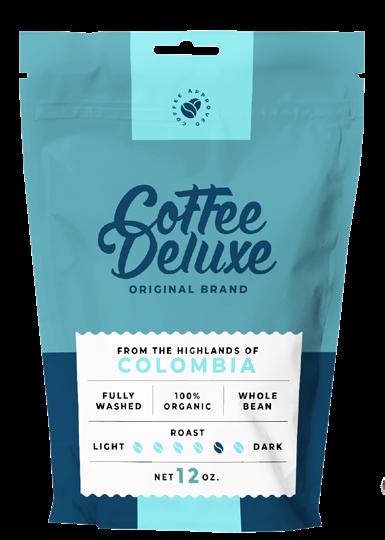
September 17-19, 2024






EXPO
UGANDA PACKAGING EXPO EASTERN AFRICA PACKAGING EXPO
PACK AGI NG
AFRICA
(KENYA)
AFRICA PACKAGING EXPO (NIGERIA) TANZANIA PACKAGING EXPO ZAMBIA PACKAGING EXPO (ZAMBIA) WELCOME TO AFRICA’S BIGGEST PACKAGING INDUSTRY TRADE SHOWS www.africapackagingexpo.com info@fwafrica.net +254 725 343932 SIGN UP TO ATTEND , SPONSOR & EHIBIT SCAN ME Food & Beverage & Milling • Agri, Horticulture & Fresh Produce • Pharmaceuticals • Beauty & Personal Care & Homecare • Industrial, Retail & HORECA • Oil & Chemicals O ctober 2025 April
WEST
2025























































































































































































































 SABS' Head office in Groenkloof, Pretoria
SABS' Head office in Groenkloof, Pretoria



































































